








































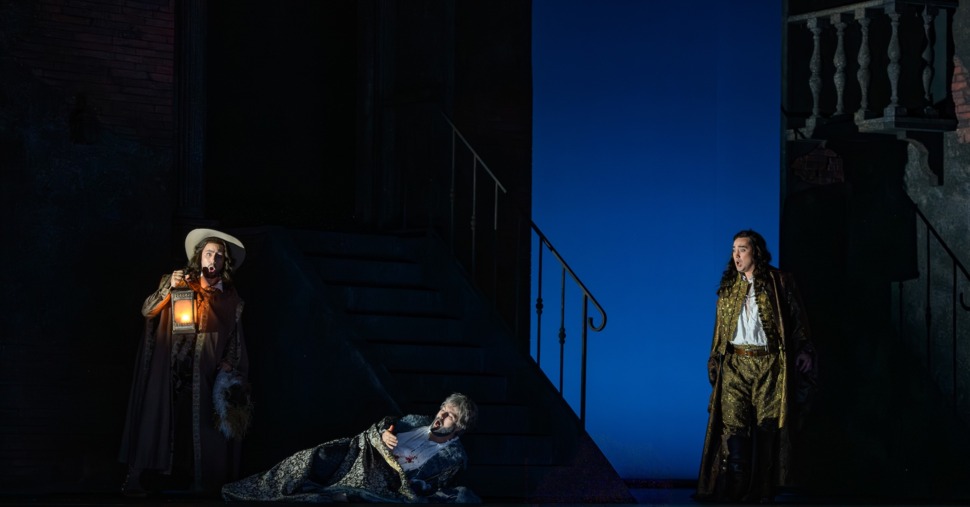
“...Enfin, Mikhaïl Timoshenko en Don Giovanni est une évidence, en composant un personnage assez agaçant, particulièrement sûr de lui et hautain, mais pourtant capable de la plus grande sensualité. Son sourire en coin, son port de tête, le rangent immédiatement du côté des aristocrates, de même qu’une voix noble et conduite. « Deh vieni alla finestra » est parfait de nuances et d’inventivité.”
https://www.forumopera.com/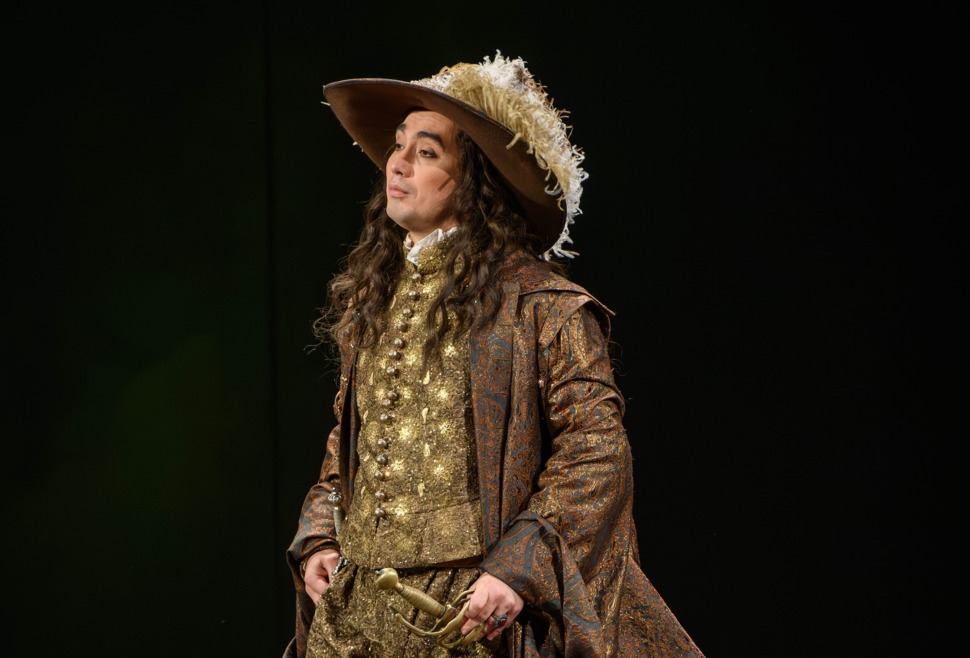
“Côté chant, la distribution brille à chaque instant. Mikhael Timoshenko incarne un Don Giovanni à la voix claire, pouvant s’ombrer et se durcir. Le moelleux du timbre permet à la séduction d’opérer. Il assume le tragique de son destin avec grandeur, porté par une voix riche et vibrante.”
https://classicagenda.fr/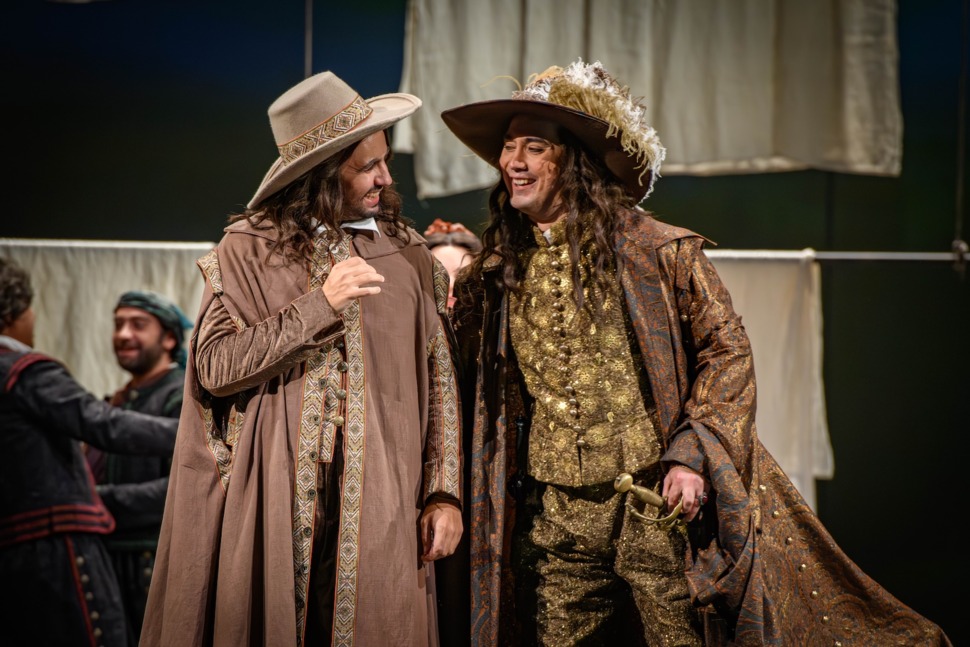
“Le Théâtre du Capitole s'offre deux distributions aussi intéressantes l'une que l'autre. Pour cette représentation, Mikhail Timoshenko campe un Don Giovanni attrayant, autant par un legato voluptueux pour amadouer ses multiples conquêtes que par des accents incisifs soulignant la détermination du personnage. Le costume signé Pierre-Jean Larroque soutient à merveille cette interprétation, la séduction de l'homme brillant de mille dorures.”
https://www.resmusica.com/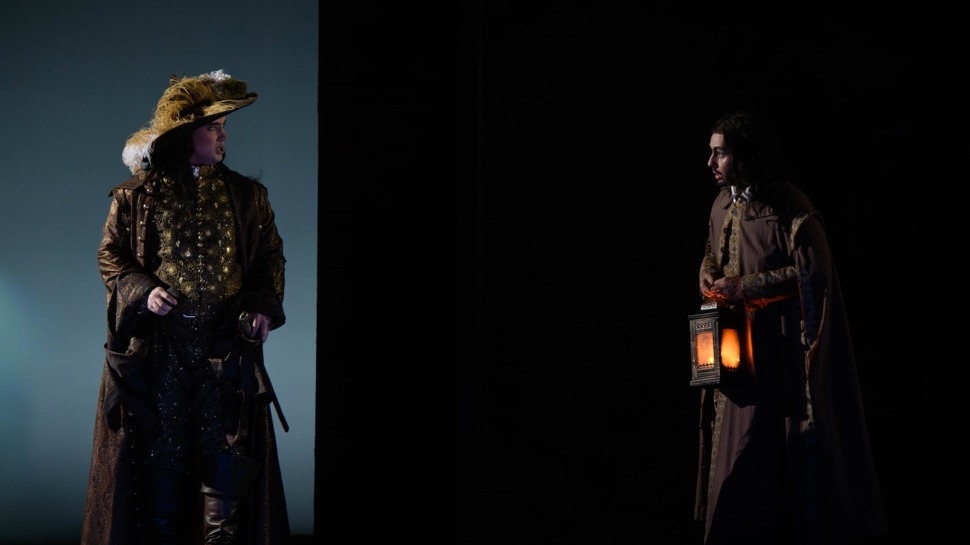
“Du côte des jeunes, Mikhail Timoshenko, étrennant le rôle-titre, semble un séducteur né, alliant accents carnassiers, tierce supérieure insolente et douceur d’un legato intarissable ; l’incarnation devra encore s’affiner, quoique le contexte, ce soir, ne l’aide guère (nous y reviendrons).”
https://www.diapasonmag.fr/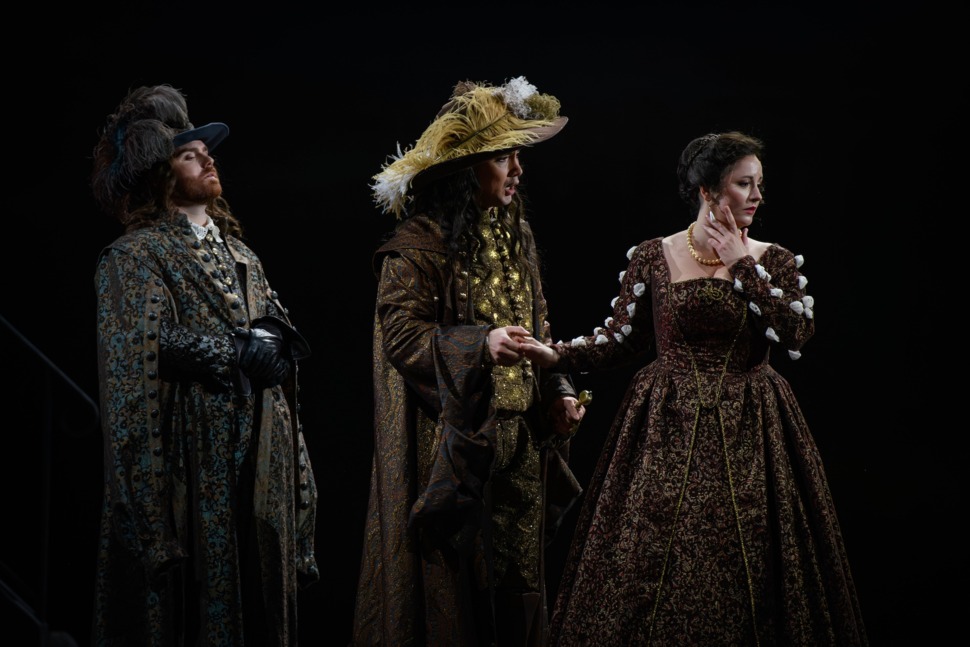
“Dans le rôle-titre Mikhail Timoshenko, né en 1993, confirme les qualités repérées ici même dans Boris Godounov (Andreï Chtchelkalov). Le baryton-basse russe est un Don Giovanni fougueux, alerte, dont « l’air du Champagne » semble la devise. Une Sérénade énamourée et sereine contraste avec la violence hautaine de la scène du Diner final. Art des alliances de distribution où Christophe Ghristi, directeur artistique du Capitole, excelle, Don Juan et Leporello sont ici pleinement assortis, tels deux mauvais génies associés.”
https://operagazet.com/“Le Don Giovanni de Mikhail Timoshenko est noble avant toute chose, jouisseur certes, mais avec élégance. Sa démarche, son port altier, ses gestes, tout traduit un homme de haute condition intellectuelle et matérielle. La voix, homogène sur toute la tessiture, est projetée avec autorité dans tous les registres, mais sait aussi se plier à la musicalité requise pour la fameuse Sérénade et devenir explosive au moment de l’Air du champagne. Si ce baryton nous gratifie d’un superbe la naturel, une note non écrite mais qui n’a rien d’anecdotique, pour tirer sa révérence au final, cela ne nous fait pas oublier la chaleur du timbre et la virtuosité des récitatifs. Un grand Don Giovanni est né.”
https://classictoulouse.fr/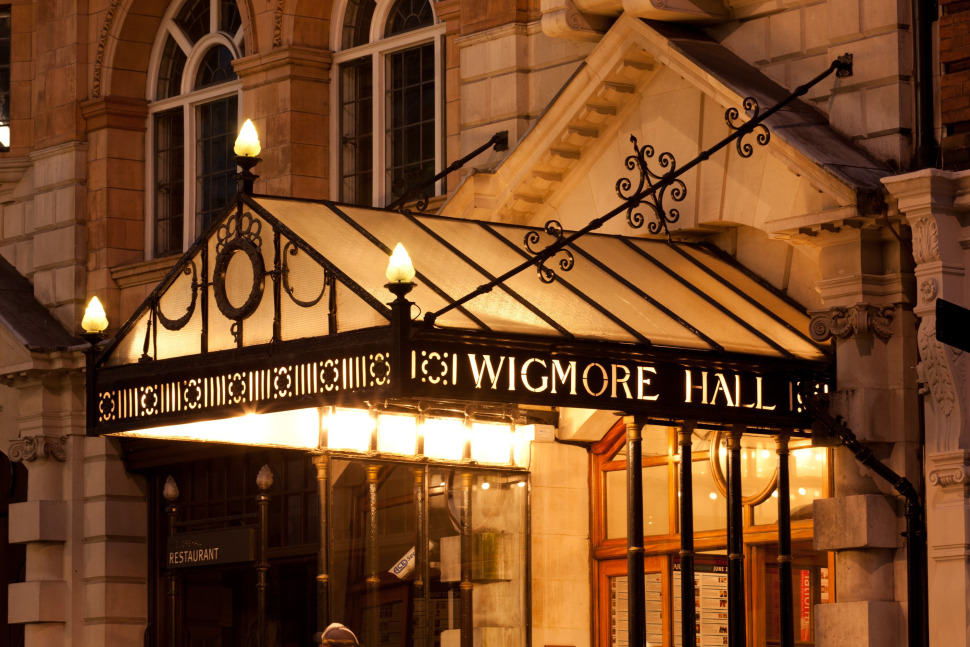
“What a relief to shelter from the sweltering heat and spend an hour with music of such radiance and beauty from a husband and wife dream team . A moving mixture of Schubert ‘Winterreise’ and Vaughan Williams ‘Songs of Travel’ . The programme is titled ‘Journey 100’, commemorating the 100thy anniversary of the birth of the German baritone Dietrich Fischer- Dieskau (1925- 2012) who was an enormously influential artist and for many ,his voice epitomises a refined lyrical ,articulate manner of performance through which the poetry shines...”
https://christopheraxworthymusiccommentary.com“Le Théâtre des Champs-Élysées présente L'Italienne à Alger de Rossini en version concert, par Le Concert de la Loge et le Chœur Fiat Cantus sous la houlette de Julien Chauvin que rejoint une troupe de solistes galvanisés par Marie-Nicole Lemieux...Le baryton-basse Mikhail Timoshenko est un Taddeo de haut vol. Sa voix enrobée de riches harmoniques résonne sur toute la tessiture et, côté humour, sa présence théâtrale se hisse au niveau de ses partenaires...”
https://www.olyrix.com/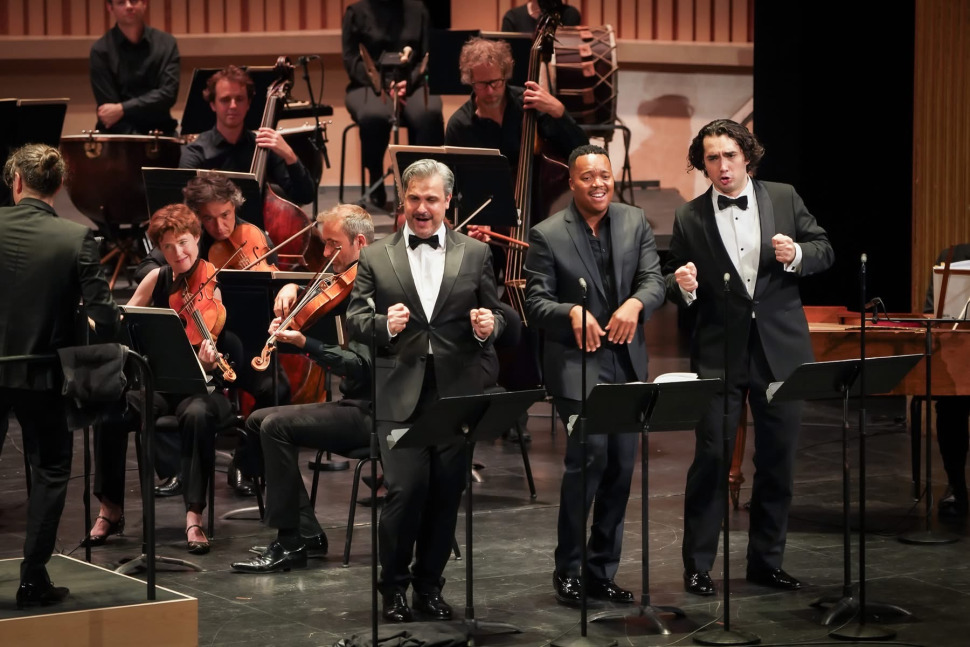
“Après L’Enlèvement au Sérail il y a un an et demi environ, Julien Chauvin et Le Concert de la Loge nous invitent à l’écoute d’une nouvelle turquerie sur instruments anciens. Le chef et sa formation inscrivent ainsi une nouvelle œuvre à leur répertoire, également leur premier contact avec Rossini, du moins à l’opéra. Il faut admettre qu’ils s’en sortent avec les honneurs et nous pouvons espérer que cette expérience ne sera pas sans lendemain. La direction paraît plutôt sage au tout début, affectée d’un rendu quelque peu abrupt des cordes dans l’ouverture, où se distingue le malicieux a solo de la clarinette dialoguant adroitement avec la flûte traversière, nous entrainant vers ce crescendo vertigineux qui constitue la griffe de l’ouvrage et du compositeur...Malgré des voyelles à la prononciation encore perfectible, Mikhail Timoshenko, en prise de rôle, campe un Taddeo à l’élocution souple, devisant adroitement avec le chœur dans son air de l’acte II...”
https://www.premiereloge-opera.com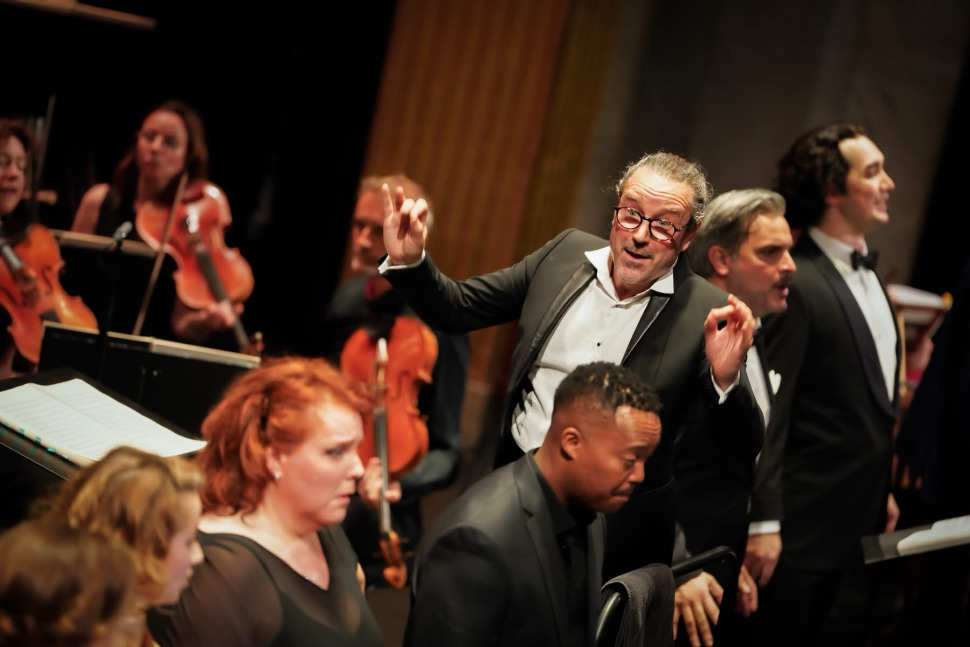
“Le bel écrin du Théâtre des Champs-Elysées vient d’accueillir une version en concert d’un des opéras les plus drôles du Cygne de Pesaro, L’Italienne à Alger. Cet opéra-bouffe est une « turquerie » comme on en trouve depuis le milieu du XVIIIe siècle, s’inscrivant dans le sillage du Turc Généreux des Indes Galantes de Rameau ou de L’Enlèvement au sérail de Mozart. C’est une œuvre de jeunesse de Gioacchino Rossini, composée à seulement 21 ans. À l’exception de Tancredi, toutes les œuvres la précédant sont de petites comédies en un acte assez courtes. Une œuvre donc extrêmement aboutie et soignée par le compositeur qui laisse à de bons chanteurs toute la place d’exprimer leur potentiel comique...Enfin, c’est Mikhail Timoshenko qui interprétait Taddeo, le soupirant infortuné et ridicule d’Isabella. Vocalement il est immense comme le montre sa très belle et très justifiée carrière. Malgré son jeune âge, nous le pensons mûr pour commencer à aborder des rôles plus larges et avons hâte de l’y entendre...”
https://www.classiquenews.com/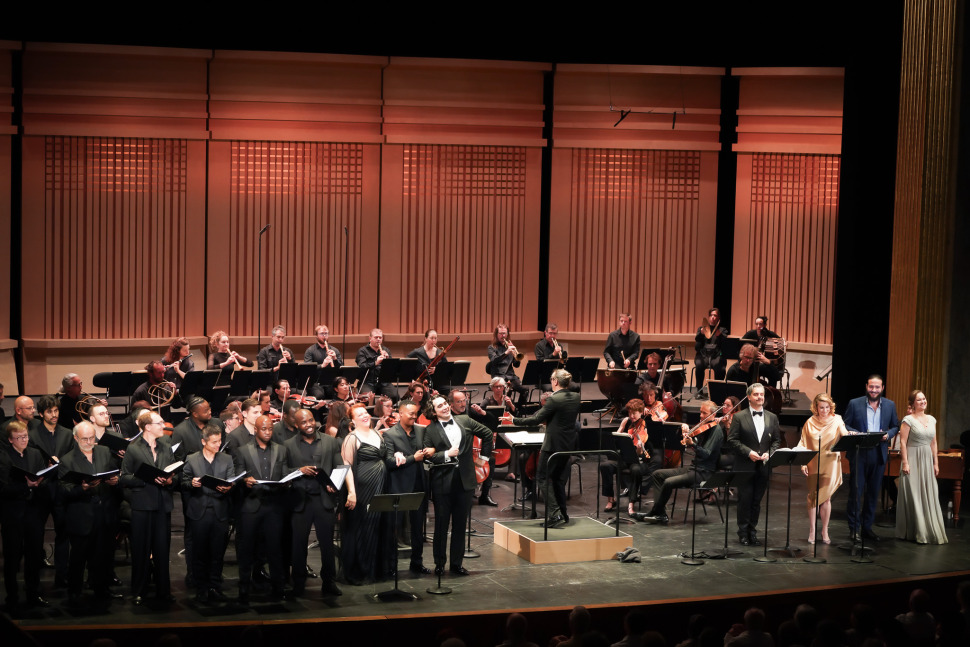
“Après la Semiramide de la veille dans ce même Théâtre des Champs-Élysées, place au Rossini buffo avec L’Italiana in Algeri. Et ce concert est fort réussi, en premier lieu grâce à l’excellente direction musicale de Julien Chauvin aux commandes de son ensemble du Concert de La Loge, le chef délaissant pour un soir sa fonction « en même temps » de premier violon de l’orchestre...Le baryton Mikhail Timoshenko compose un Taddeo magnifiquement timbré et plus puissant que son confrère, à en juger par la courte joute vocale des Pappataci en fin de second acte. On est en présence d’un titulaire plus jeune que d’ordinaire, très noble de timbre et utilisant sa vis comica avec justesse...”
https://resonances-lyriques.org/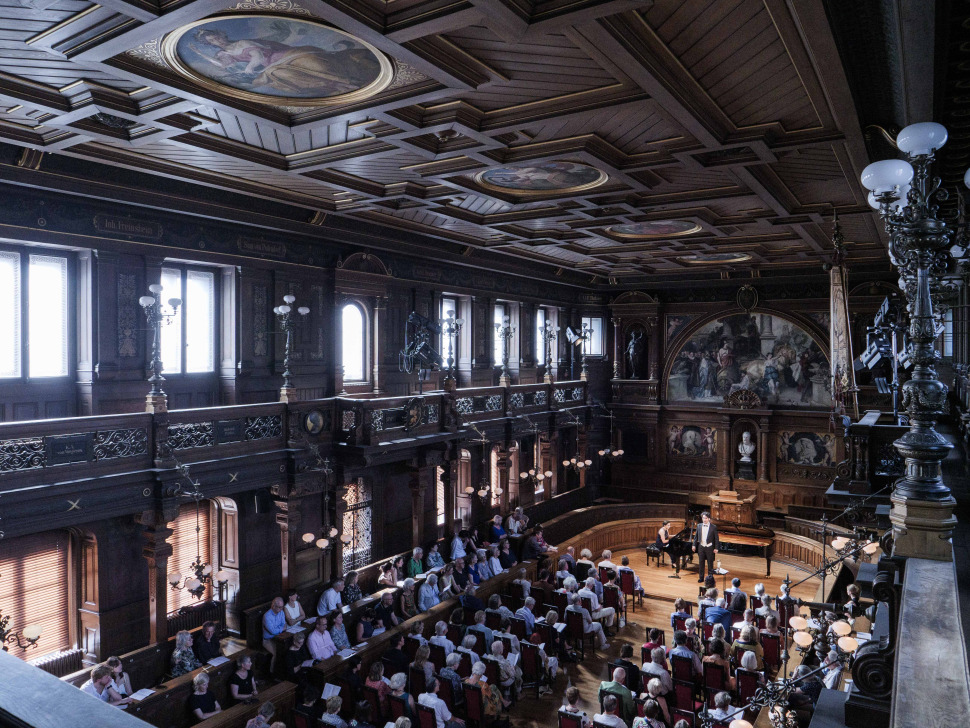
“Draußen hat sich der meteorologische Frühling gerade verabschiedet, drinnen, in der Aula der Alten Universität in Heidelberg, wird es ohnehin kalt: Schubert, „Winterreise“. Es gibt einsame Gipfelwerke in der Musikgeschichte, deren Aufführung stets aufs Neue zur quasi existenziellen Herausforderung wird. Für beide Seiten, für die Künstlerinnen und Künstler wie für die Zuhörer...Am Ende steht das absolute Nichts. Timoshenko lässt uns zusammen mit seiner höchst sensiblen Klavierbegleiterin teilhaben an diesem Weg hin zur völligen, damit existenziellen Verlorenheit. Denn am Ende des „Winterreise“ steht vielleicht ja noch nicht einmal der Tod, sondern das absolute Nichts...”
https://www.rheinpfalz.de/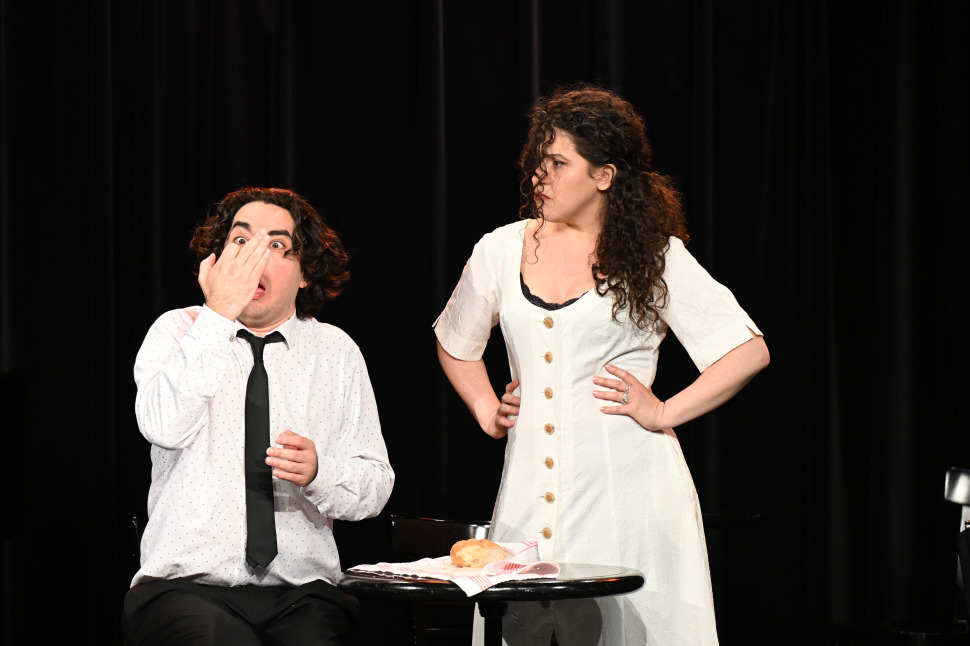
“Das Wiener Kaffeehaus als Institution wurde hier gebührend gefeiert. Nikolaus Büchel bereitete das Ganze als Regisseur und gebürtiger Wiener auch kabarettistisch auf: "Wie kommt der Wolf ins Kaffeehaus?" Die israelische Mezzosopranistin Hagar Sharvit, Mikhail Timoshenko (Bariton) und Elitsa Desseva (Klavier) ließen den unverwechselbaren "Wiener Schmäh" Revue passieren. Das zeigte sich sogleich zu Beginn, als beide Sänger "In einem kleinen Cafe in Hernals" von Hermann Leopoldi anstimmten. "Der Abschiedsbrief" von Kurt Weill spielte in der Interpretation von Hagar Sharvit virtuos mit erweiterter Tonalität...”
https://theaterkompass.de/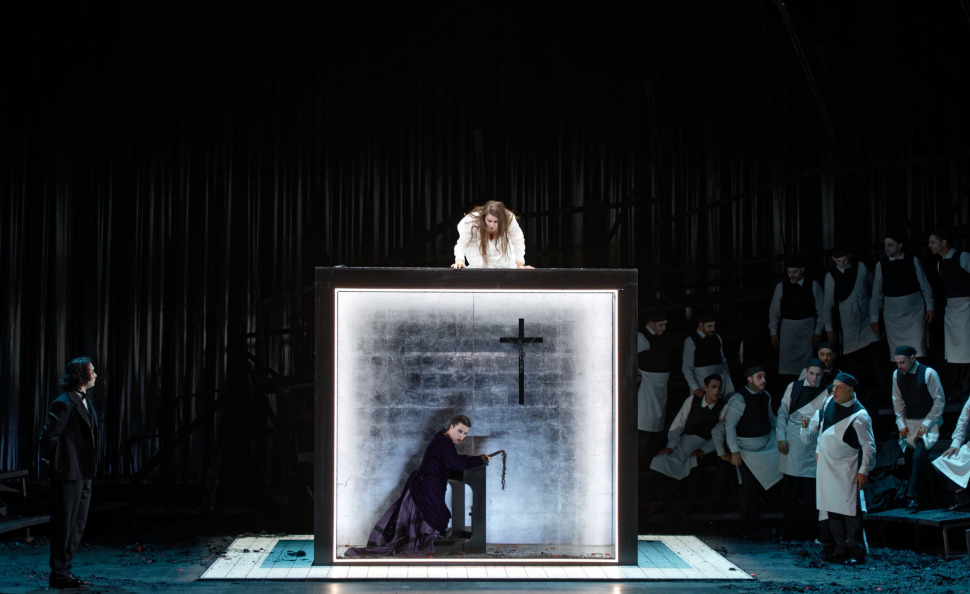
“El bajo-barítono ruso Mikhail Timoshenko sobresale como el mediador Hadjar, con una musicalidad soberbia en el aria “La flèche siffle” del acto II...”
https://scherzo.es/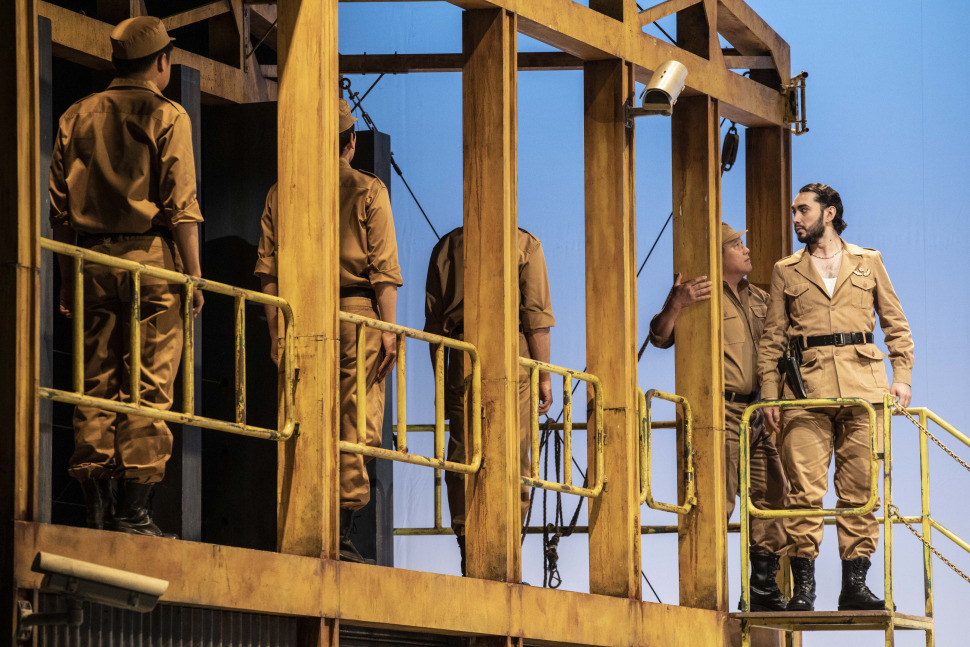
“Avant que le rideau se lève, les interrogations prévalaient : avec ses arômes singuliers, son côté citronné, floral et terreux, le vin bourru – que Christophe Rizoud avait dégusté à Rennes, puis Catherine Jordy à Nantes – avait-il gagné en finesse, en légèreté souriante pour réjouir le public nancéen ? Si la mise en scène – qui a évolué en fonction ses conditions nouvelles – et la direction musicale demeurent, la distribution en est totalement renouvelée...Mikhail Timoshenko campe un Belcore fat, qui se donne fière allure. La voix est sûre, sonore, les vocalises du « Come Parride vezzosa » irréprochables, le duetto où il engage Nemorino contre vingt écus est juste, et la déconvenue du sergent vaniteux, mauvais perdant, berné par Adina, convaincante...”
https://www.forumopera.com/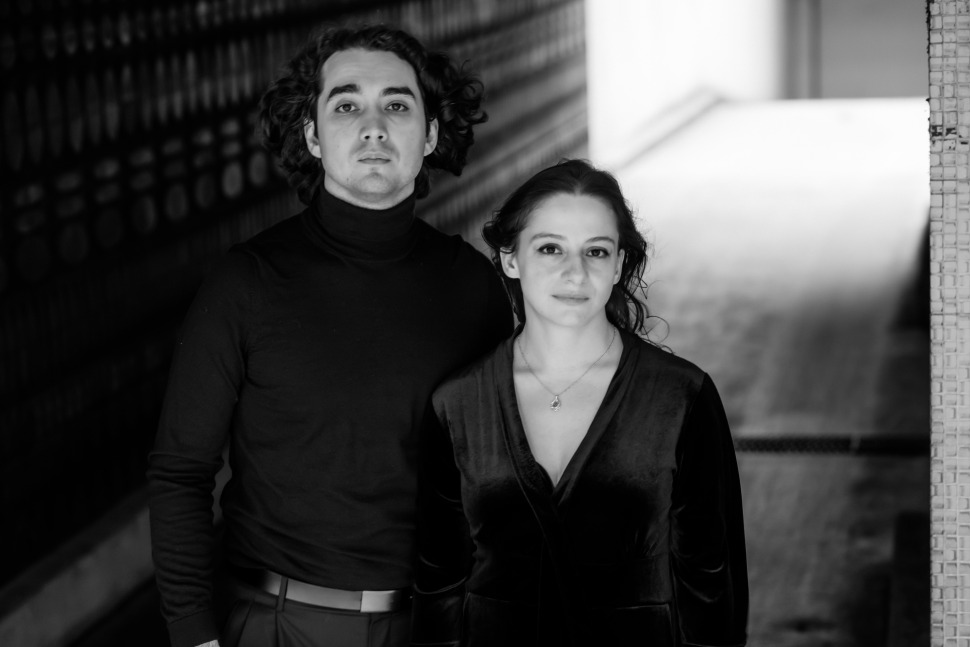
“Le duo que l’on a pu écouter avec enchantement le 8 février à l’Auditorium du Musée d’Orsay, constitué de la pianiste bulgare Elitsa Desseva et du baryton-basse russe Mikhail Timoshenko (qui chante actuellement le rôle de Masetto dans la production de Don Giovanni à l’Opéra Bastille) a ainsi reçu l’enseignement de Véronique Gens et Susan Manoff, Stéphanie d’Oustrac et Pascal Jourdan, Stéphane Degout et Hélène Lucas. Leur CD, « Aimer à loisir » a été publié en septembre 2021 chez B-Records...Dès les premières notes de Ravel, fascinante figuration pianistique d’une guitare rêvée, on est captivé par le jeu d’Elitsa Desseva et on le restera jusqu’à la fin du concert. La jeune pianiste nous fait entrer dans la profondeur du son des harmonies ravéliennes, mettant en exergue telle aspérité tout en proposant à son partenaire, l’excellent Mikhail Timoshenko, un paysage polychrome et sensuel, alternativement interrogatif et lyrique, dans lequel le chanteur peut voyager à loisir et grâce auquel il peut véritablement déployer toutes les facettes de son art. Poulenc ouvre ensuite d’autres mondes : sur les poèmes ironiques et désenchantés d’Apollinaire, les deux interprètes savourent et nous font savourer un éventail très ouvert d’onirisme, de sensualité et de second degré : à ce point de vue les mélodies « Hôtel » et « Voyage à Paris » sont, chacune dans son genre, des modèles d’intelligence de la matière sonore, tant vocale que pianistique. C’est un compositeur russe peu connu dans nos contrées qui inaugure la partie russe du programme : Georgy Sviridov (1915-1998). Sur des poèmes de Sergueï Essenine, « suicidé » par le régime soviétique à Leningrad en 1925, Sviridov écrit, dans un cycle composé en 1987 et intitulé « La Russie à la dérive », des pages d’une nostalgie poignante dont Mikhail Timoshenko et Elitsa Desseva mettent fort bien en valeur l’alliage de nudité et de lyrisme. Avec Tchaïkovski, on revient à la plénitude d’un « bel canto à la russe », avec également, chez ce compositeur francophile, le souvenir de la romance. On est ici captivé par l’aisance des deux interprètes à varier les tonalités, les couleurs, les nuances, dans une belle fidélité aux compositeurs qu’ils ont choisis. Avec Jacques Ibert (nom prédestiné pour un compositeur s’intéressant à l’Espagne… !), ils proposent quelque chose comme une apothéose : les Chansons de Don Quichotte composées pour un film de Pabst (1933) consacré au personnage imaginé par Cervantés, suscitent dans l’Auditorium du Musée d’Orsay une émotion tangible, tant la ferveur et la profondeur de Mikhail Timoshenko (en particulier dans la toute dernière mélodie : La Mort de Don Quichotte) se voient soutenues par la densité émotionnelle de l’interprétation d’Elitsa Desseva. Un moment d’exception que ce récital...”
https://webtheatre.fr/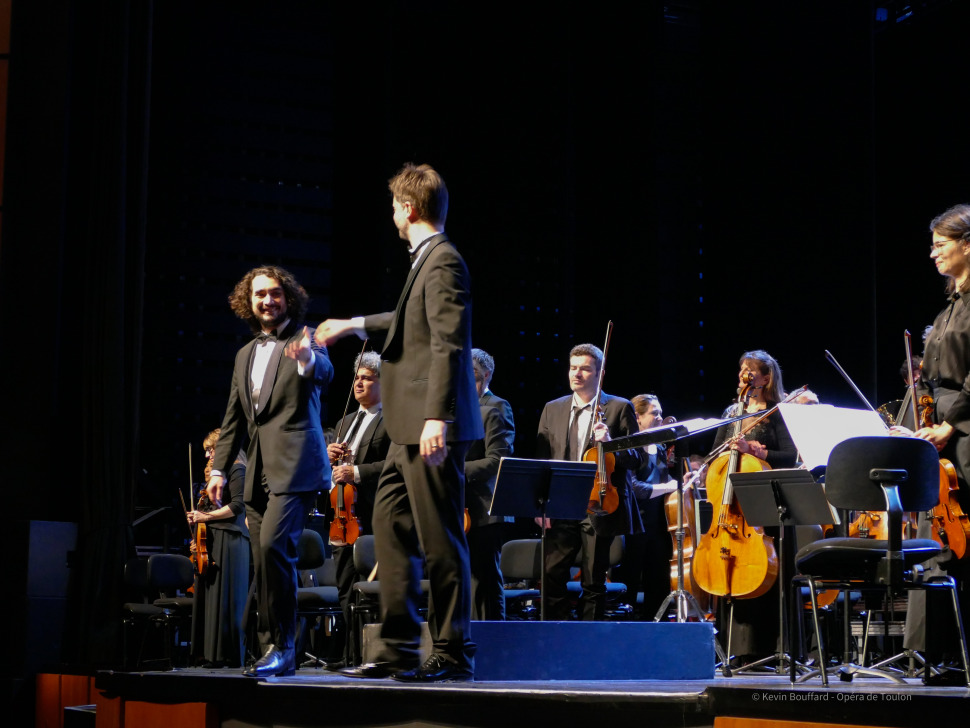
“Si le jeune baryton russe Mikhail Timoshenko ne dispose pas toujours d’un chant pouvant multiplier les modulations voire, en voix de tête, d’une tendance à parfois détimbrer, c’est justement la sensation de fragilité de cet organe qui nous a captivé dans cette exécution des Kindertotenlieder. Comme dans le cas de sa collègue soprano, l’interprète marque sa performance du sceau de la retenue et ne bascule jamais dans aucune sentimentalité, même lorsque le texte pourrait y donner libre cours (« Ach, zu schnell, erlosch’ner Freudenschein ! » / « Hélas, trop vite l’éclat de la joie s’éteint ! »). Dans l’ultime lied du cycle « In diesem wetter… » / « Par ce temps… », la voix sait se faire discrète pour passer derrière les violons et le son du célesta, comme si elle était celle de l’interprète d’une simple chanson… à la poésie crépusculaire...”
https://www.premiereloge-opera.com/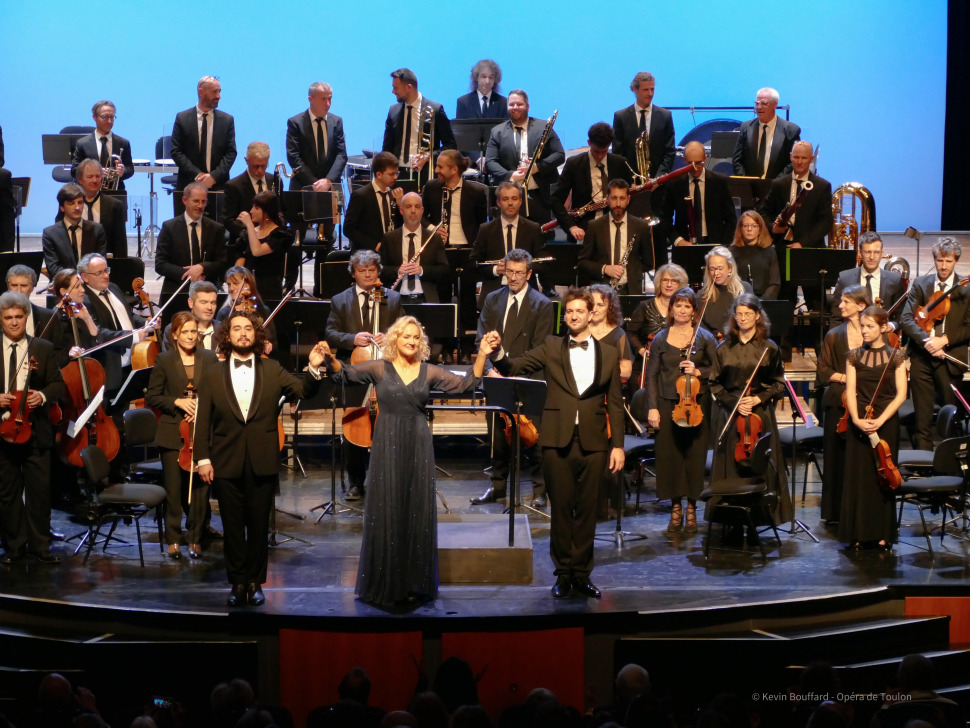
“Le baryton Mikhail Timoshenko insère dans le monde froidement ouvragé de Mahler sa voix mordorée, souple, vibrante et constamment audible : sur, entre, et sous les textures chambristes de l’œuvre. Ses intervalles ascendants sont comme une berceuse qui éveille les enfants, tandis que ses plongées dans le grave se lestent d’une poudre noire, appliquée avec délicatesse. Son timbre, moiré, s’acclimate au ciel de chaque Lied. Il se prolonge naturellement, quand il ne les anticipe pas, dans les soli instrumentaux. La diction est souple, précise, et attire, du bout des lèvres, l’allemand littéraire du côté de la douceur, de l’introspection. Surtout, les crescendi se font expression poignante, à l’échelle du mot, portés par les vagues de l’orchestre. Entre les pièces, il reste immobile, comme figé dans la vision hallucinée de son propos. Le public, lors des saluts, participe à la dynamique de la soirée, réservant une ovation longue et ascendante à l’ensemble des protagonistes, dont les forces musicales et expressives se sont enrichies mutuellement, ce soir, au crépuscule…”
https://www.olyrix.com/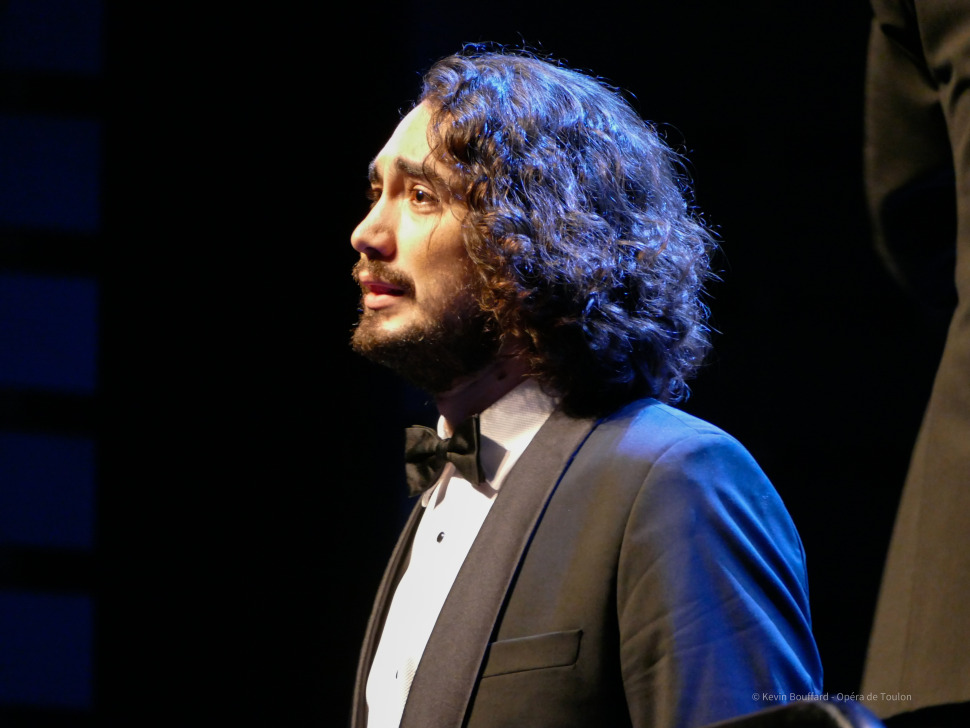
“Elisabeth Teige, soprano à la voix wagnérienne, médusa les auditeurs avec les Lieder de Strauss, tandis que Mikhail Timoshenko, baryton d’origine russe, fut remarquable dans l’interprétation des Kindertotenlieder...”
https://www.la-strada.net/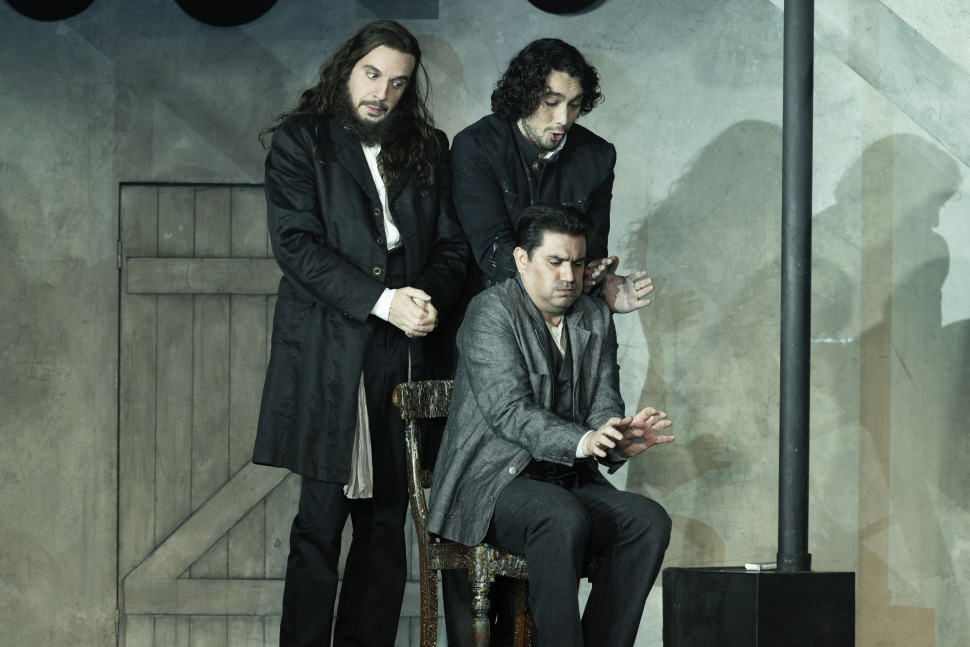
“La bohème review — Puccini revived with a knockout Mimì...Mikhail Timoshenko seizes his moments as a dishevelled and perpetually distressed Marcello...”
https://www.thetimes.com/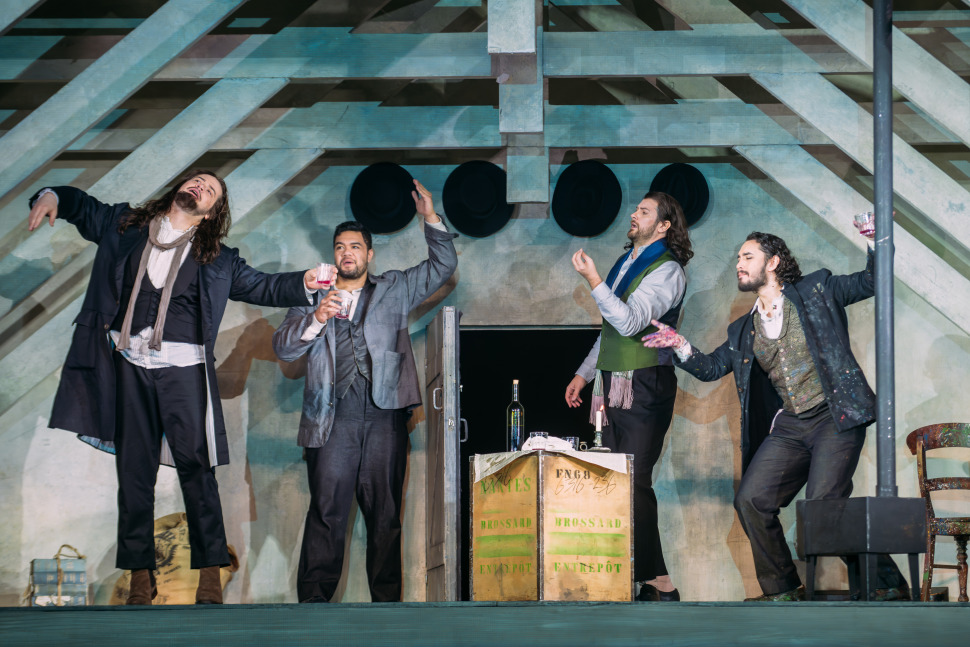
“Those with more morose dispositions, suffering under the hail of saccharine bullets of Father Christmas, cheerful elves and gravity-defying reindeer, may celebrate the adoption of La bohème as a ‘Christmas opera’...Mikhail Timoshenko gave us a Marcello who seemed at times to have the bearing of a fallen monarch; he has a commanding stage presence and an admirably forceful baritone...”
https://bachtrack.com/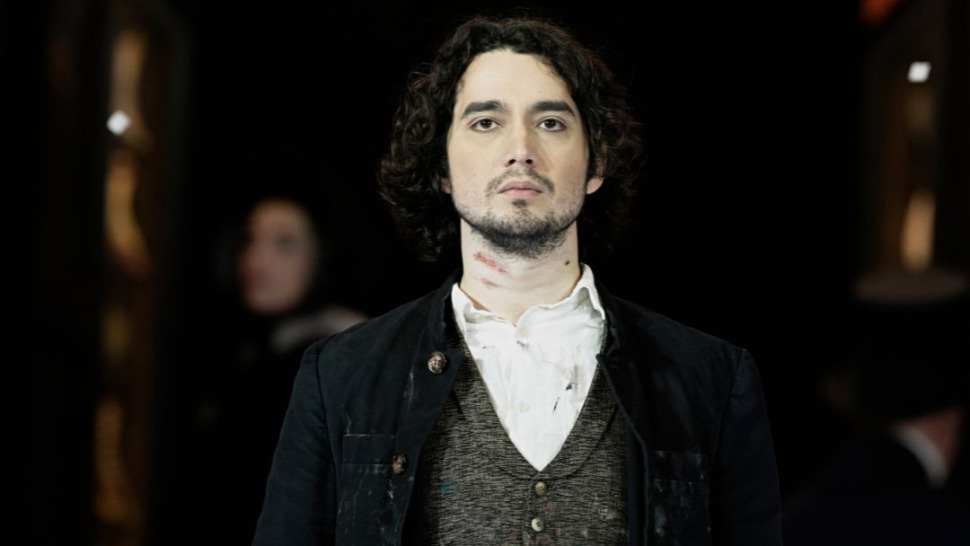
“Russian baritone Mikhail Timoshenko plays the artist Marcello. His voice is rich-toned and he shows an intelligent musicality in the way he shapes the gorgeous melodic units that Puccini provides. La Bohème is as much about the fragility of the male ego as it is anything else and Timoshenko turns on a sixpence from being a wise paternalistic figure giving sage advice to Mimi, to a madman jealous of his flirtatious girlfriend Musetta, resplendent in a stunning scarlet frock...”
https://www.london-unattached.com/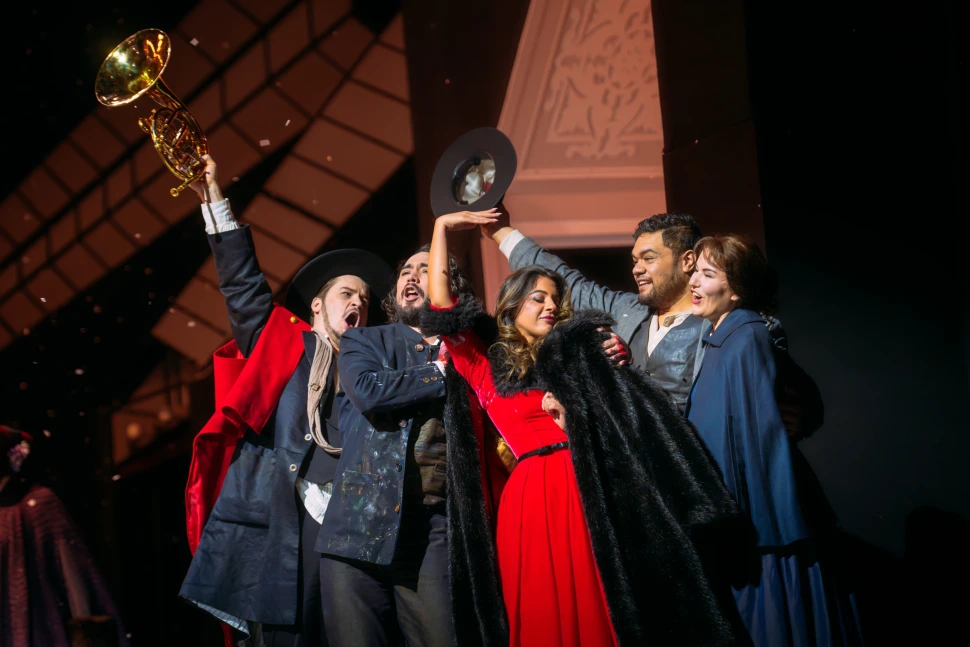
“Joining the ragtag group in the Latin Quarter is tempting exhibitionist Musetta, sung here by a lively Amina Edris...As her on-off flame, painter Marcello, Mikhail Timoshenko strikes a charming figure to make his powerful voice, bringing a fun-loving quality to his work and meshing well with Edris to create dynamic onstage spats...”
https://www.allthatdazzles.co.uk/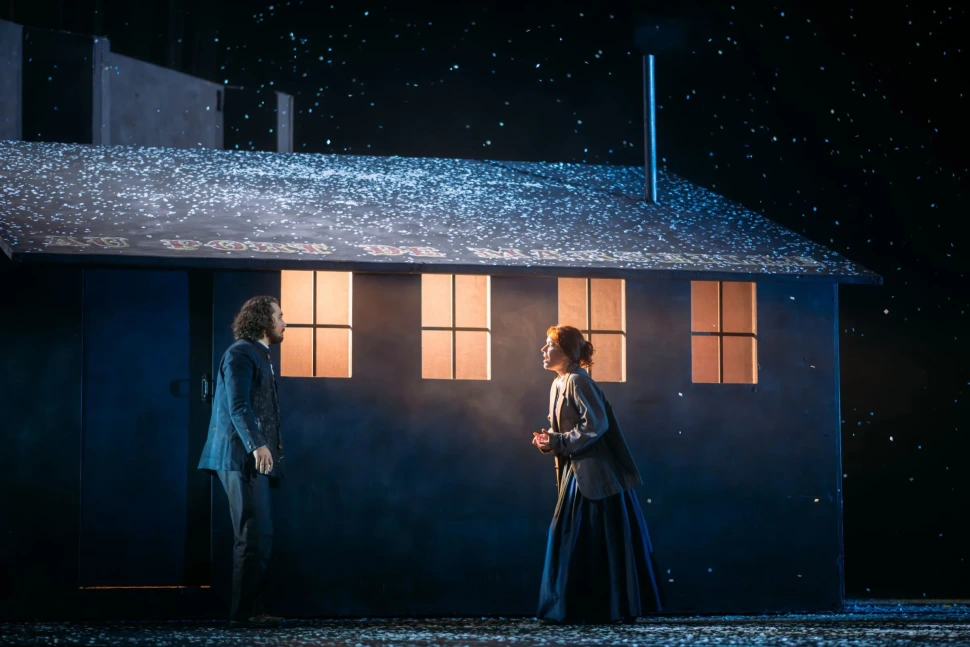
“Few operas plunge in so directly as La Bohème. One is immediately transported to Paris – or at least to Puccini’s version of it. The opening hits the spot in this revival of Covent Garden’s most frequently performed opera of all time, with the house’s principal guest conductor designate Speranza Scappucci setting a cracking tempo, and the bohemians playing it for laughs even when the love interest kicks in...Among a notably young and light-hearted group of bohemians, Mikhail Timoshenko offered a vigorously sung and acted Marcello...”
https://www.theguardian.com/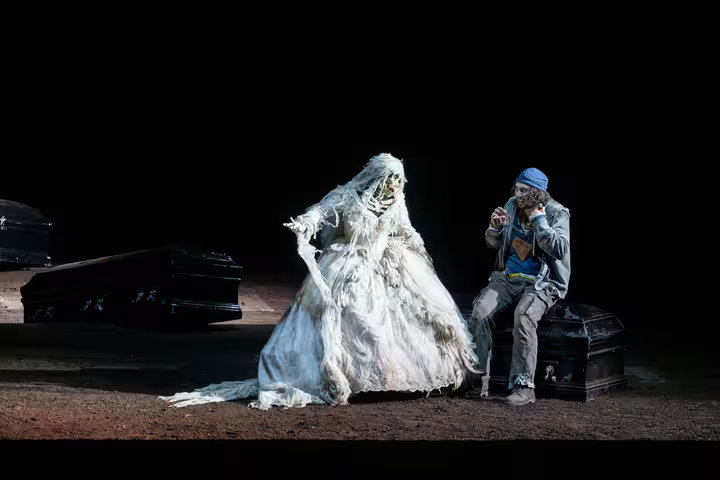
“Le Papageno du bartyon Mikhail Timoshenko, habitué de Bastille, est au même niveau d’excellence et l’on apprécie d’ailleurs tout particulièrement leurs duos, grands moments musicaux. Drôle et parfois tragi-comique, ce Papageno se situe à des hauteurs rarement atteintes dans ce rôle tout à la fois espiègle et rempli de cette fantaisie enchanteresse qui caractérise l’œuvre. Très à l’aise sur scène, la voix puissante et subtile tout à la fois, le baryton nous enchante de son arrivée par les travées de la salle à son désopilant numéro avec Papagena (merveilleuse Ilanah Lobel-Torres, membre de la troupe lyrique de l’OnP, qu’on espère revoir dans des rôles plus consistants)...”
https://cult.news“Der Bariton Mikhail Timoshenko und die Pianistin Elitsa Desseva sind mit dem Eduard-Erdmann- Förderpreis 2024 ausgezeichnet worden. In ihrer Begründung würdigt die Jury die langjährige künstlerische Auseinandersetzung und das Engagement, mit dem sich das Liedduo für das Liedschaffen des Komponisten Eduard Erdmann (1896-1958) eingesetzt habe. Dies habe wesentlich dazu beigetragen, dass seine Lieder, die lange Zeit in Vergessenheit geraten waren, wieder im Konzertsaal erklingen. Im Frühjahr 2024 war in der Interpretation des in Wien lebenden Liedduos als Weltersteinspielung eine CD mit Liedern von Eduard und Irene Erdmann bei Hänssler Classic (HC24009) erschienen...”
https://eduard-erdmann-gesellschaft.de/“Sans être exceptionnelle, la distribution vocale est très bonne, dominée par les deux interprètes de Tamino et Papageno . Le premier est le ténor slovaque Pavol Breslik. Le second est le baryton russe Mikhaïl Timoshenko. Il nous réjouit toute la soirée. La Pamina de Nikola Hillebrand est touchante. Aleksandra Olczyk chante la Reine de la nuit avec une voix vibrante dont les vocalises ne coulent pas mais dans lesquelles elle insiste sur chaque note, rendant son expression dramatique. Jean Teitgen chante Sarastro avec noblesse. Nicolas Cavalier est un bon Orateur. Mathias Vidal est très à l’aise en Monostatos. Charmante intervention de Ilanah Lobei-Torres en Papagena . Son duo Pa-pa-pa-geno-pa-pa-pa-gena est bien sûr très attendu. Il fait toujours son ef-fet-fet. Mention spéciale pour les deux trios des Dames de la nuit et des enfants. Souvent, ils sont sacrifiés – surtout le second. Ici, ils sont remarquables. Ces dames sont Margarita Polonskaya, Marie-Andrée Bouchard et Claudia Hucke. Quant aux enfants, ils ont été choisis dans la Chorale d’enfants Aurelius de la ville de Calw en Bavière...”
https://www.classiquenews.com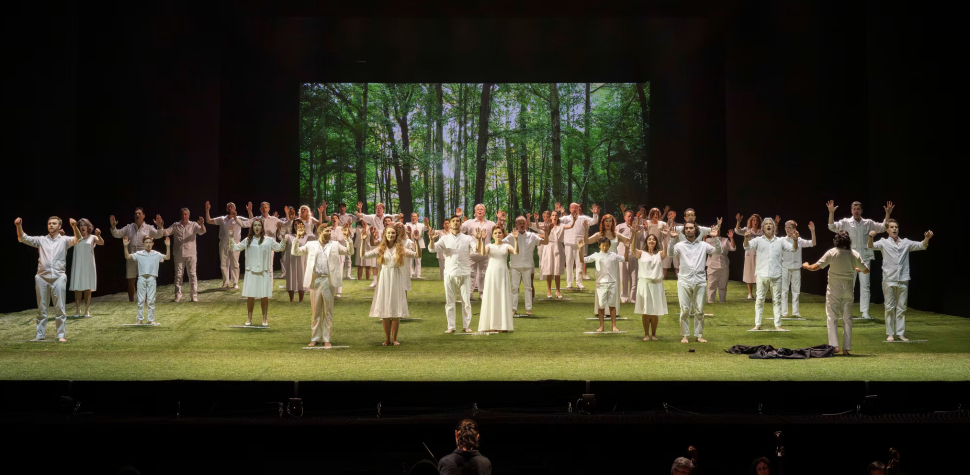
“Mais le maitre des lieux est bien l’inénarrable Papageno, Mikhail Timoshenko, que l’on sent chez lui à Bastille. Le baryton puissant incarne l’oiseleur vibrionnant sans le caricaturer avec beaucoup d’humour et de tendresse, la salle est avec lui...”
http://unfauteuilpourlorchestre.com/la-flute-enchantee-de-wolfgang-amadeus-mozart-mise-en-scene-de-robert-carsen-a-lopera-bastille/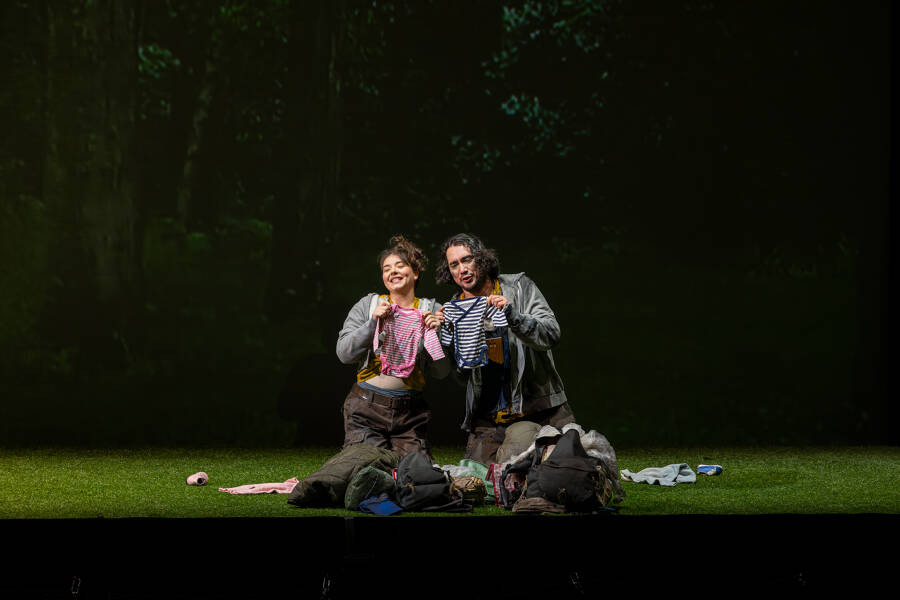
“Reprise de La Flûte enchantée à l’Opéra Bastille : pour les chanteurs surtout ! Reste le Sprecher noble et sonore de Nicolas Cavallier, et le charmant couple formé par Papagena, Ilanah Lobei-Torres, et Papageno, Mikhail Timoshenko, tous deux anciens élèves de l’Académie de l’Opéra de Paris. Malgré son ridicule costume de hippie à sac à dos, dès le premier air de l’oiseleur, on constate l’aisance du jeune baryton russe à bien placer sa voix, naturellement belle jusque dans les aigus, une beauté vocale qui se confirme dans « Ein Mädchen oder Weibchen » : un pur moment de plaisir ! On pourra retrouver Mikhail Timoshenko sur scène à Paris en 2025 dans L’Italienne à Alger au TCE...”
https://www.premiereloge-opera.com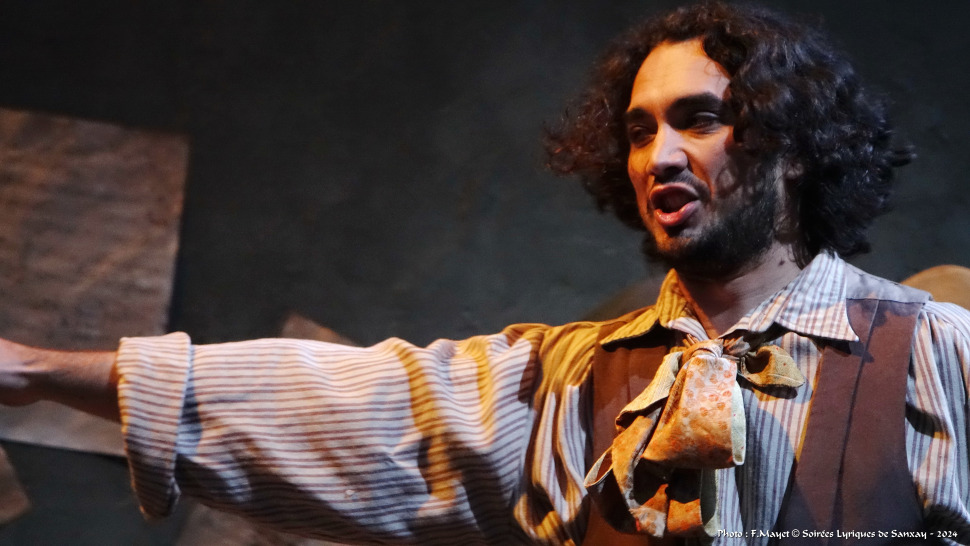
“Le rôle du peintre Marcello est interprété par le jeune baryton Mikhail Timoshenko, déployant la libre résonance de son chant, sa présence vocale généreuse avec des aigus rayonnants et riches d'expression dramatique. Le phrasé se déploie sans le moindre effort physique, couronnant ses débuts plus que prometteurs à Sanxay...”
https://www.olyrix.com/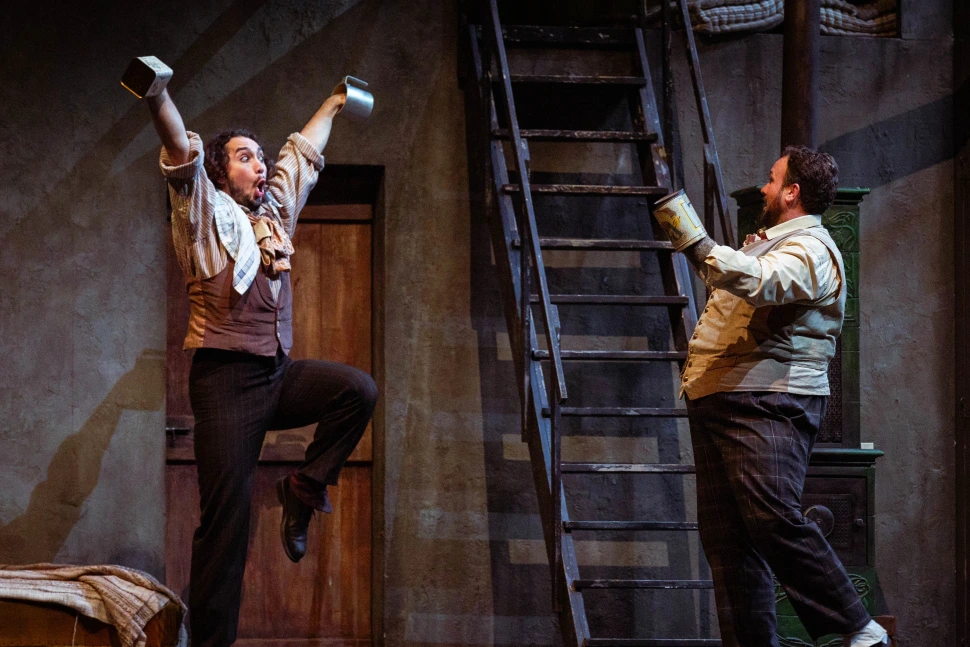
“Le rôle du peintre Marcello est interprété par le jeune baryton Mikhail Timoshenko, déployant la libre résonance de son chant, sa présence vocale généreuse avec des aigus rayonnants et riches d'expression dramatique. Le phrasé se déploie sans le moindre effort physique, couronnant ses débuts plus que prometteurs à Sanxay...”
https://resonances-lyriques.org/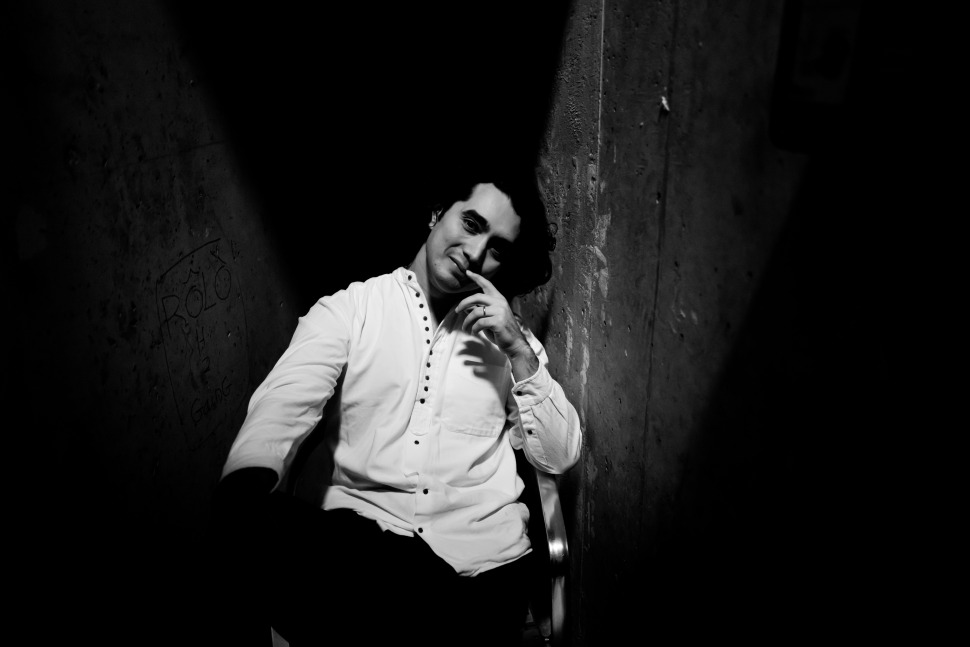
“Pour ce récital entièrement consacré à Jacques Offenbach, c’est évidemment la joie et la bonne humeur qui primaient. Accompagnés par le piano de l’unique musicien Olivier Dauriat, les quinze chanteurs lyriques (2), parmi lesquels on notait la participation de Mikhail Timoshenko, qui sera prochainement Papageno à l’Opéra de Paris, ou celle de Juan José Medina, qui s’est fait connaître à Clermont-Ferrand avant d’intégrer le Conservatoire national supérieur de musique et de danse de Paris, n’ont économisé ni leur voix, ni leur sens de la comédie, visiblement ravis de se trouver sur la scène de l’opéra-théâtre clermontois...”
https://www.lamontagne.fr/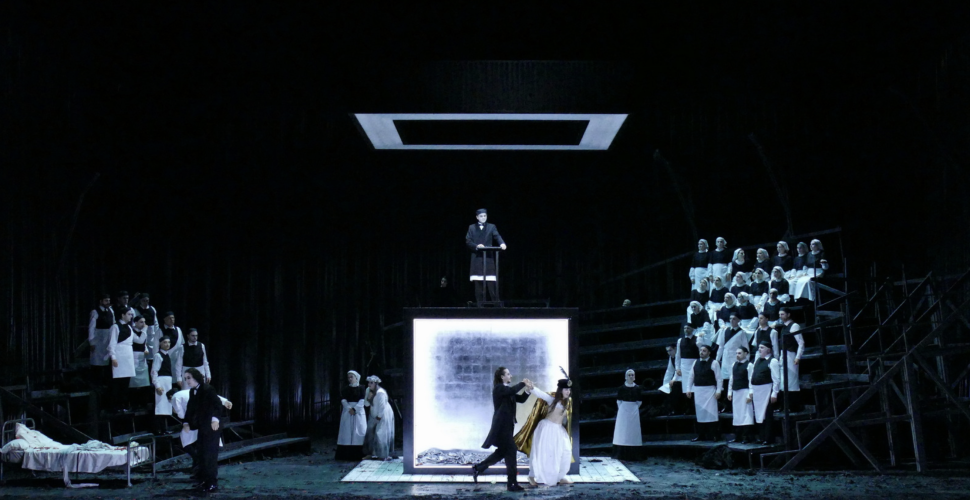
“Presque totalement française (seul, Hadjar et le Roi sont chantés par Mikhail Timochenko), la clarté de l’élocution est exceptionnelle, commune à tous. Totalement engagée dans ces prises de rôle, l’équipe est superbe, qui sera très longuement ovationnée au final...Outre le Roi, Mikhail Timoshenko nous vaut un Hadjar éblouissant, rayonnant, noble et sensible. La voix est chaleureuse, d’une conduite exemplaire...”
https://www.forumopera.com/“Cependant, le soprano Clémence Barrabé donne de grands frissons [lire notre chronique de Don Giovanni]. En Roi d’Ovideo, Mikhaïl Timoshenko lui répond sur le magnifique élan de compassion tracé par les violons et la harpe, mais le jeune baryton russe plaît encore davantage en Hadjar, pour la chanson d’officier gorgée d’optimisme qu’il claironne vaillamment. Son timbre suave donne ensuite des clés de l’intrigue et, avec bonheur et prestance, un splendide petit air qui dit l’amitié pour Manoël, son sauveur [lire nos chroniques d’Orfeo, Owen Wingrave, Boris Godounov, En silence et Werther]...”
https://www.anaclase.com/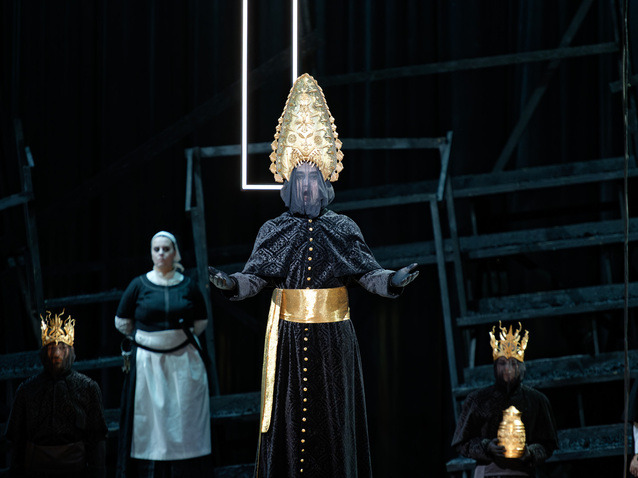
“Autant le baryton Mikhail Timoshenko excelle dans la figure médiatrice d’Hadjar – superbe musicalité dans l’air « La flèche siffle » (2e acte) –, autant les graves de son second rôle, le Roi, le mettent en difficulté en dépit d’une expressivité compatissante...”
https://www.premiereloge-opera.com/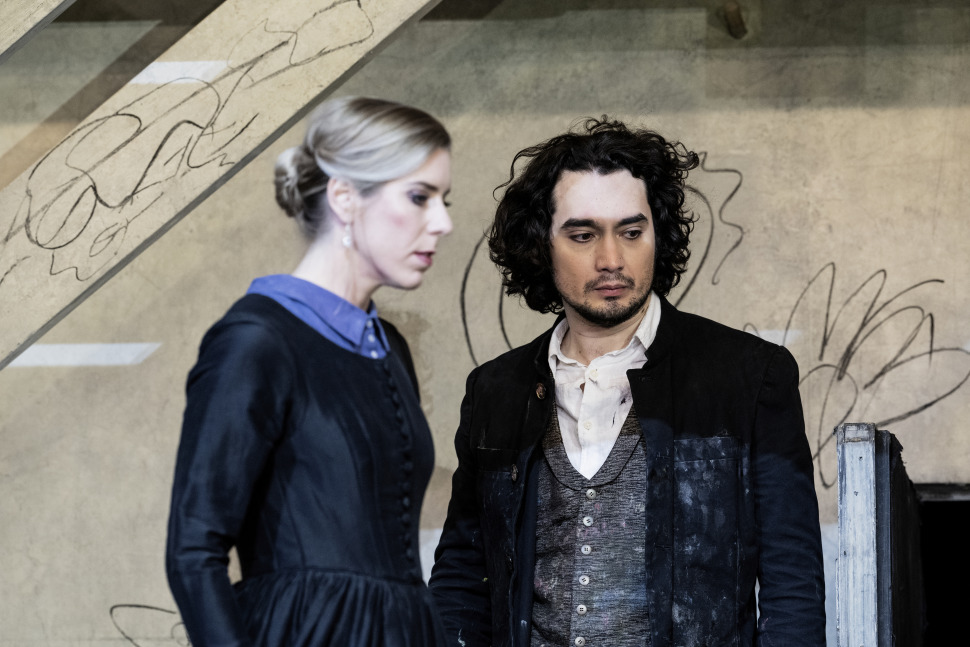
“Some uncertainty nevertheless hovered over the nature of Mimi and Rodolfo’s love affair; does it begin as genuine passion or a moment of opportunism? It needs to be the former if we’re to be convinced, but any chemistry between these two was a tad outshone by that of Marcello and Musetta – baritone Mikhail Timoshenko and soprano Lauren Fagan (replacing Danielle de Niese) – who blended seriously impressive singing with uninhibited sensuality to magnificent effect...”
https://inews.co.uk/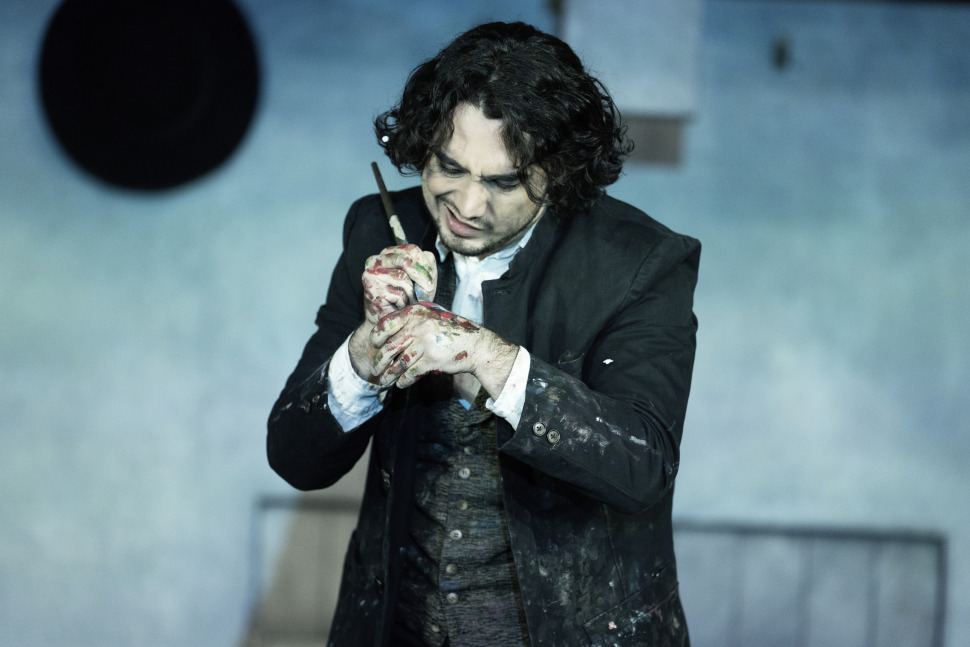
“Richard Jones’ 2017 production of Puccini’s eternal tear-jerker La bohème is revived once again at Covent Garden, this time running for 13 performances with a merry-go-round of three wholesale cast changes. ...some impressive voices, chief among them the Russian baritone Mikhail Timoshenko, also making his Royal Opera debut, as the painter Marcello. There is an intense musicality in this voice and a gift for phrasing that our dogmatic Rodolfo could learn from. It was a delightful performance...”
https://bachtrack.com/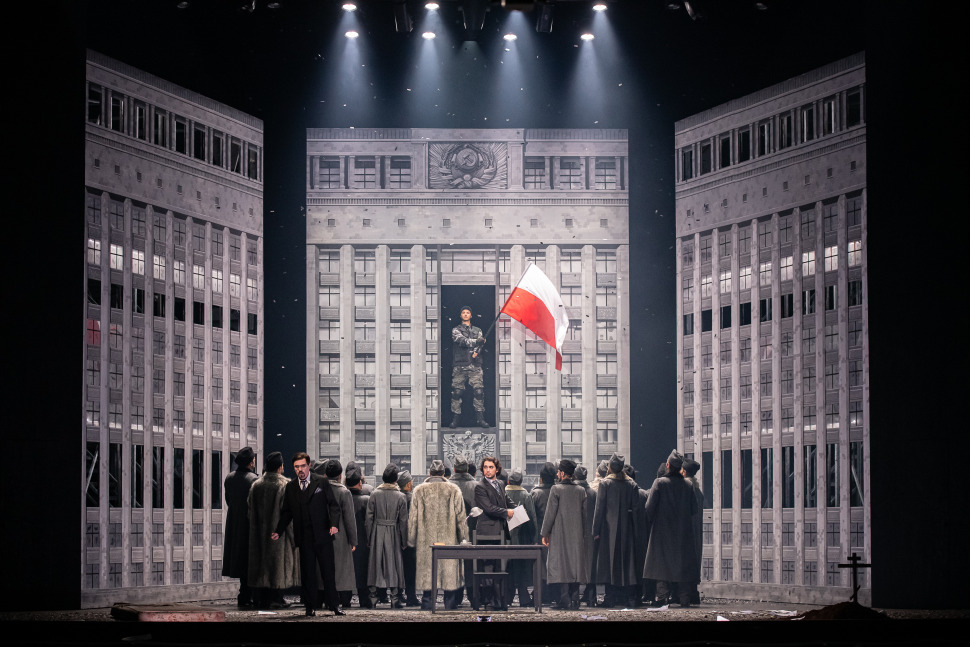
“A l'occasion de la nouvelle production de Boris Godounov de Moussorgski à l'Opéra national du Capitole de Toulouse, Concertclassic a interviewé le baryton basse Mikhail Timoshenko qui interprète le rôle de Andreï Chtchelkalov. Du 24 novembre au 3 décembre 2023...”
https://www.concertclassic.com/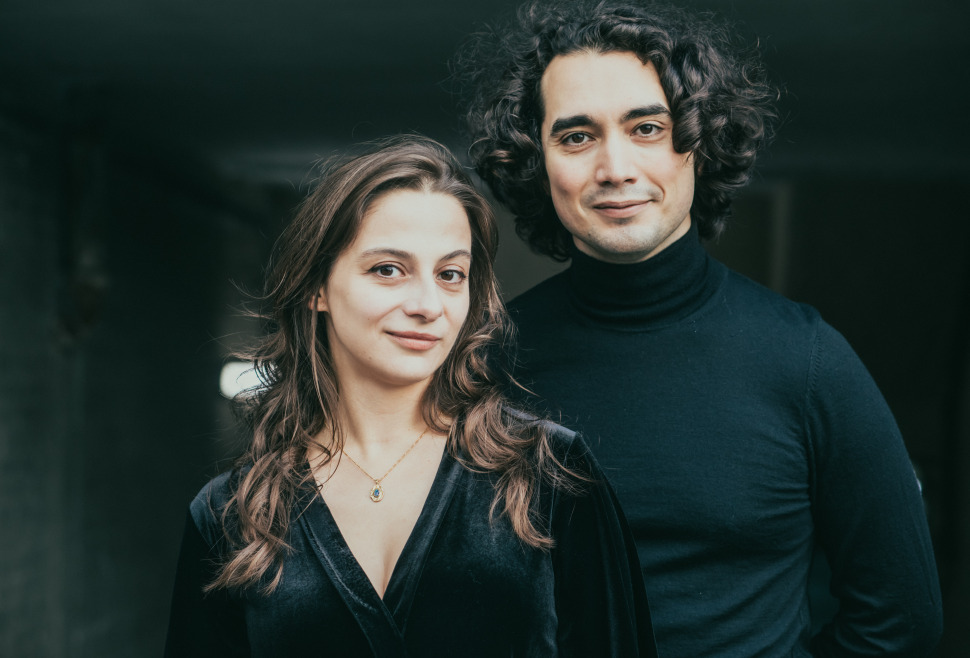
“Fidèles aux rendez-vous que le Capitole donne au public toulousain à 12h30, les fameux « Midi du Capitole » *, les mélomanes de la Ville rose ont à nouveau envahi le vaisseau amiral de la culture toulousaine en ce mitan du 9 novembre 2023. Et comme ils ont eu raison ! Encore une fois Christophe Ghristi avait invité à se produire un artiste en représentation au Capitole. Cette fois, c’est le jeune baryton russe Mikhail Timoshenko qui avait cet honneur. Trentenaire depuis quelques jours à peine, celui qui fut in loco un bouleversant Marcello des dernières reprises de La Bohème, avait sélectionné, sous l’intitulé « Chansons de rêveurs », un programme de mélodies françaises et russes. Accompagné, de manière très experte et finement musicale, par la jeune pianiste bulgare Elitsa Desseva, le récital débute avec Maurice Ravel et se clôture avec Jacques Ibert. Vous avez deviné ? Oui, bien sûr, Mikhail Timoshenko a choisi ces deux musiciens et plus particulièrement leurs compositions autour du plus excentrique des rêveurs de la littérature : Don Quichotte. Sept chansons sont donc au programme : romanesque, épique, à boire, du départ, à Dulcinée, du Duc et, enfin, de la mort de Don Quichotte. Tout un panorama d’émotions que s’approprie ce jeune artiste, bouleversant l’auditoire dans le dernier opus dont la prosodie devient alors d’une parfaite netteté...”
https://classictoulouse.fr/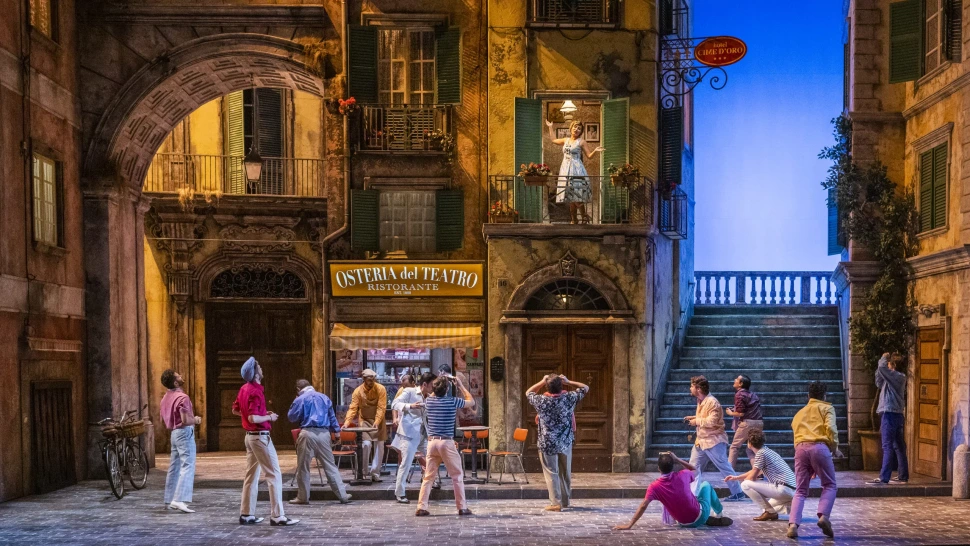
“On est surpris, d’abord, par le jeune et bouillant Prosdocimo de Mikhail Timoshenko (…) Il convainc, pourtant, par un engagement vocal le hissant au premier rang, notamment pour le très brillant trio « Un marito scimunito ! »...”
https://operamag.com/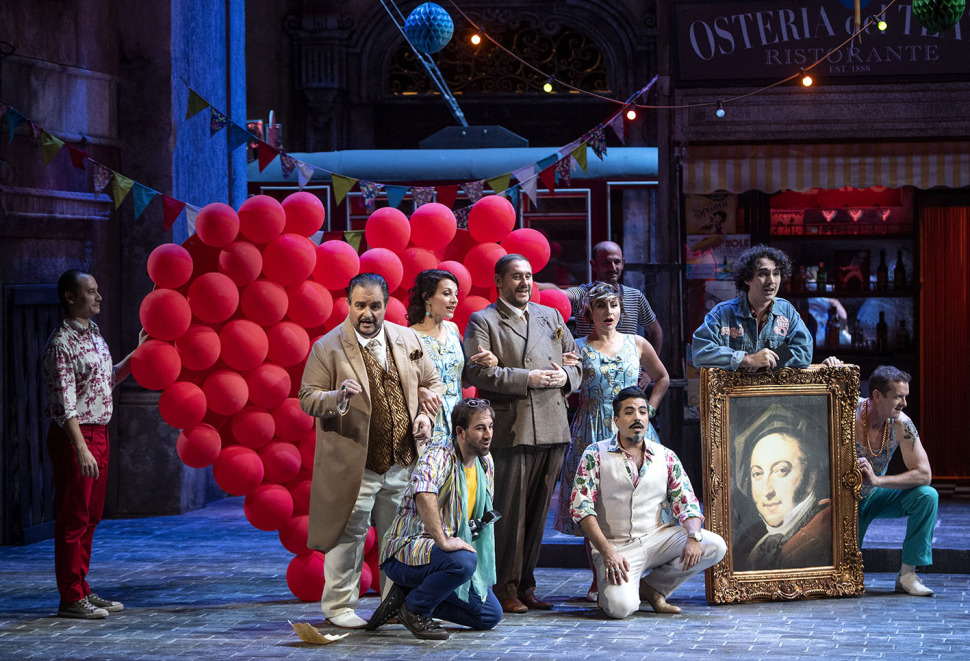
“Y sucede, que en el “Turco” hace falta un tercer barítono de enjundia y esta producción lo encontró en el joven barítono ruso Mikhail Timoshenko. ¡Qué derroche de facultades vocales y qué ganas de hacerlo bien demostró en cada una de sus intervenciones! Sin duda, un valor a tener muy en cuenta y llamado a hacer grandes cosas en los escenarios internacionales en los próximos años a poco que esté bien guiado y sepa escoger el repertorio...”
https://www.operaworld.es/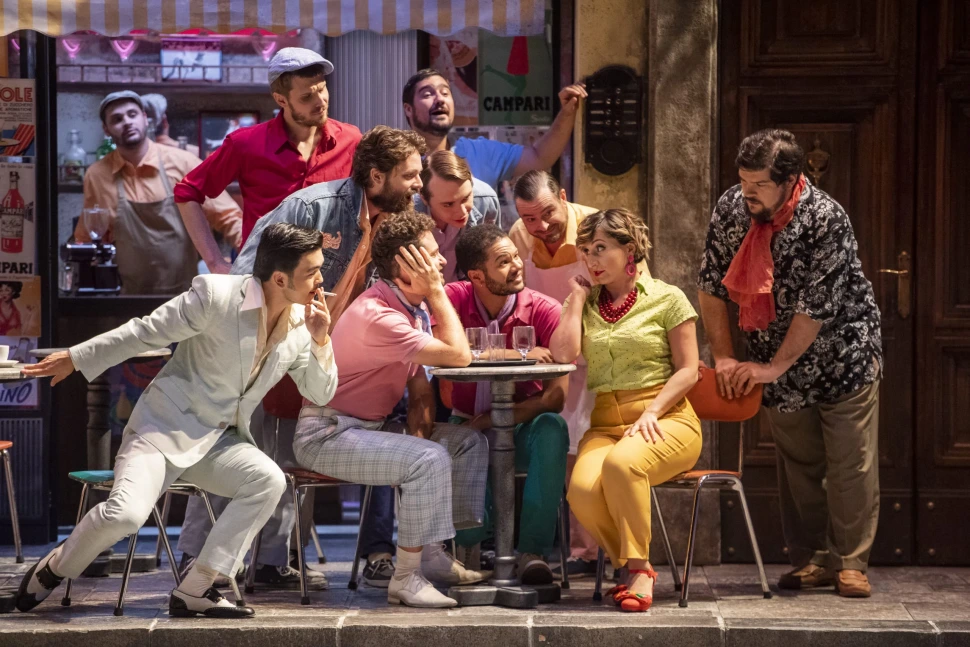
“Dans le rôle du poète Prosdocimo, qui s’inspire de la vie quotidienne des personnages pour écrire sa prochaine pièce, Mikhail Timoshenko fait forte impression avec son indéniable présence scénique et son timbre bien projeté...”
https://www.concertonet.com/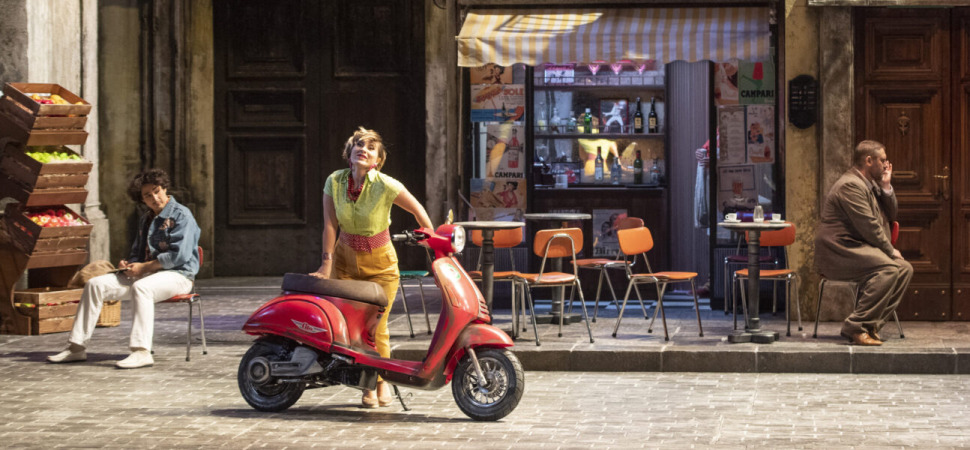
“Vocalement, la distribution est couronnée par un trio de barytons sensationnels, en premier lieu Mikhail Timoshenko dans le rôle dru poète Prosdocimo. Voix souple et bien projetée, timbre glorieux, le jeune baryton russe séduit par sa présence charismatique...”
https://www.letemps.ch/“Der Russe Mikhail Timoshenko als Dichter Prosdocimo ist in der Aufführung omnipräsent. Mit seinem Schreibblock und Stift ausgerüstet sucht er nach einem neuen Stoff für sein neues Stück. Die Angst kein neues Stück entwerfen zu können ist unbegründet, denn am Ende findet er eine passende Geschichte. Wie er mit seinem kernigen Bass diese Rolle ausfüllt, ist sehr beeindruckend.”
https://onlinemerker.com/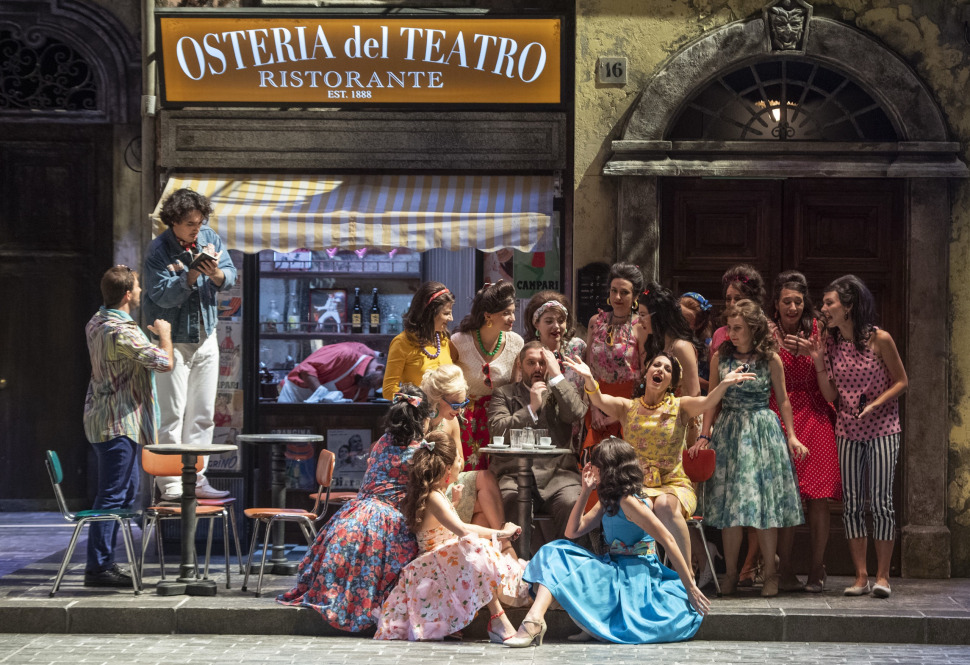
“Mikhail Timoshenko, le Poète (en somme le Don Alfonso de l’aventure), dont le solide timbre de baryton et d’emblée une manière de désinvolture, la présence en scène et des récitatifs théâtralement justes convainquent. ..”
https://www.forumopera.com/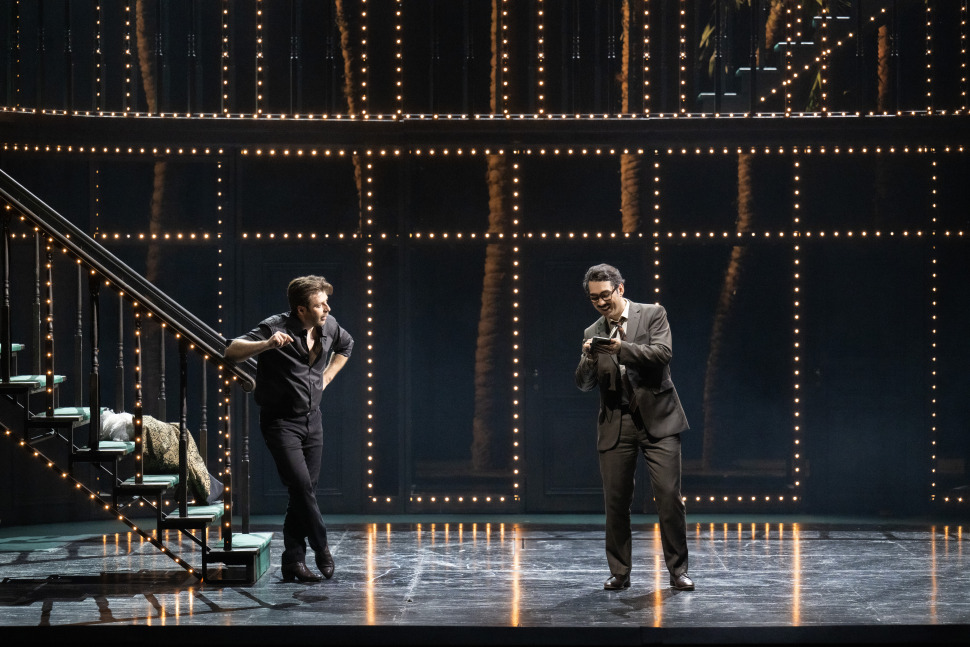
“Nor is it an amazing cast, though perfectly serviceable...Mikhail Timoshenko’s hangdog Leporello starts well and brings the only comedy to the stage...”
https://www.gramophone.co.uk/“A new name to watch is the young Russian bass-baritone Mikhail Timoshenko as Don Giovanni’s sidekick, Leporello, got up as a seedy, middle-aged Reginald Perrin. He might not steal the girls with his tweedy appearance, but with that voice – lyrical, rich, full of beauty – he could have anyone he fancies...”
https://www.theguardian.com/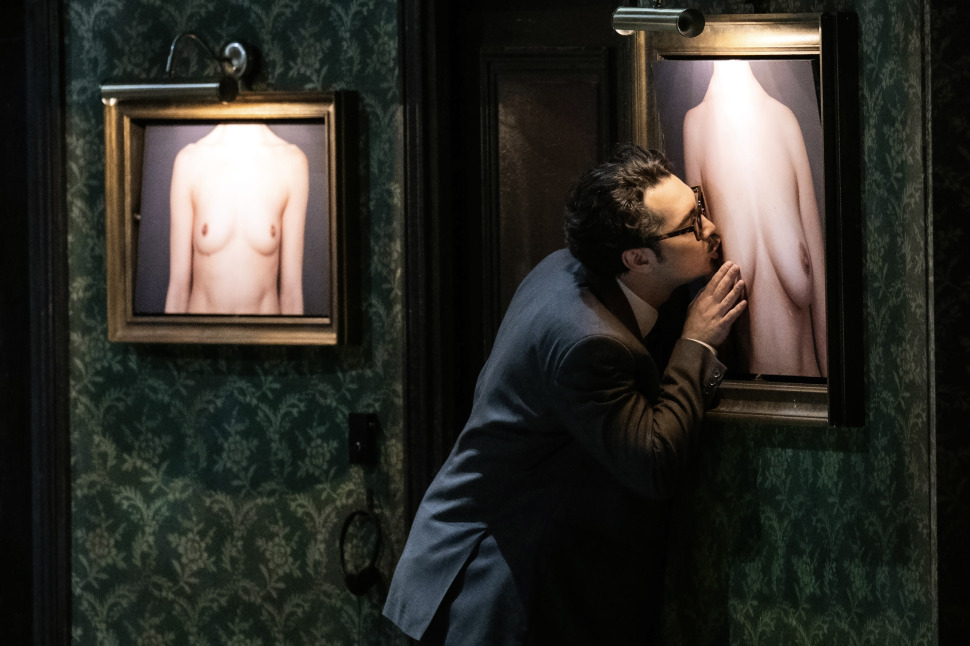
“Rogister allowed the singers ample space, and the cast, largely Eastern European, were terrific...A manservant Leporello, in jacket and tie, Mikhail Timoshenko sang clearly, exhibiting a sense of comedic irony that enhanced the drama...”
https://www.thearticle.com/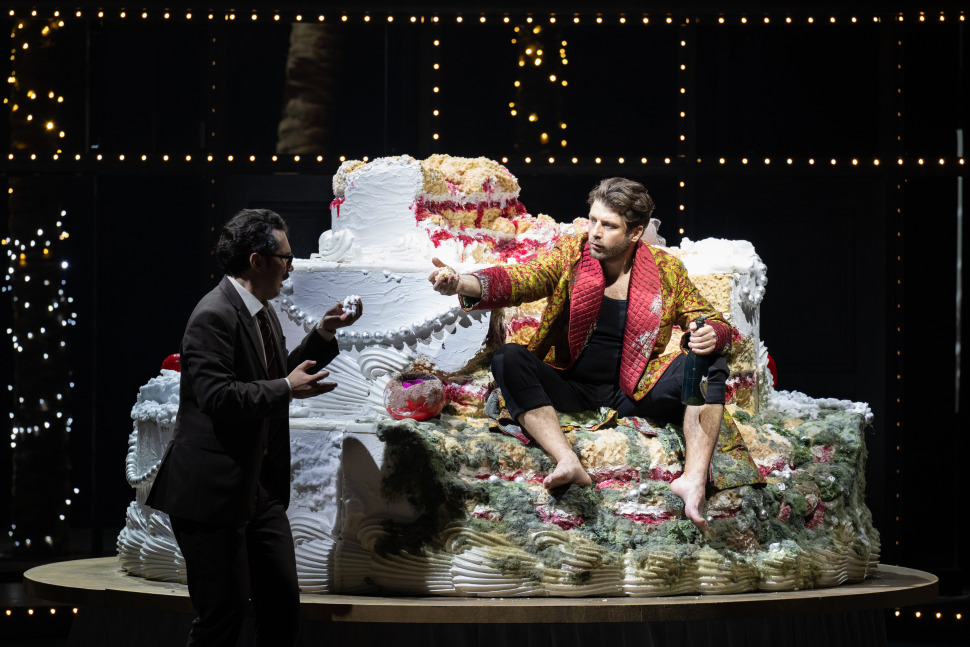
“Is Leporello the exception? Dressed like an accountant, the Don’s servant is Clément’s focal point, the opera viewed through his lens. The scales seem to fall from his eyes during the Catalogue Aria, where his statistical analysis of his master’s “conquests” repulses him. When Giovanni’s denouement arrives, he is hounded by a chorus of Leporello clones before being dragged down to hell...Mikhail Timoshenko was an extremely likeable Leporello, his bass-baritone firm and playing up to the comedic pratfalls well...”
https://bachtrack.com/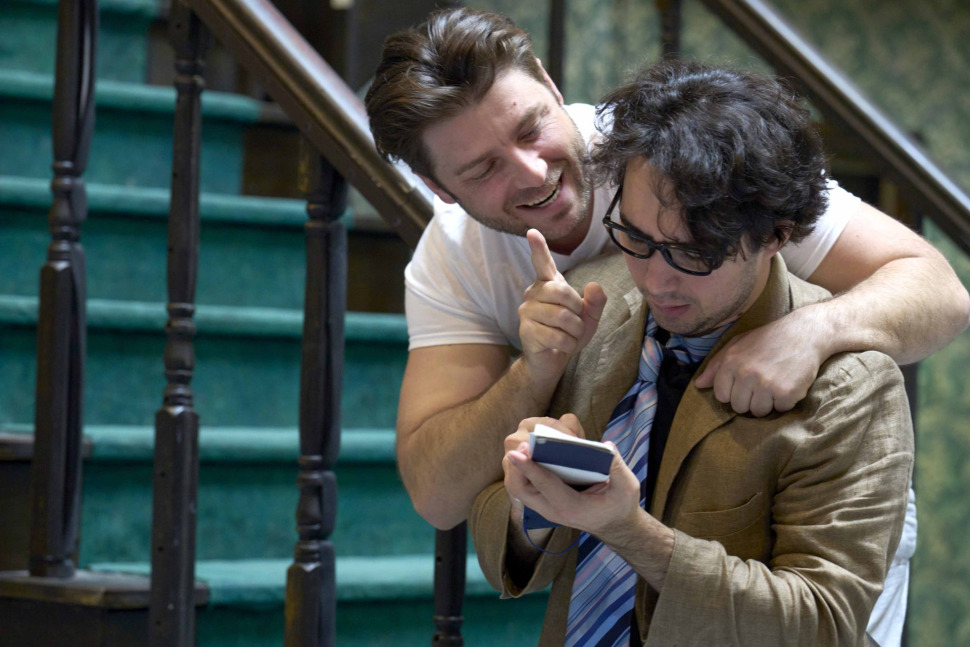
“Mikhail Timoshenko entwickelt aber derart viel Spielwitz und singt so gut, dass es eine Freude ist, ihm zuzusehen!...”
https://www.kn-online.de/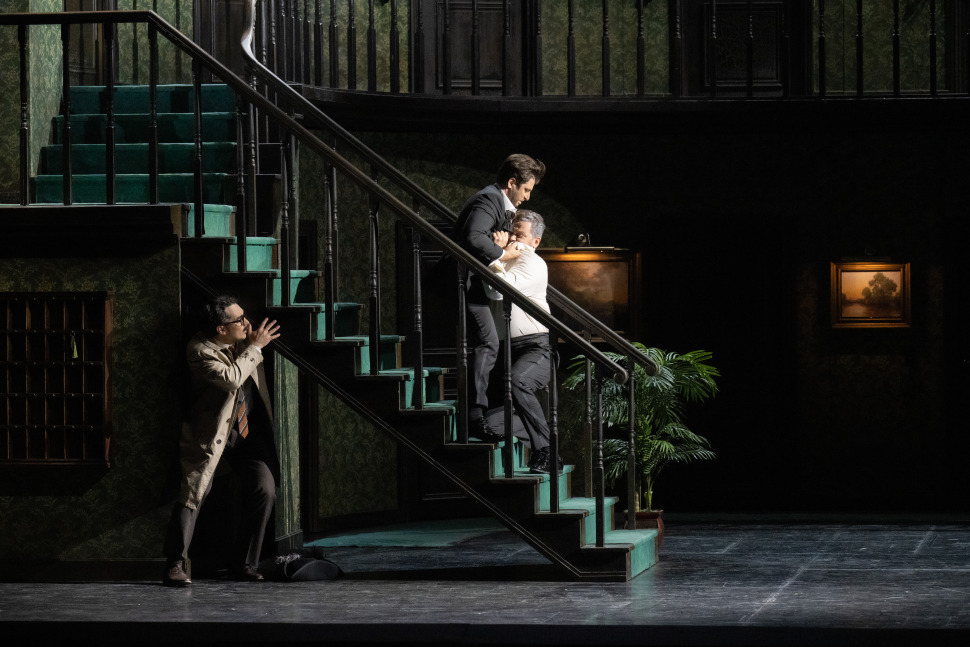
“Excellent rising stars breathe fresh life into Mozart’s opera, but the staging, from a giant cake to a strange illumination, is de trop...In characterisation he is upstaged by Mikhail Timoshenko's witty and clever Leporello, an awkward, servile chap in a raincoat, crisply and precisely sung...”
https://www.telegraph.co.uk/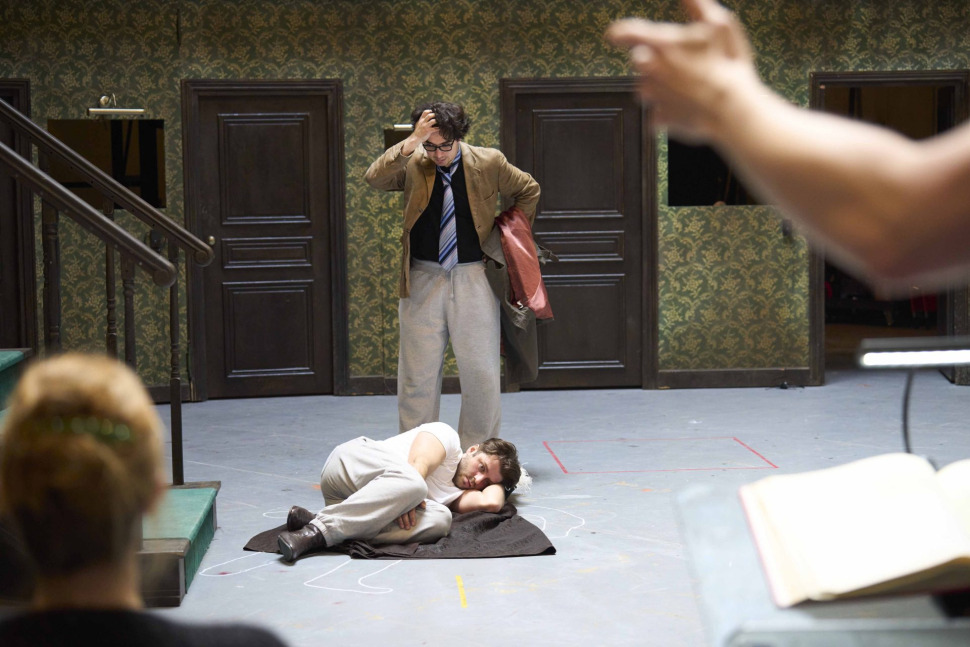
“Is Clément asking us to view things through the party-goer’s eyes, or through Leporello’s spectacles?...Mikhail Timoshenko’s Leporello grew on me, just as he grew into the comedic drollery of the role in Act 2. The Russian baritone sang with a suavity and lovely legato line...”
https://operatoday.com/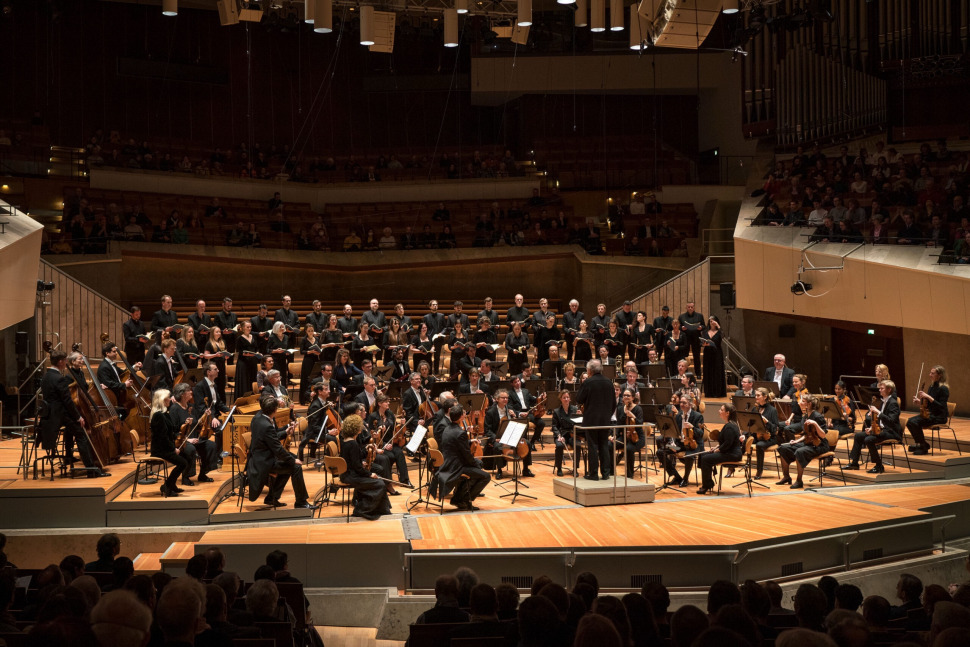
“Philippe Herreweghe conducts two Mozart masterpieces in Berlin. The great Flemish period-instrument specialist brings his Collegium Vocale Ghent to the Berlin Philharmonie to perform Mozart's 'Great' Mass in C minor. The brilliant soprano Katharina Konradi gets to sing the sublime 'Et incarnatus est,' written for Mozart's wife Constanze and the choir shows off Mozart's new-found interest in the music of JS Bach in the fugues and other contrapuntal devices of the double choruses. Before this, the Berlin Symphony Radio Orchestra plays Mozart's stupendous final symphony, with its exhilarating fugal finale. Presented by Fiona Talkington...”
https://www.bbc.co.uk/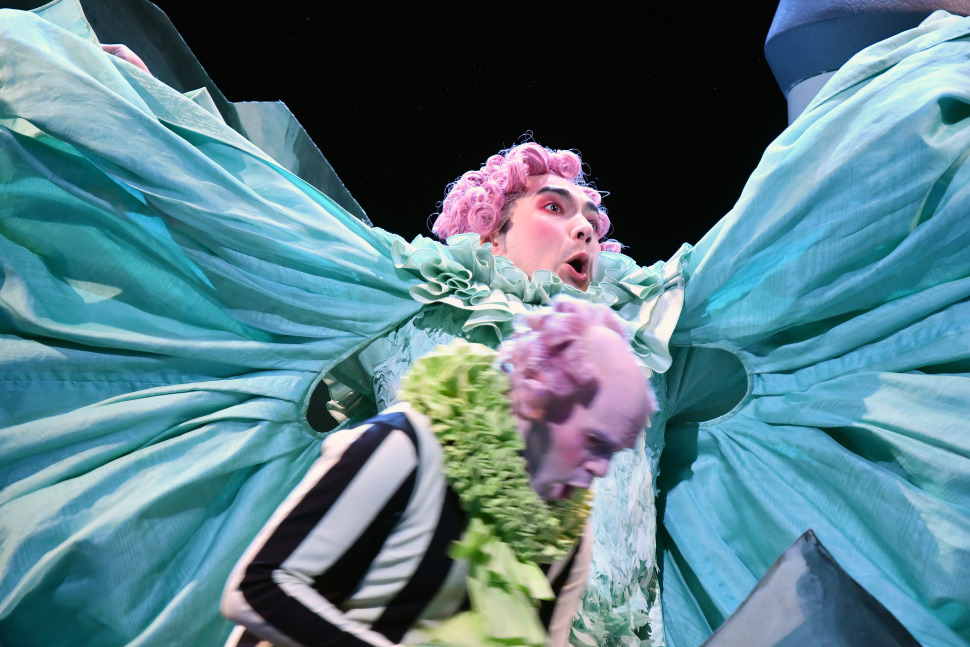
“Conçue pour capter l’attention d’un très jeune public, cette mise en scène – coproduite par l’Opéra Orchestre National Montpellier et l’Opéra National de Lorraine, à Nancy, où elle a vu le jour, en décembre 2021, avec un chef et une distribution différents (voir O. M. n° 179 p. 50 de février 2022) –, d’une esthétique multicolore, à mi-chemin entre un dessin animé de Walt Disney et un coffret de figurines Polly Pocket, charme à sa manière...Dans son sillage, le Papageno de Mikhail Timoshenko ne démérite pas: le baryton russe s'illustre tout de suite, avec humour et appétence, sur «Der Vogelfänger bin ich ja »...”
https://operamag.com/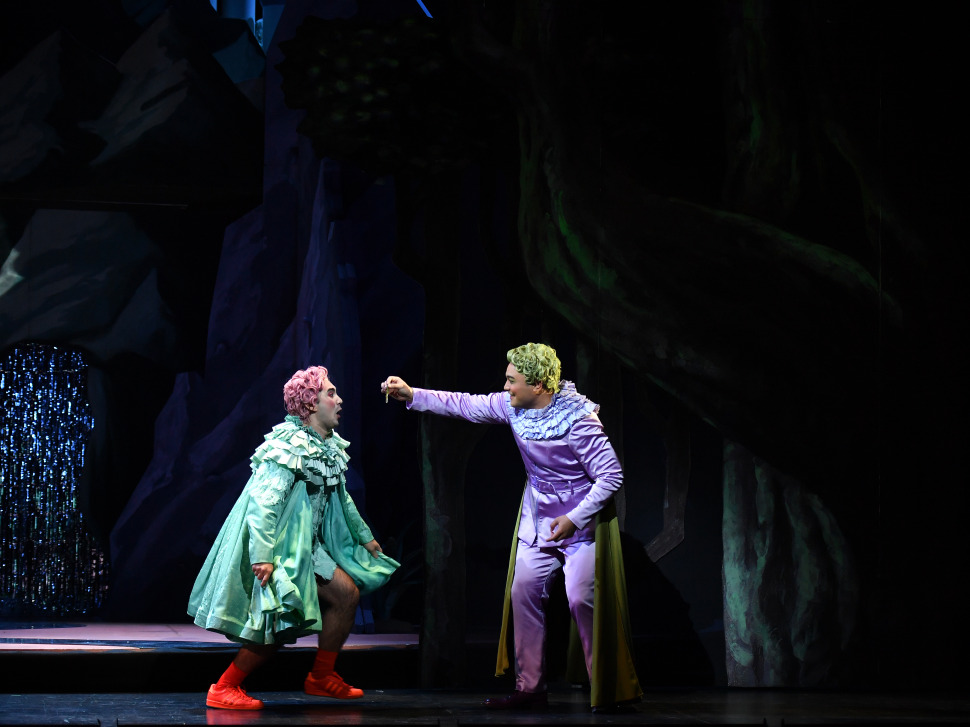
“Son complice, l’inénarrable Papageno se déplace comme un dindon et parle comme Forrest Gump : ce serait un brin lassant si Mikhaïl Timoshenko n’avait pas aussi une voix de baryton claire, précise, dont la puissante musicalité résiste à toutes les gesticulations...”
https://www.lokko.fr/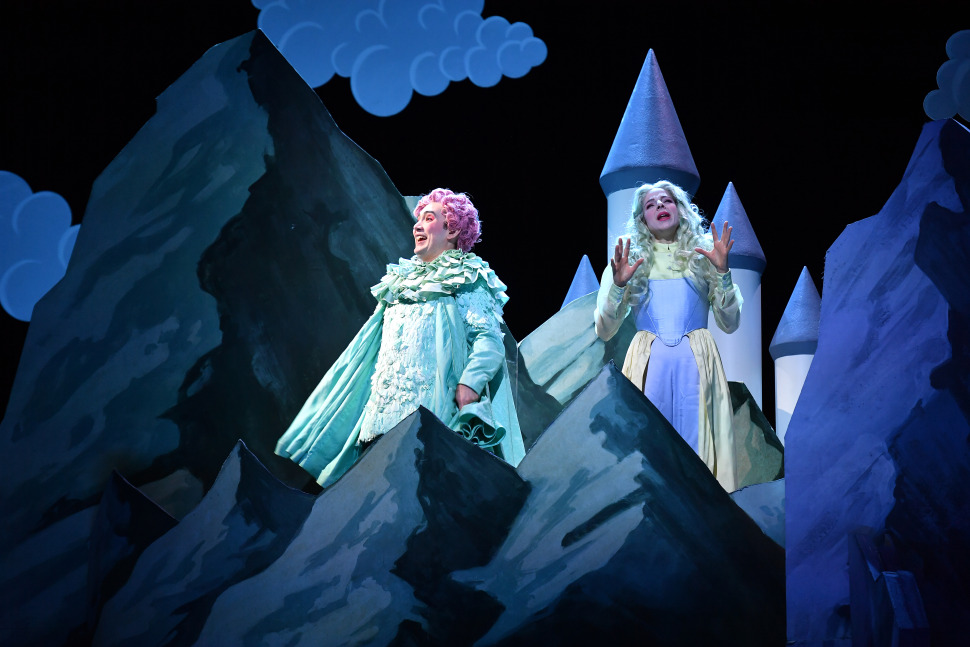
“L’ovation finale faite au baryton basse Mikhail Timoshenko (prise de rôle en Papageno) est un juste retour de son investissement aussi généreux que naturel en volatile vert aux pattes rouges, toujours prêt à glisser quelques gags échappés d’un cartoon. Ayant terminé sa formation en Allemagne (Musikhochschule de Weimar), son allemand chanté s’assouplit dans tout phrasé, populaire dès le Lied d’entrée, éloquent dans les onomatopées « hum, hum » de sa punition, mozartien dans le duo avec Pamina (« Bei Männern », I) et si émouvant dans l’air désemparé du finale du 2e acte...”
https://www.premiereloge-opera.com/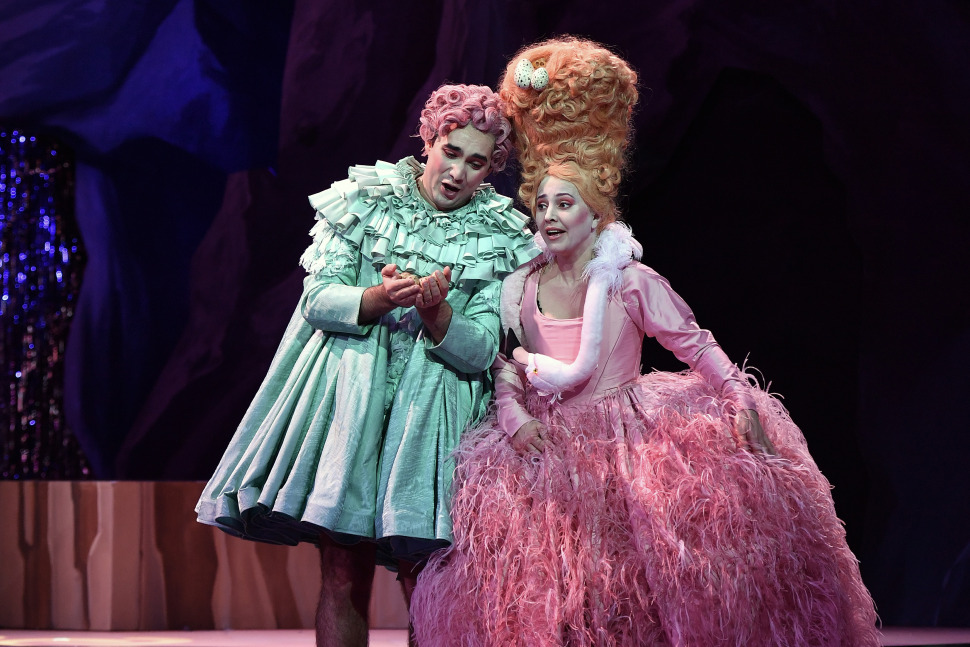
“Reprise de la production donnée en décembre 2021 à Nancy dans une distribution totalement remaniée, cette Flûte enchantée concilie habilement spectacle pour enfants et parcours initiatique...Le ramage de Mikhail Timoshenko, dans le rôle de Papageno, est à la hauteur de son plumage, et ses postures comiques sont très réussies.”
https://www.resmusica.com/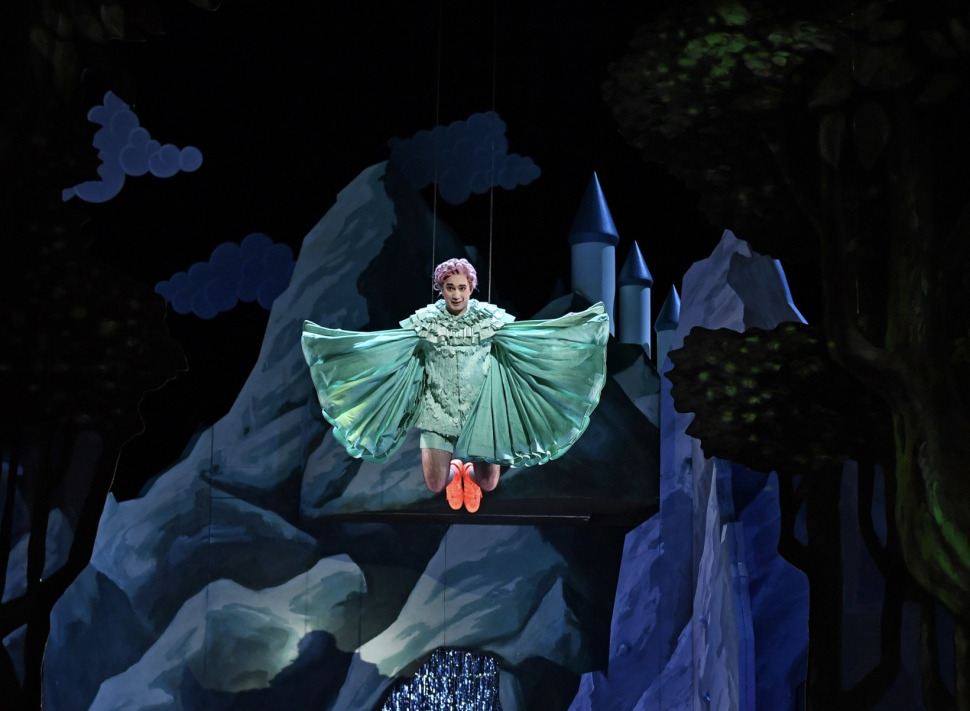
“On est particulièrement heureux d’entendre le baryton Mikhail Timoshenko en Papageno, un rôle de première importance où il se révèle totalement. Le timbre est d’une grande noblesse, homogène sur toute la tessiture, l’acteur est comme un poisson dans l’eau, drôle mais sans trop en faire et touchant également lorsqu’il se prépare à son suicide. Il forme un joli duo avec sa Papagena Norma Nahoun, qui a peu à chanter mais sait propulser ses œufs depuis le nid posé sur sa tête, quand les deux envisagent les enfants à naître...”
https://bachtrack.com/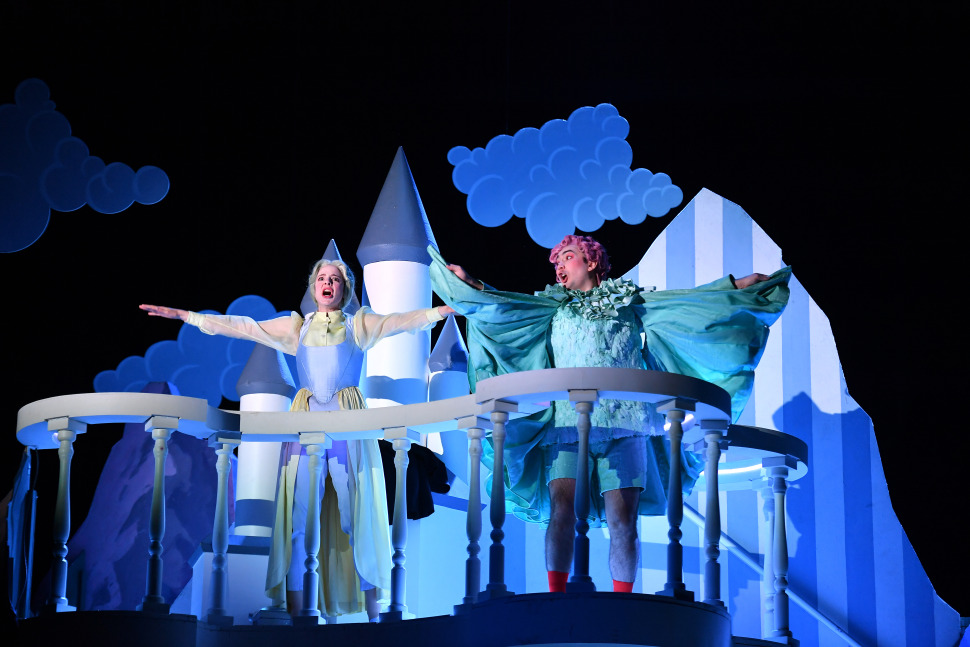
“Mikhail Timoshenko est son oiseleur tendre et juvénile, clair de timbre et de diction. D’autres animaux cocasses hantent la scène, une méduse en robe à panier, un morse, un flamant rose, un sphinx de nuit, une crevette et un mouton, chacun allumant des étincelles chez les nombreux enfants venus en ce soir de première...”
https://www.concertclassic.com/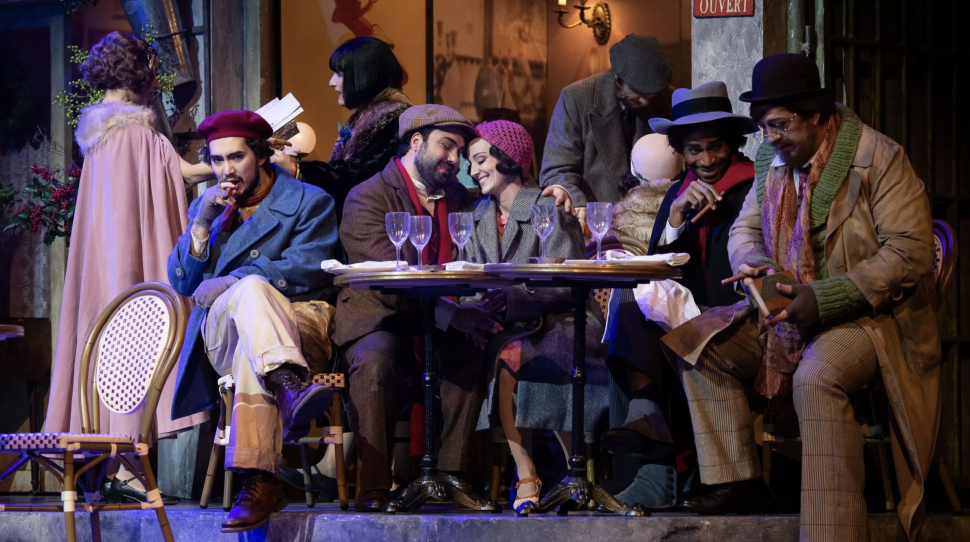
“Le baryton Mikhail Timoshenko donne une grande épaisseur au rôle de Marcello, par son constant engagement scénique et vocal. La voix est très sonore, particulièrement chaude, avec un phrasé, une diction et un legato conférant à son personnage une dimension humaine bienvenue. Les couleurs sont au rendez-vous des diverses situations, avec un surcroit d’émotion et de lyrisme pour le duo avec Mimi. Il est aussi touchant dans l’incarnation de son amour pour Musetta, avec sa jalousie un peu gauche complétant sa forte présence scénique...”
https://www.olyrix.com/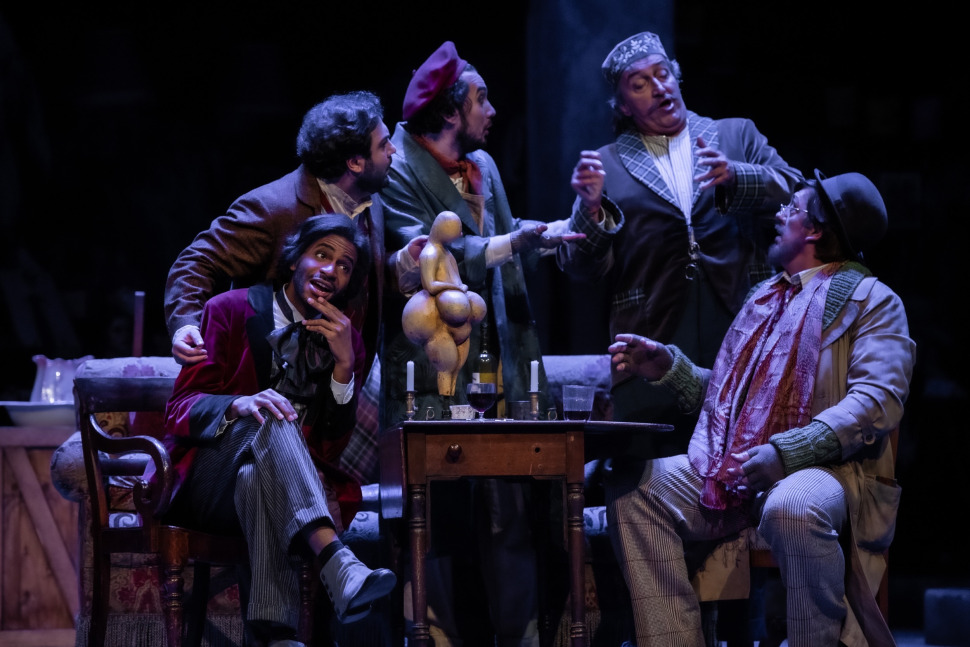
“Mikhail Timoshenko faisait également parti de ceux que je voulais entendre et en Marcello, il trouve là un personnage à sa mesure théâtrale comme vocale, certes il n’a pas d’air à lui, mais quels duos magnifiques il a!!! Quelle belle expressivité également!!! Son duo avec Mimi à la Barrière d’Enfer est de ce point de vu phénoménal! Son jeu avec Musetta est également au delà de toute éloge, tout semble couler de source dans son interprétation et son jeu…”
https://carayonk.wordpress.com/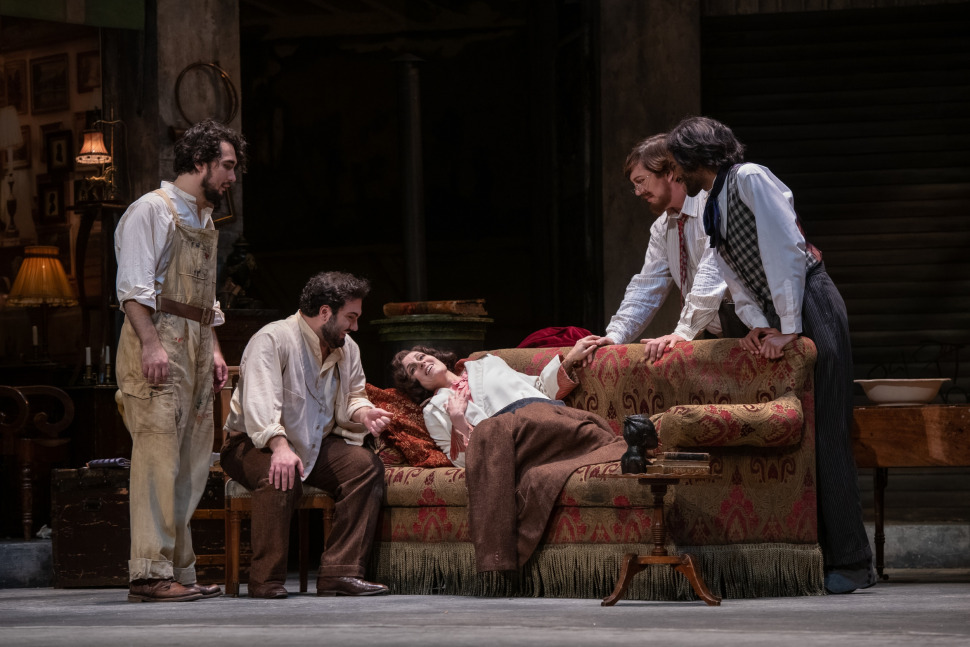
“Mikhail Timoshenko (Marcello) recueille à juste titre des applaudissements nourris : baryton élégant, projection, charme, tout y est...”
https://www.forumopera.com/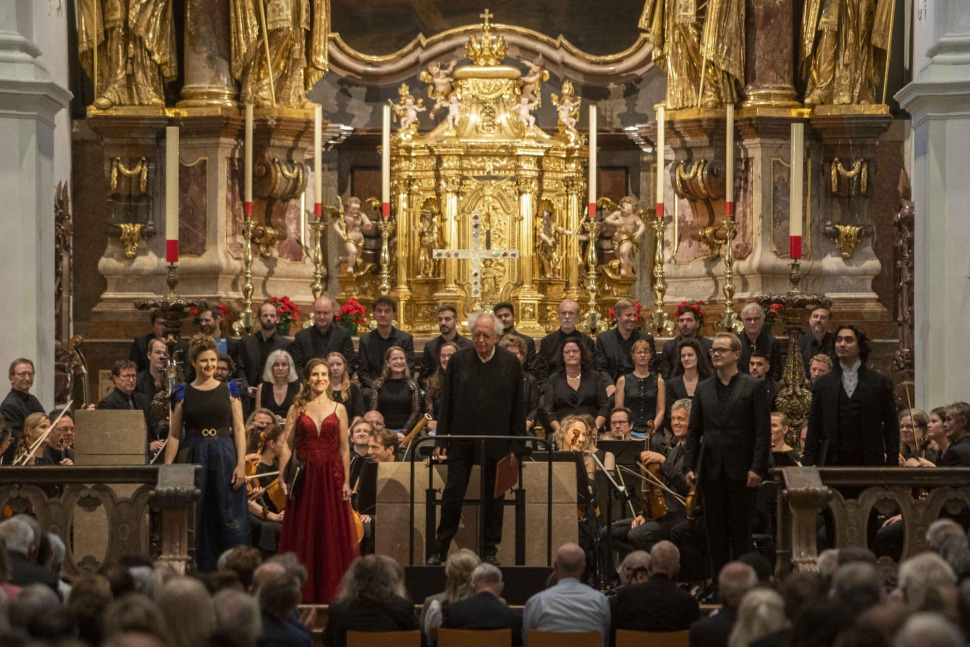
“The bass has precious little to do in this work. He joins the others for “Benedictus qui venit,” and that’s it. I think of something that Michelle DeYoung, the American mezzo, once told me. I had observed to her, “Frankly, I can barely hear the mezzo-soprano in the Ninth.” (Beethoven’s Ninth Symphony, whose concluding movement, the choral movement, has a quartet of soloists.) She said, “You know what I tell singers who do that part? ‘Wear a pretty dress.’” Our bass, Mikhail Timoshenko, a Russian, did not wear a pretty dress. He wore a good tux, however (as I recall), and he showed a beautiful voice, in his moment in the sun — or that shared moment. I might mention too that “our bass,” Timoshenko, is a baritone. But I am talking trivialities, and the important thing to say is that, in Salzburg this year, we had a strong, smart, uplifting performance of the C Minor Mass. And one left the church that way: uplifted...”
https://www.nationalreview.com/“Le baryton Mikhail Timoshenko joue le rôle de Galitzin, l’ambassadeur de Russie à Vienne et grand mécène de Mozart : ses interventions musicales ne sont pas très nombreuses en solo, mais plutôt en formation de quatuor avec les trois autres chanteurs. Néanmoins, il restitue un timbre riche et large avec une musicalité rythmée et une ligne vocale bien articulée...”
https://www.olyrix.com/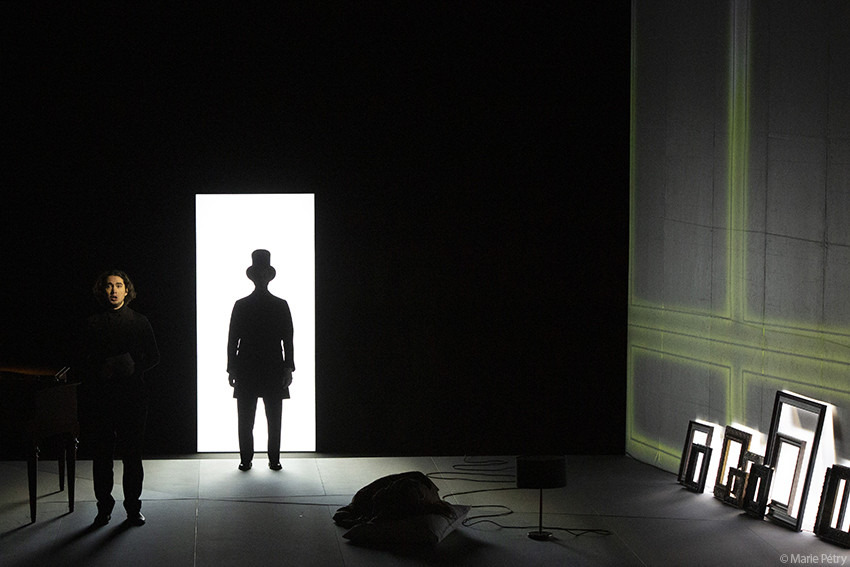
“L’Albert de Mikhail Timoshenko, dont on salue la qualité de la prononciation, chante fort bien. Son air du I (« Quelle prière de reconnaissance ») est interprété avec la pudeur et la musicalité d’une mélodie...”
https://operamag.com/“Die undankbarste Rolle des Abends ist der Albert von Mikhail Timoshenko. Seine Frau liebt ihn nicht und er fühlt nur hass für ihre Nähe zu Werther, macht aus ihm den unsympathischen Darsteller des Abends. Gesanglich hingegen verfügt er über eine gut geführte grosse Stimme...”
https://onlinemerker.com/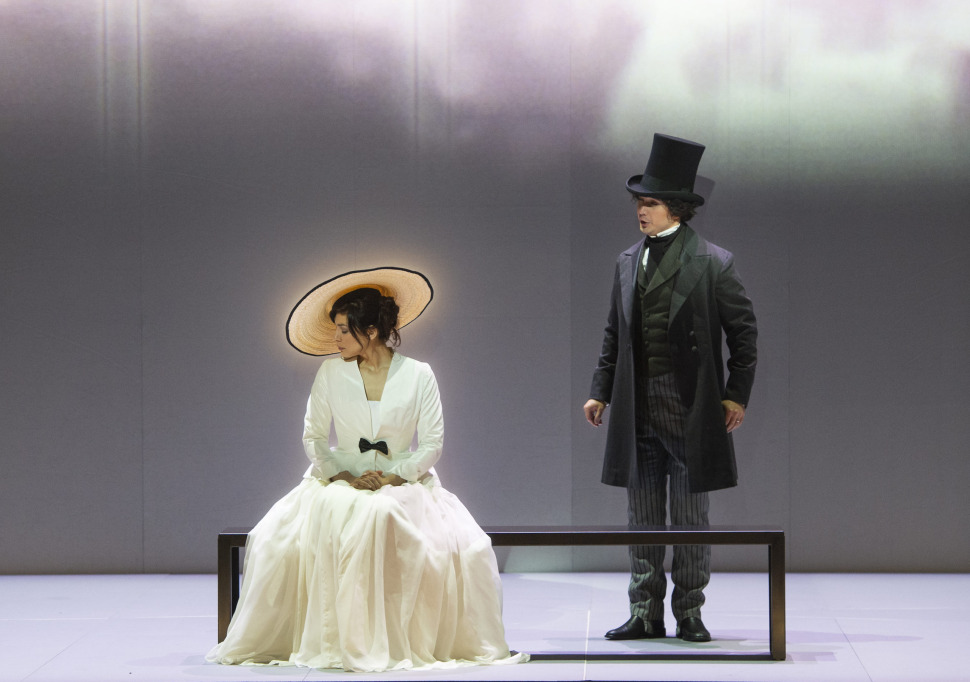
“Mais on aimera le cantabile d’Albert sur « Voici trois mois que nous sommes unis… », sa noblesse sur « Au bonheur dont mon âme est pleine… » et la sincérité de la réponse de Werther « Mon cœur ne souffre plus de son rêve oublié » (menteur !)...”
https://www.forumopera.com/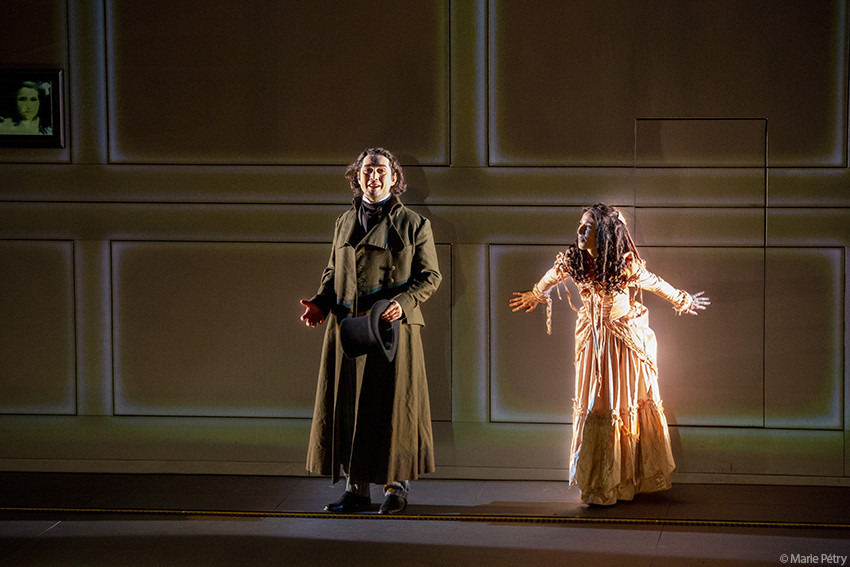
“Le jeune baryton russe Mikhail Timoshenko dessine un Albert dignement retenu mais qui se veut rassurant par son omniprésence protectrice, dimension innovante dans un rôle d’habitude sacrifié...”
https://www.crescendo-magazine.be/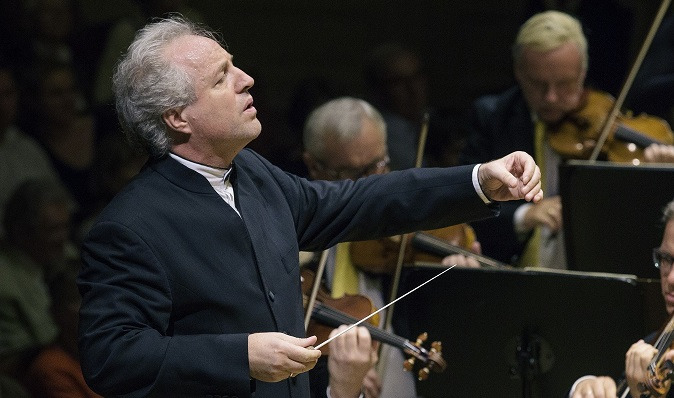
“Mozart, Haydn, and Gregorian Chant: Nikola Hillebrand (soprano), Marie Henriette Reinhold (contralto), Sebastian Kohlhepp (tenor), Mikhail Timoshenko (bass), Ulrich Tukur (reciter), Dresden Chamber Choir (chorus director: Tobias Mäthger), Dresden Kreuzchor (chorus director: Karl Pohlandt), Sächsische Staatskapelle Dresden / Manfred Honeck (conductor)...Clean, rich performances from bass Mikhail Timoshenko and trombonist Nicolas Naudot opened the ‘Tuba mirum’, were answered in vividly human fashion by tenor Sebastian Kohlhepp...”
https://seenandheard-international.com/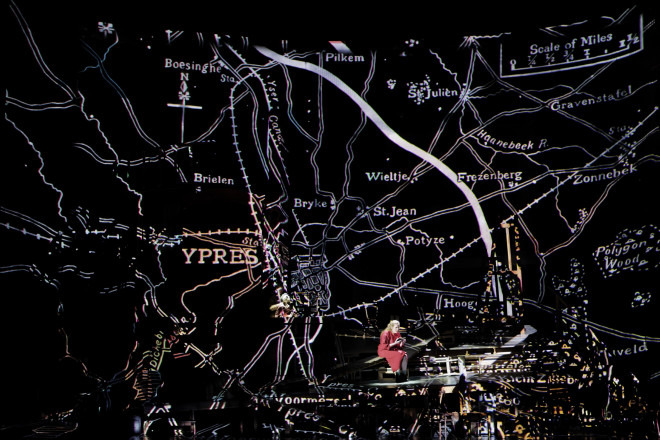
“Les deux ouvriers sont eux aussi confiés à des anciens de l'Académie. Mikhail Timoshenko impose son chant grave et phrasé très tonique et projeté avec grande agilité de phrasé et de lignes...”
https://www.olyrix.com/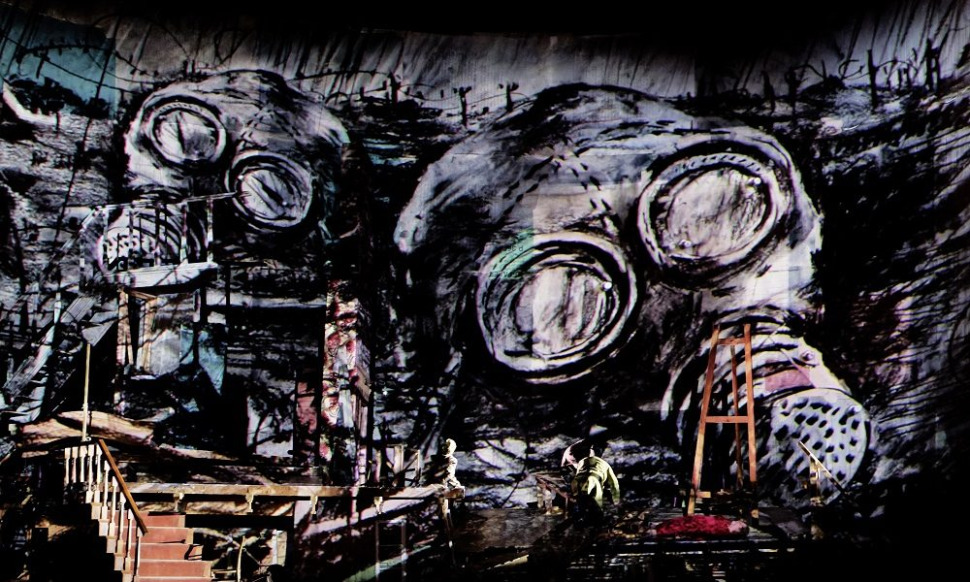
“Mikhail Timoshenko et Tobias Westman illuminent la scène de groupe du deuxième acte : fraicheur du timbre, qualités expressives… Leur numéro juchés sur l’armoire est parfait d’ironie grinçante...”
https://www.forumopera.com/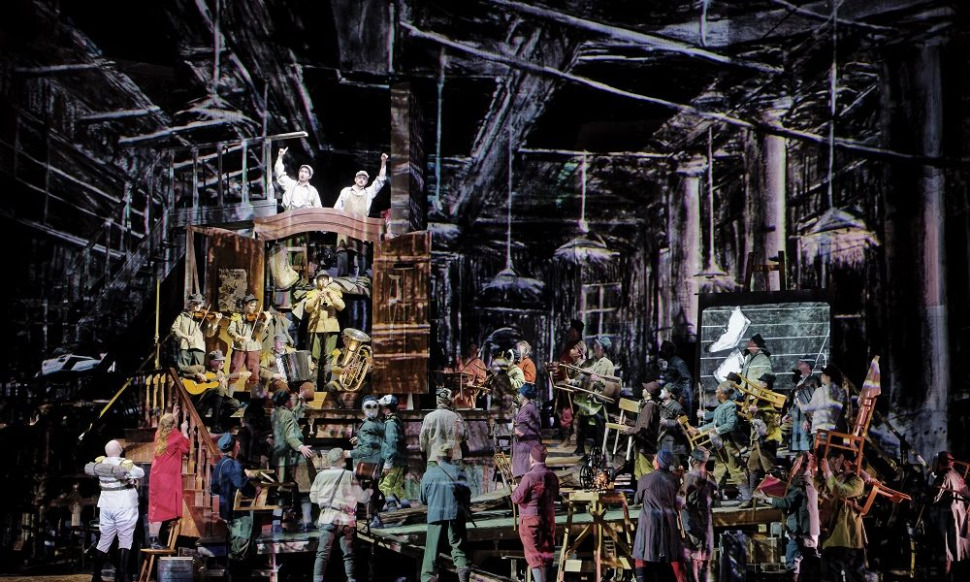
“Parmi les petits rôles, c’est Mikhail Timoshenko qui tire le mieux son épingle du jeu à travers une caractérisation particulièrement aboutie d’un des deux artisans, que ce soit pour ses nuances et sa brillance vocale ou bien sa fermeté et son solide jeu d’une grande vivacité. Ce jeune chanteur en veut et prouve qu’il peut se donner à fond même pour un rôle assez bref...”
https://fomalhaut.over-blog.org/“D’Onéguine, Mikhaïl Timoshenko a la voix et l’allure : timbre glorieux de baryton-basse, crinière romantique, tenue de concert associant redingote et gilet noirs à une chemise blanche qui semble appeler le jabot, on l’imagine déjà dans le rôle du héros de Pouchkine, à moins qu’il ne campe Eletski dans La Dame de pique, ou le prince André dans Guerre et paix. Pourtant, le concert s’ouvre comme il se fermera, sur le personnage de Don Quichotte, d’abord vu par Ravel. Et là, dans les premières minutes, on se dit d’abord qu’un petit effort s’impose encore sur le plan de la diction du français : o trop systématiquement ouverts, nasales pas toujours exactes, quelques e muets surprenants… Cela sonne un peu trop « basse russe » ! Et puis il manque peut-être aussi un soupçon de second degré, dont la pianiste Elitsa Desseva, elle, semble avoir à revendre, tant elle paraît s’être assimilé l’idiome ravélien. Cette impression se confirme avec Banalités de Poulenc, recueil dans lequel on entend rarement des voix d’une étoffe aussi généreuse : c’est un vrai plaisir que d’écouter « Hôtel » si somptueusement servi, ou « Voyage à Paris » pour une fois repris aux sopranos...”
https://www.premiereloge-opera.com/“Mikhail Timoshenko, lui aussi de retour (en Masetto), lui répond d’une voix richement parée de nuances rondes et variées. Ses duos avec Zerlina sont marqués par l'affinité et le baryton-basse sait trouver l’équilibre pour présenter un caractère drôle et dynamique, sans trop appuyer l’aspect grotesque du personnage...”
https://www.olyrix.com/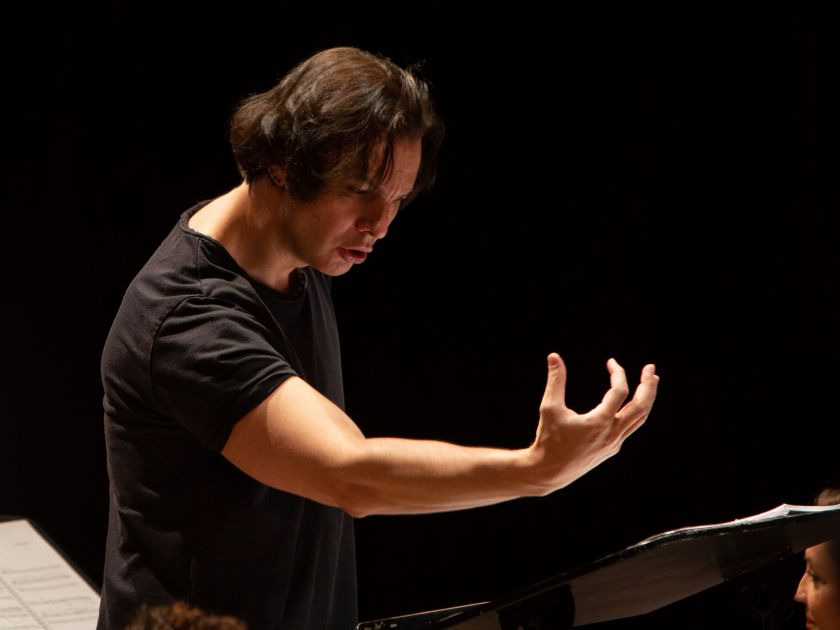
“Der Dirigent Teodor Currentzis richtet seine Interpretationssicht auf Innerlichkeit aus. Das kann auch gehörig schief gehen wie jetzt im Festspielhaus Baden-Baden. Auf dem Pult Gabriel Faurés „Requiem“, ein Superlativ in Sachen expressiv innerlich schwebender Totenmesse. Durchgängig weiche Chorstimmen-Klangflächen, ein wahrhaft sanft wiegendes Sanctus mit steter Harfen-Arpeggien-Begleitung, kein gewaltig bedrohliches Dies Irae, dafür als Bonus ein „In Paradisum“ als Ausdruck glücklicher Befreiung. So sah der sich zu keinem Glauben bekennende Fauré den Tod und komponierte ein überraschend lyrisches Requiem. Faurés Requiem-Soundtrack wirkt zu diesen klischeebelasteten und drastisch direkten Bildern unerwartet fragil. Currentzis Forderung nach bedingungsloser Innerlichkeit grenzt den Gestaltungsraum von Fanie Antonelou (Sopran) und Mikhail Timoshenko (Bassbariton) beim Aussingen ihrer weichen wie strahlenden Cantilenen auf ein nahezu unsingbares Minimum ein. Als ließe sich das Ensemble in diese Enge nicht treiben, singt der Jugendchor „Cantus Juvenum Karlsruhe“ erfrischend natürlich im Einklang mit dem Ensemble musicAeterna aus Chor und Orchester. Dieses Ensemble beherrscht die Kunst subtiler Klangmagie und setzt ein Musikerlebnis frei, das tief berührt...”
https://magazin.klassik.com/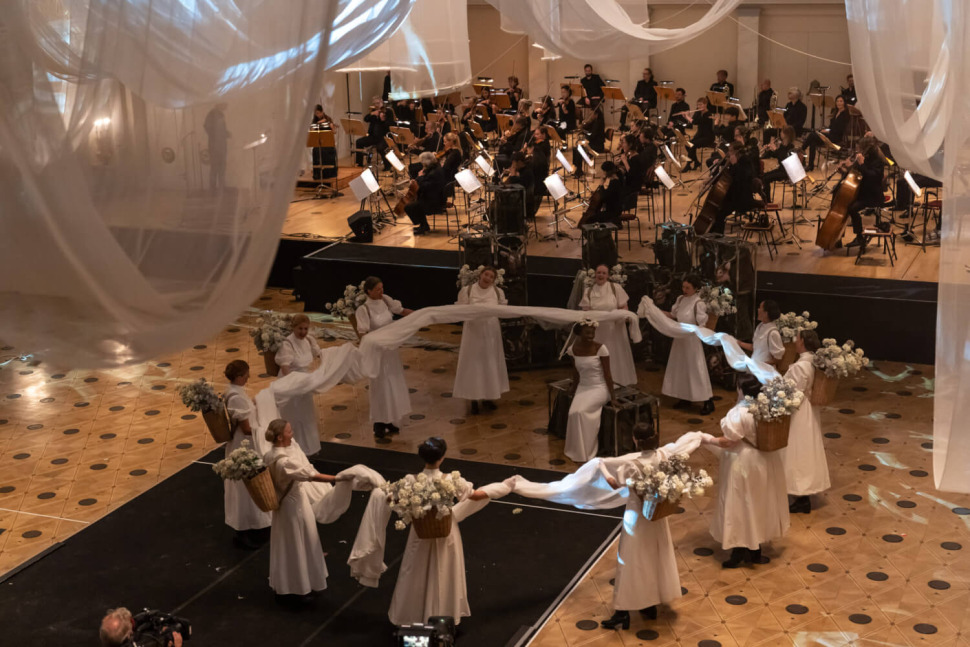
“Quella di Carlus Padrissa e de La Fura dels Baus, autori della messa in scena, è una lettura lineare e narrativa e sfrutta i tipici elementi della compagnia catalana già fin dall’ouverture dove i corpi degli acrobati formano un cervo al galoppo con un uomo legato sopra. Un cacciatore abbatte l’animale e libera l’uomo: questa era la punizione dei bracconieri, ci racconterà Kuno...Franz Hawlata (Kuno) utilizza al meglio mezzi vocali purtroppo usurati mentre Mikhail Timoshenko è un Ottokar vocalmente glorioso...”
https://operaincasa.com/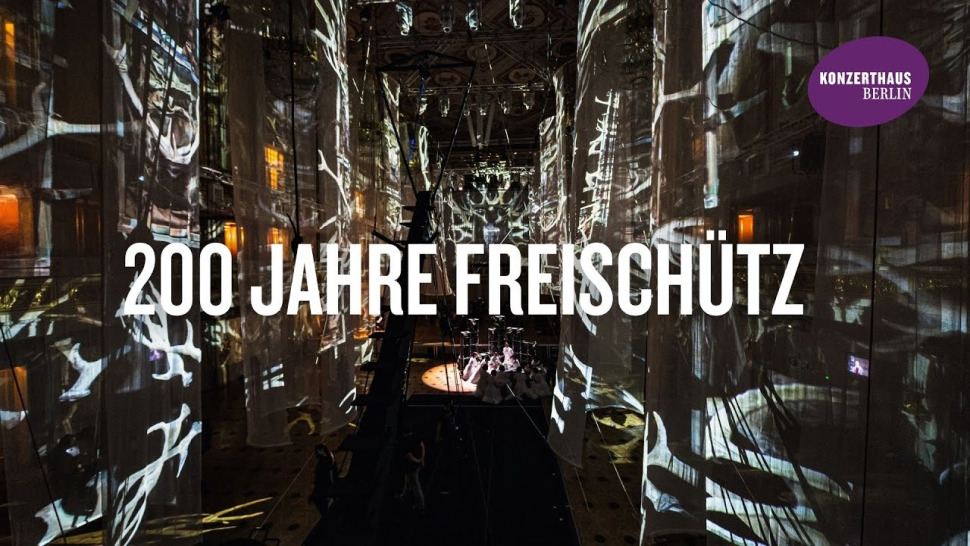
“Il y a 200 ans, les berlinois en délire découvraient un opéra fantastique qui allait devenir une œuvre phare du répertoire romantique. En 2021, presque rien ne pouvait empêcher la fête de se tenir surtout doublée d’un autre anniversaire. Explications…”
http://www.classique-c-cool.com/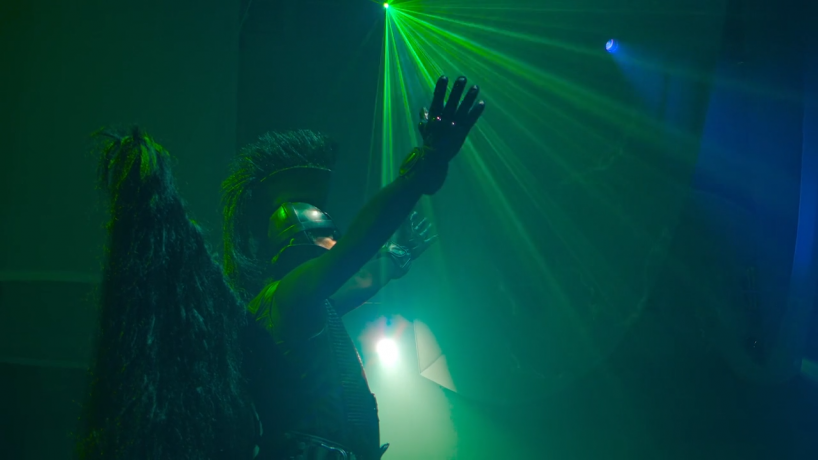
“Eigentlich will nun Fürst Ottokar – hier Mikhail Timoshenko mit langem schwarzen Zopf und klangreichem Bariton – den geständigen Max verurteilen, doch der Eremit – Tijl Faveyts mit Jahres-Stoppelbart und kraftvollem Bass – fordert Milde und ein Probejahr für beide durch Trennung...”
https://onlinemerker.com/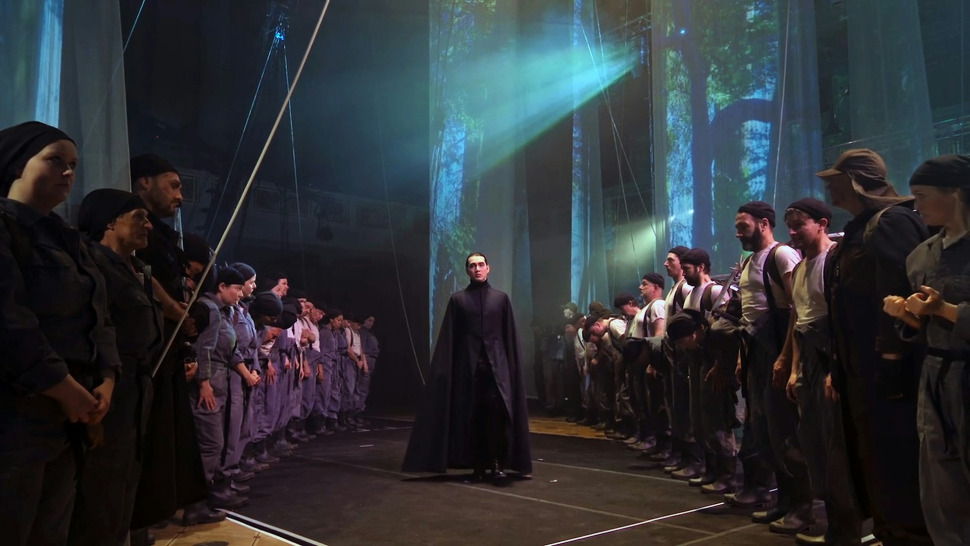
“Carlus Padrissa — Stage director Christoph Eschenbach — conductor Jeanine de Bique — Agathe Anna Prohaska — Ännchen Benjamin Bruns — Max Mikhail Timoshenko — Ottokar La Fura dels Baus — Scenography Esteban Muñoz — Dramaturgy Tamara Joksimovic — Assistant stage designer Hwan Kim — Costume designer Jose Vaaliña — Lighting, video Now is the perfect time to get (re)acquainted with Carl Maria von Weber's spectacular Der Freischütz (The Marksman), recorded here in a production that marked the 200th anniversary of its premiere at the Konzerthaus Berlin on June 18, 1821! Two hundred years later on the same stage, Carlus Padrissa—co-founder of the provocative, visionary theatrical group La Fura dels Baus, brings to vibrant life his vision of this monument of Romantic opera repertoire. To recreate the fantastical atmosphere of the tale, Padrissa strips the splendid Konzerthaus of its orchestra seats to free up a vast space in which the singers and actors can perform freely. He also appeals to Jose Vaaliña's exceptional lighting, rendering his tricks and machinations visible to all. Padrissa's surprising, over-the-top reimagining of Der Freischütz nonetheless remains faithful to the original libretto and its narrative frame: the hunter Max (played by the excellent Benjamin Bruns) must win a well-known shooting contest to win the hand of Agathe (the luminous Jeanine de Bique). A recent string of poor luck, however, leads him to strike a deal with the devil in the hopes of triumphing… A delightfully off-the-wall adventure masterfully conducted by Christoph Eschenbach, the musical director of the Konzerthaus!”
https://www.medici.tv/
“Am 200. Jahrestag der Uraufführung von Carl Maria von Webers „Freischütz“, die am 18. Juni 1821 im Schauspielhaus am Gendarmenmarkt Berlin, dem heutigen Konzerthaus stattfand, inszenierte die katalanische Theatergruppe La Fura dels Baus diese Oper – ganz ohne Zuschauer im Großen Saal des Konzerthauses, aber live übertragen in alle Welt...”
https://www.nmz.de/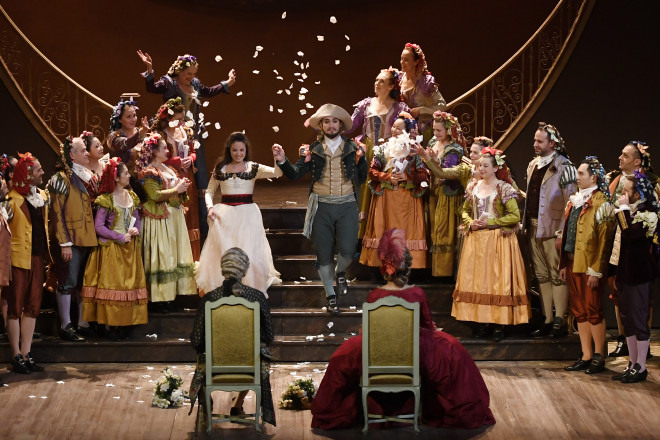
“Les interprètes, ainsi stimulés, ne sont pas en reste : Mikhail Timoshenko est celui qui incarne le mieux l’esprit de l’entreprise. Son Figaro, une prise de rôle, exprime la même prestesse, la même souplesse dans le corps que dans la voix. Quelle aisance...”
https://www.crescendo-magazine.be/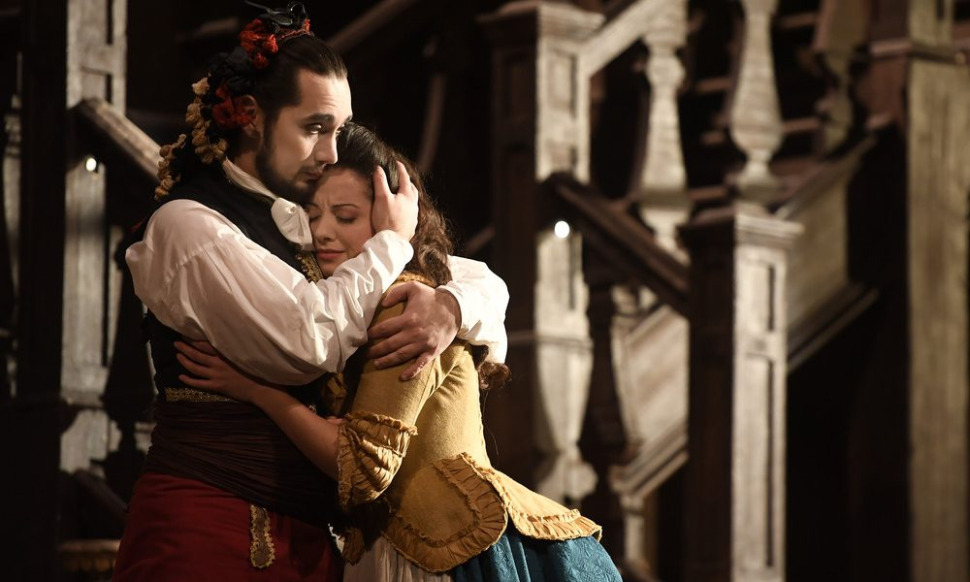
“Avec ces Nozze di Figaro initialement montées par James Gray au Théâtre des Champs-Elysées, nous voilà revenus au volume XVIIIe siècle du Lagarde et Michard, comme si la Comédie-Française continuait à afficher Jean Piat et Geneviève Casile dans Le Mariage de Figaro. Les costumes sont historiques, colorés et très jolis, bien qu’un peu trop riches pour les « contadine poverine » ; les décors sont un peu chichiteux, et la chambre de la comtesse fait carrément Grand-Hôtel de Torremolinos, avec sa mini-terrasse à orangers en pots...Mikhaïl Timoshenko a lui aussi les couleurs idéales de son rôle, même si le grave pourra encore s’affirmer à l’avenir. A son Figaro bourré de qualités vocales et scéniques on devine qu’il pourra bientôt viser plus haut...”
https://www.forumopera.com/“Son fiancé est incarné par Mikhail Timoshenko, lequel vient de faire un séjour remarqué à l’Académie de l’Opéra de Paris. Le timbre est d’une grande beauté, la technique sûre et l’incarnation intelligente. En accord avec la mise en en scène (Figaro est à deux doigts de se suicider après « Aprite un po’ quegli occhi »), il parvient, vocalement, à faire de son air du IV un vrai moment de désespoir plutôt qu’un chant de révolte...”
http://premiere-loge.fr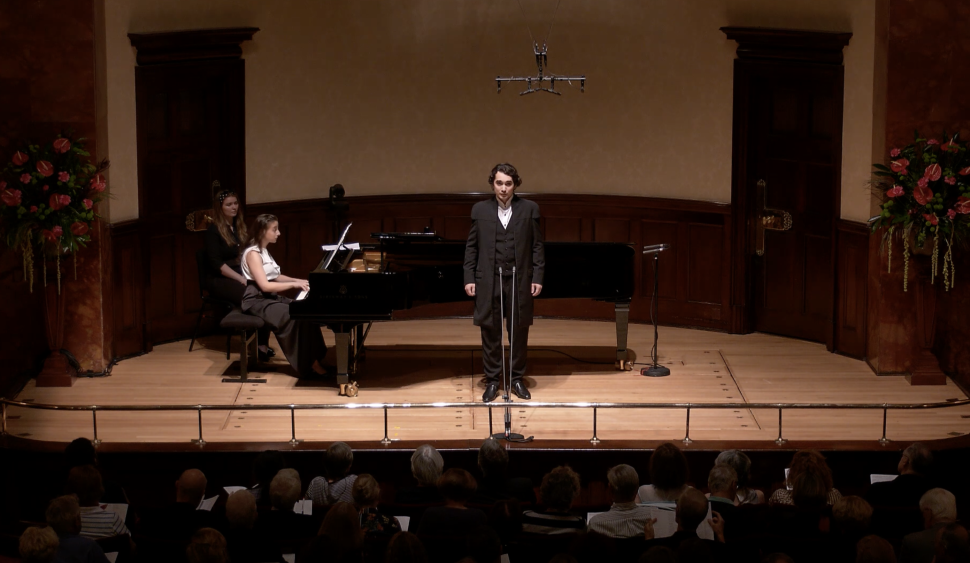
“Mikhail Timoshenko,...with impeccable legato technique, tremendous stylistic versatility, superb command of German, French, English and, one assumes, Russian…and Elitsa Desseva’s beatboxing in Moritz Eggert’s Sprich Sheherazade showcased the kind of modern art song that shows there is life in this form beyond the I-can’t-believe-it’s-not-Britten school of composition.”...”
https://www.thetimes.com/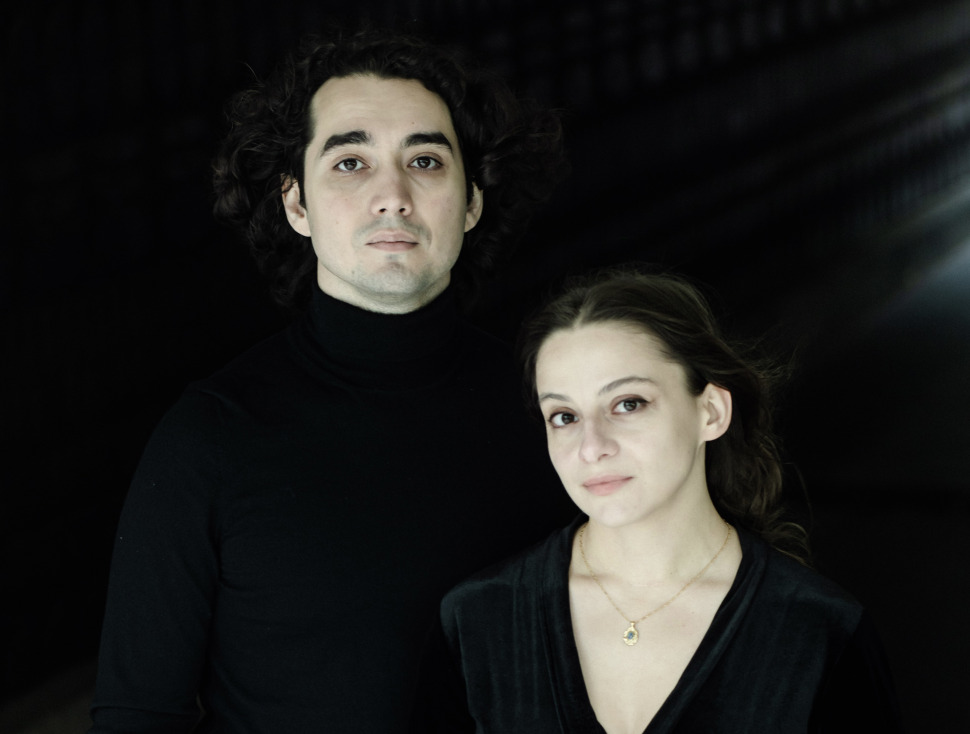
“2018 erhielt dieses Liedduo den ersten Preis beim Liedwettbewerb der Internationalen Hugo-Wolf-Akademie. Eine Hommage an die Geschichte Don Quichottes stand im Mittelpunkt des ereignisreichen Programms. Von Jacques Ibert erklangen zunächst „Chansons de Don Quichotte“, wo Mikhail Timoshenko das voluminöse Ausdrucksvolumen stark betonte. Der Werdegang des Helden wird dabei mit impressionistischem Feinschliff illustriert. Auch die feine Ironie dieser Musik betonte Timoshenko ausdrucksvoll. Aus Hugo Wolfs „Italienischem Liederbuch“ interpretierten Mikhail Timoshenko und Elitsa Desseva Lieder wie „Was für ein Lied soll dir gesungen werden“, „Nicht länger kann ich singen“ oder „Ich ließ mir sagen und mir ward erzählt“. Die Thematik der unerreichbaren Dulcinea von Toboso erreichte bei dieser intensiven Wiedergabe eine ungewöhnliche Intensität. Chromatische Verästelungen und das Pathos des Intimen verbanden und verzweigten sich in facettenreicher Weise. Seelische Erregungszustände und dynamische Steigerungswellen gingen bei dieser suggestiven Interpretation nahtlos ineinander über. Bei Samuel Barbers „Three Songs“ demonstrierte Mikhail Timoshenko eindringlich, wie ein liebender Mensch dem Wahnsinn verfällt. Die Liebe scheitert hier an unerfüllbaren Wunschvorstellungen, wobei die zahlreichen dynamischen Kontraste und rhythmischen Finessen in grandioser Weise offengelegt wurden. Der neuromantische Stil dieser Komposition wurde eindrucksvoll herausgearbeitet. Hervorragend war auch die subtile Wiedergabe von Modest Mussorgskys „Ständchen“ und „Trepak“ aus „Lieder und Tänze des Todes“. Eine bizarre Auffassung der Melodie und des Rhythmus‘ setzte sich bei Mikhail Timoshenkos Interpretation rasch durch. Elementare Leidenschaftsausbrüche und schroffe Klangballungen arbeitete auch Elitsa Desseva nuancenreich heraus...”
https://onlinemerker.com/“Russian bass-baritone Mikhail Timoshenko has won first prize at this year’s Wigmore Hall / Independent Opera International Song Competition After four days of rounds before a jury comprised of eminent performers including Iain Burnside and Dame Felicity Lott, 25-year-old Timoshenko was awarded the £10,000 first prize. He performed with his duo partner, Bulgarian pianist Elitsa Desseva. Winner Mikhail Timoshenko studied at the Mednogorsk Conservatoire and the Hochschule für Musik Franz Liszt, Weimar. He has won top prizes in several other competitions, including first prize at the Franz Schubert und die Musik der Moderne Competition in Graz and the Hugo Wolf Competition in Stuttgart.”
https://www.rhinegold.co.uk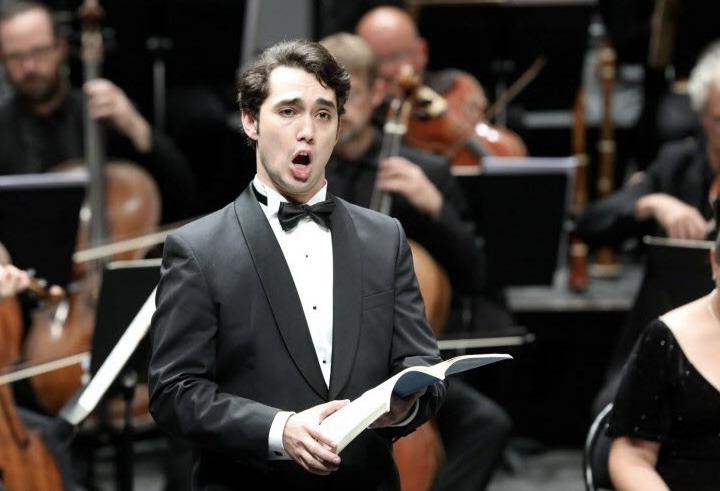
“Dans le Concert de ce soir, le festival de Montpellier vous propose deux raretés interprétées par Le Concert Spirituel : une Messe des morts à grand orchestre, de Jean-Paul-Egide Martini, puis la Messe Solennelle de Berlioz, une oeuvre composée alors qu'il n'avait que 20 ans...”
https://www.radiofrance.fr/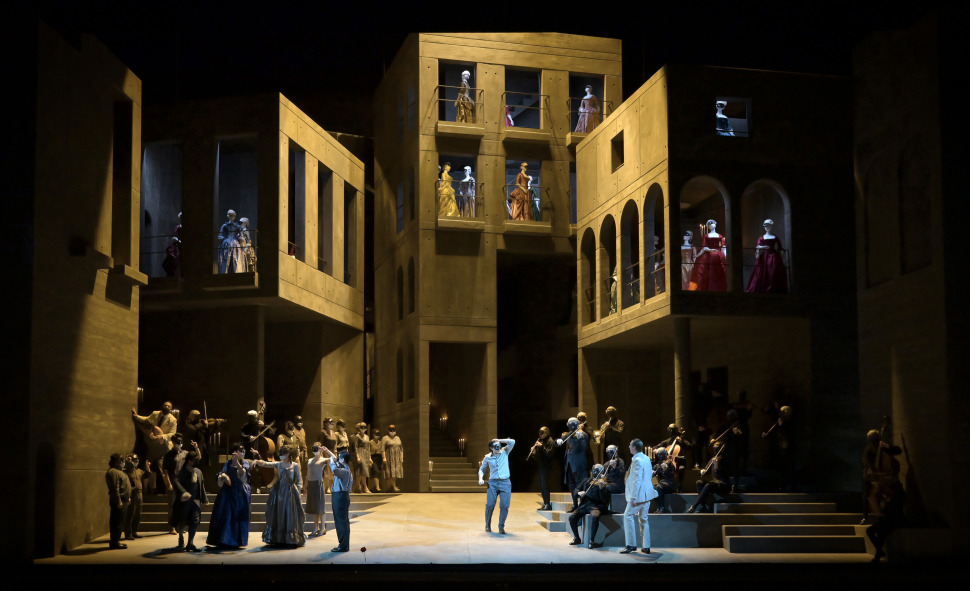
“Elsa Dreisig's Zerlina was youthful and charming, deferential to Dupuis's Don Giovanni yet sure of her own worth. The way she seemed to play Mikhail Timoshenko's Masetto off against Don Giovanni made you sense that Zerlina and Masetto's relationship would always be complex. Timoshenko was an appealing Masetto, his rough diamond charm making up for his rough manners...”
https://www.planethugill.com/
“For the last production of the season celebrating the 350th anniversary of Opéra national de Paris, Mozart’s Don Giovanni was entrusted to Belgian theatre director Ivo van Hove. Famous for his minimalist stagings and radical innovations at the Toneelgroep, a repertory theatre in Amsterdam, his vision of Mozart’s dramma giocoso delves into questions of power and its abuses. Set in a grey, dehumanized environment of hybrid modernist architecture (Giorgio de Chirico and Carlos Scarpa are referenced), characters dressed like Robert Longo’s ‘Men in the city’ seem to be ruling the streets. Van Hove unmistakably focuses on the abuse endured by the women: Donna Anna, Donna Elvira and Zerlina. Don Giovanni and his double, Leporello, are white-collar criminals with guns tucked under their Armani jackets. There are clear parallels to the #metoo movement but at the same time, van Hove subtly expresses the timelessness of this great work. Elsa Dreisig is a jovial and fresh-voiced Zerlina, charmingly defiant of her macho fiancé Masetto, the excellent Mikhail Timoshenko...”
https://operacanada.ca/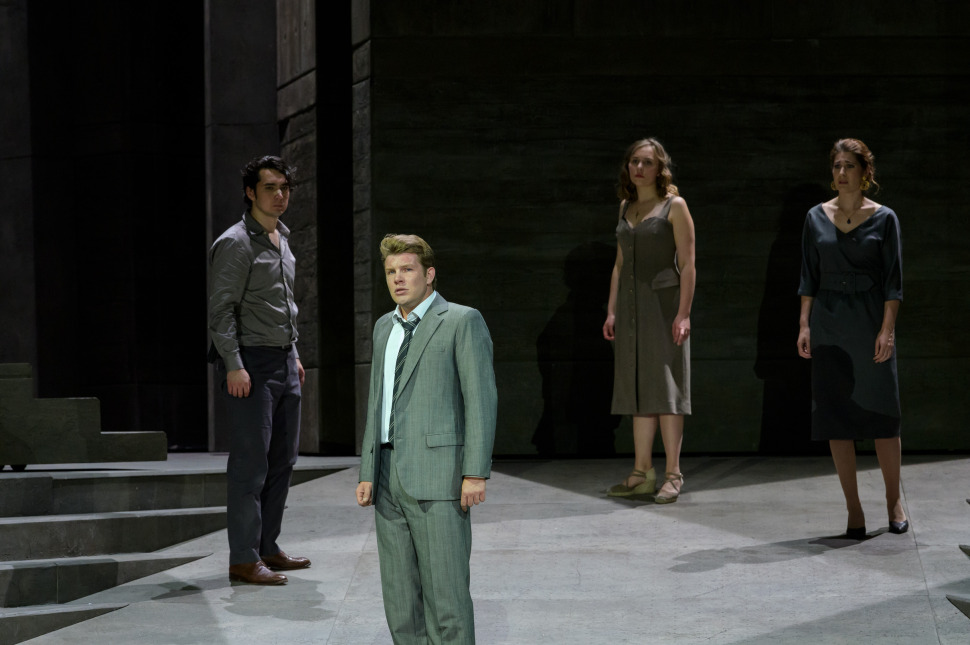
“Par Bruno Serrou Deux nouvelles productions livrent des conceptions diamétralement opposées du chef-d’œuvre de Mozart : classique ici, irrévérencieuse là. Pour sa seconde mise en scène à l’Opéra de Paris (1) après Boris Godounov, Ivo van Hove investit une rue de Séville toute de béton gris, avec moult points de fuite où Don Giovanni et ses adversaires, vêtus de costumes contemporains, se dissimulent, s’échappent. L’éclairage est sombre jusqu’à la morale finale où fleurs et tissus colorés font leur apparition. L’intérêt de cette production est la gémellité entre Don Giovanni et son valet Leporello. Silhouette et voix sont saisissantes d’analogie, grâce à la remarquable prestation d’Étienne Dupuis et de Philippe Sly. Le Masetto de Mikhaïl Timoshenko est tout aussi convaincant, à l’instar de l’impressionnant Commandeur d’Ain Anger...”
https://www.la-croix.com/
“Le plateau est dominé néanmoins par le jeune baryton-basse russe Mikhail Timoshenko, dont on saluera tout d'abord l'excellente diction française. Sollicitée dans les graves les plus abyssaux comme dans les hauteurs du registre de fausset, sa voix rend pleinement justice à une écriture vocale essentiellement déclamée, mais qui se faire plus lyrique dans les moments de forte intensité dramatique.”
https://www.resmusica.com/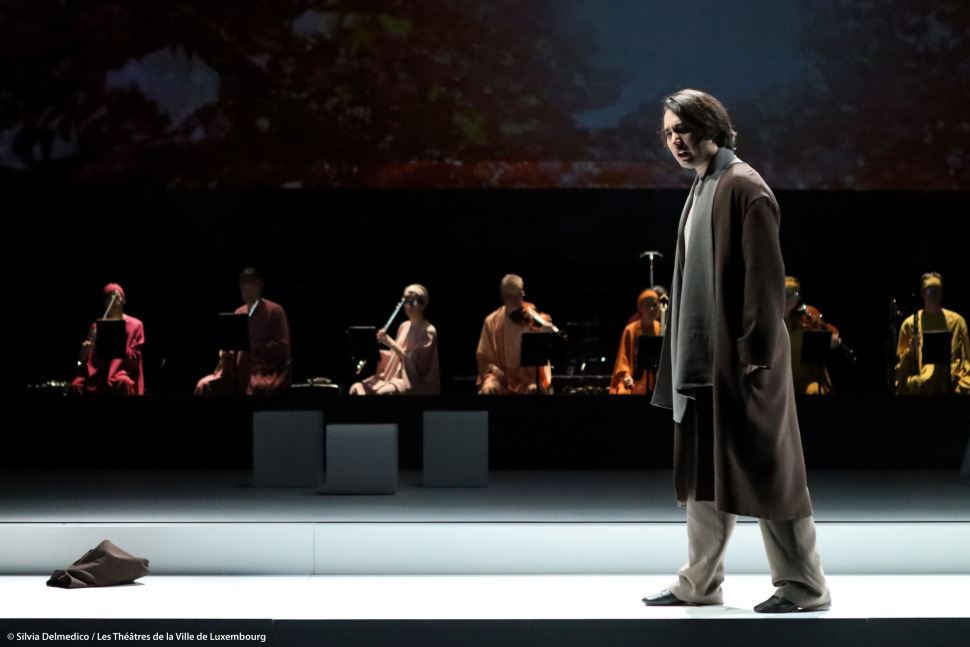
“Célébré et couronné de prix (Oscars, Césars, Golden Globes, Grammy Awards) pour ses musiques de film, Alexandre Desplat crée au Grand Théâtre de Luxembourg son premier opéra : "En Silence" d'après une nouvelle du prix Nobel de littérature japonais, Yasunari Kawabata (avec un livret en français d'Alexandre Desplat et de la metteuse en scène Solrey)...Mikhail Timoshenko, qui est baryton-basse, entre ainsi à froid sur une voix de tête flûtée mais il se repose bientôt sur le grave boisé de la clarinette-basse. Dans un français intelligible et sensible de bout en bout, il narre l'errance et le doute avec une distance très appliquée (l'ensemble des costumes rappelle le Japon esthétisé par Bob Wilson, le sien a des touches de Wanderer : du romantique errant alors que la femme sera dans un noir très sobre, triste comme sa mine). Le phrasé de Timoshenko reste souple et suave alors que le baryton doit effectuer de nombreux voyages à travers ses registres.”
https://www.olyrix.com/
“L’usage de cloisonner les genres et les pratiques, qui dépend souvent de tropismes plus ou moins nationaux ou culturels, conduit parfois à rendre certains créateurs prisonniers d’une catégorie où ils s’illustrent le mieux. Ainsi Alexandre Desplat, reconnu et récompensé pour ses musiques de film, a-t-il reçu, de la part des Théâtres de la Ville du Luxembourg la commande de son premier opéra, créé le 26 février 2019 dans le Grand-Duché. C’est le format de chambre que le compositeur a retenu pour En silence, adaptant, avec Dominique Lemonnier, dite Solrey – elle signe également la mise en scène – une elliptique nouvelle homonyme de Yasunari Kawabata, dans la petite salle modulable du complexe théâtral, aux dimensions et disposition idéales pour cette création délicate...”
http://www.anaclase.com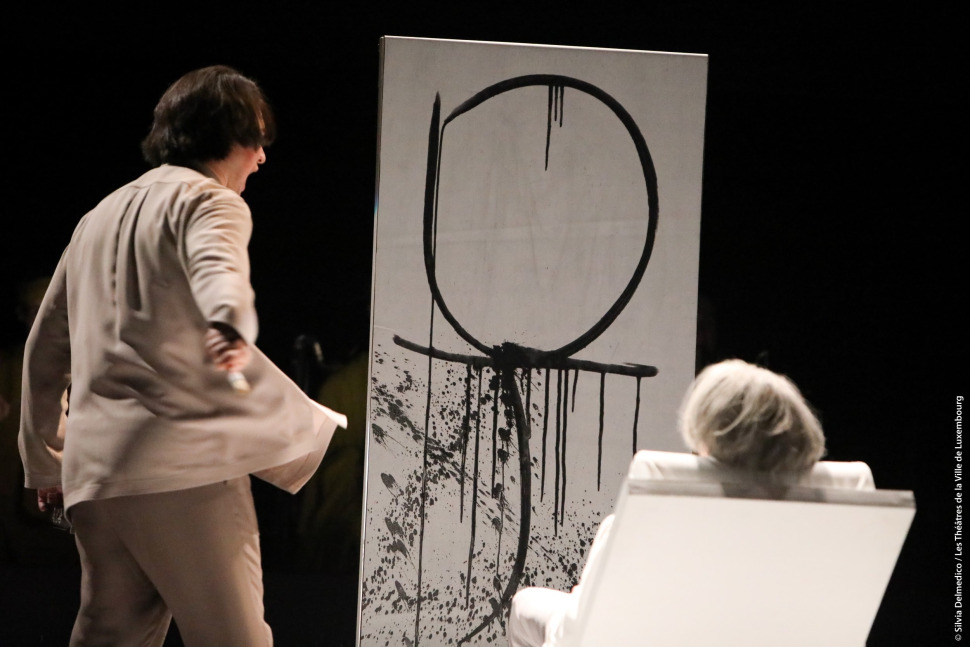
“The paralysed writer Omiya Akifusa is deprived of his language, his ges- tures and his words. How can a creative individual still live when deprived of his means of artis- tic expression? What becomes of his story, his past, his present and how does the Other invent his future? Interwoven with questions on creation, transmis- sion, memory, and loss, Yasunari Kawabata’s metaphysical short story oscillates between apparition and extinction and brings into play an alternation between the tangible and the world beyond, the inner and the outer, silence and music. The road that leads Mita to the home of the Master and his daughter Tomiko is an initiatory journey through a tunnel near a crematorium where errant souls mingle with the ghost of a young woman. Who is she? What does she symbolise? Will she materialise? The journey takes us to the edges of this strange tale in which the audience is led into an irrational, ambiguous world where oft- grotesque humour combines with tragedy to witness the metamorpho- sis of Tomiko, a young woman sacrificed to the father figure. For this chamber opera production with its spellbinding music and lyrics by Alexandre Desplat, the singers will move about in a horizontal, abstract, minimalist space. Their songs will seem to be enveloped in a spectral light to create a floating, indistinct, ghostly world. The ten musicians at the rear of the stage will appear as key characters in the dramaturgy. Dressed in baroque costumes and positioned in a single, slightly raised line, they will appear to represent a luminous chromatic scale: the reminiscence of an orchard in springtime, offering an open and vibrant horizon for the Master’s gaze, a depth of field conducive to brin- ging life to dead souls capable of being reborn indefinitely in this pur- suit of beauty, this quest for Nature so dear to the author. In the centre of the stage, a black and white space represents the house where the Master will sit in silence with his back to the audience; a fundamental presence facing the musicians and flanked by the two singer-protagonists Tomiko and Mita. Downstage – an area symbolic of writing – the narrator will perform several roles and take possession of the story. Between these three materialised worlds, a mental space will emerge through a video haunted by the image of the writer: symbols, calligraphy, phantasms, flashes. Solrey”
https://www.bouffesdunord.com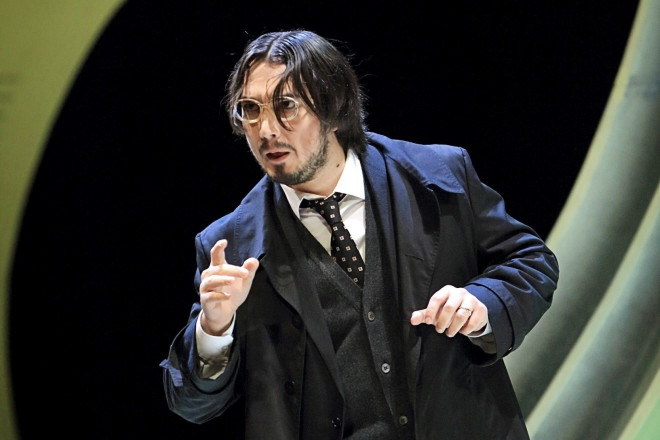
“Mikhail Timoshenko, baryton élégant et raffiné fait de Basilio un personnage presque sympathique, naïf, et mécompris plutôt que malicieux, et l’air « La Calunnia è un venticello » est presque gracieux, cependant que dans l’orchestre, le rythme sinistre de cordes grattées, et les contretemps volontairement accentués de "couacs" nasillards ne laissent aucun doute sur l’aspect pernicieux de ses propositions...”
https://www.olyrix.com/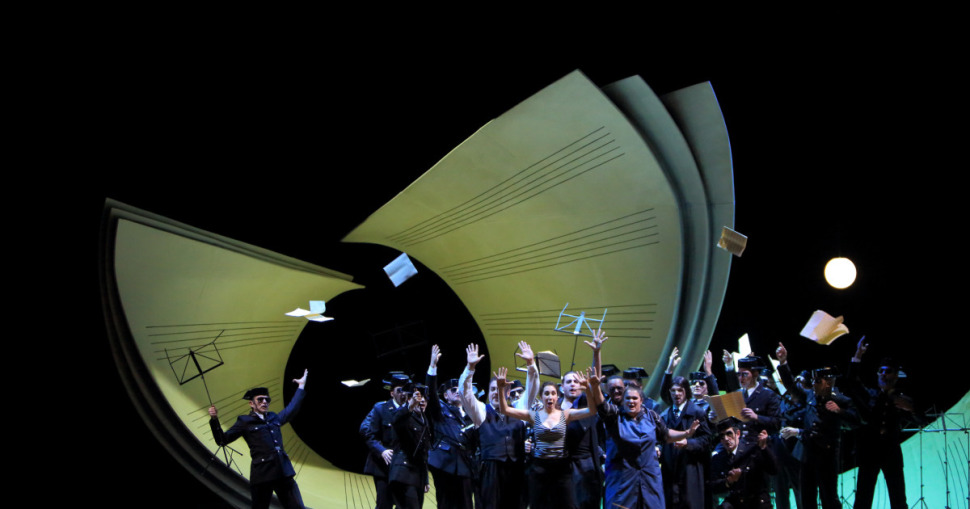
“Après Paris en 2017 puis Marseille l’an passé, Le Barbier de Séville selon Laurent Pelly pose son cahier de musique sur le pupitre du Grand Théâtre de Bordeaux...Mikhaïl Timoshenko est un Basilio empli de promesses dont on attend avec intérêt l’interprétation de Masetto dans Don Giovanni en fin de saison à l’Opéra de Paris...”
https://www.forumopera.com/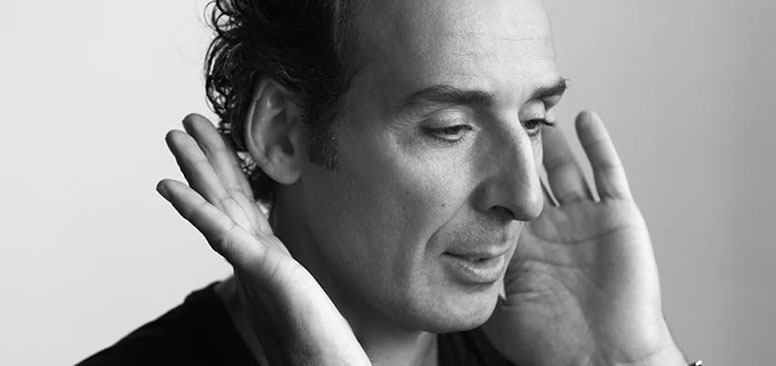
“En Silence is a short story by Japanese writer Yasunari Kawabata whose subtle and nuanced universe, written in fluid and poetic prose, has inspired the duo of renowned film music composer Alexandre Desplat which is the first work for opera, and director-musician Solrey to create a chamber opera. The opera will be performed February 26 and 27 at the Grand Théâtre de Luxembourg and March 2 and 3 at the Théâtre des Bouffes du Nord in Paris. Just as Kawabata’s literature opens the reader’s imagination to infinity, Desplat’s cinema scores evoke evanescent melancholy, sustained emotions and subtle sensations and thus create the perfect connection to the invisible and intangible matter of this novella. Director Solrey has gathered a team comprising the actor Sava Lolov, the singers Camille Poul et Mikhail Timoshenko and Luxembourg’s United Instruments of Lucilin to create this mysterious universe...”
https://www.durand-salabert-eschig.com/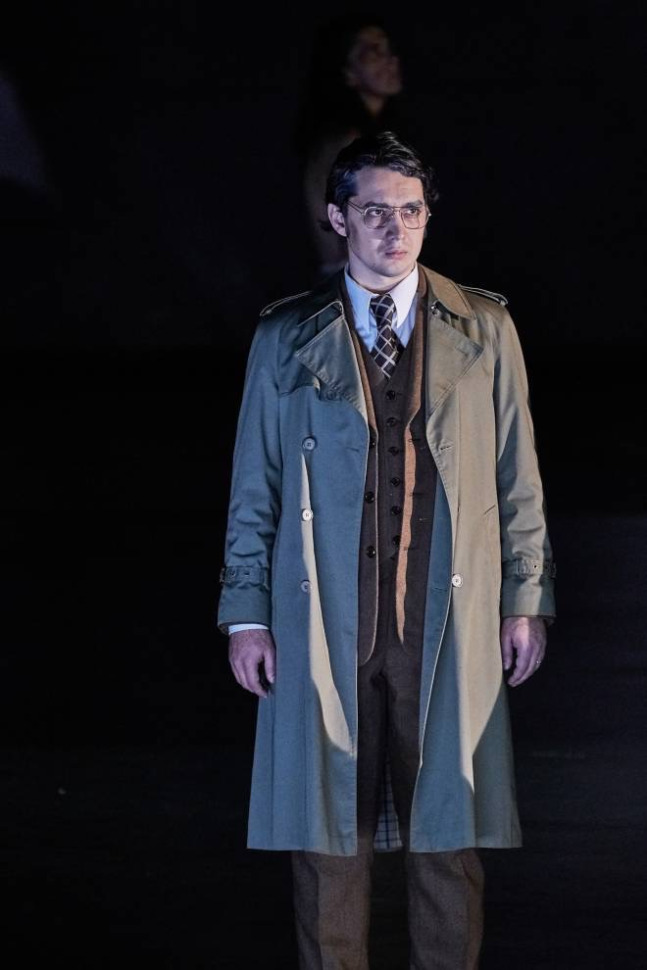
“This new production of Simon Boccanegra, of which tonight was the eight performance in a run of ten, marks Calixto Bieito’s third collaboration with the Opéra national de Paris, following Reimann’s Lear and his well-travelled Carmen. In this Boccanegra, Bieito actually deals quite expertly with the difficulties of working in the aircraft-hangar-dimensioned Opéra Bastille. He confined most of the interaction between the principals to a narrow strip at the front of the stage, affording the cast a chance to be heard in this exceptionally voice-unfriendly acoustic, but also used the huge dimensions of the super-sized stage to create a visually and dramatically highly intelligent and cogent staging...The individual performances were always reliable and competently sung. Mikhail Timoshenko’s Pietro brought a healthy, handsome bass-baritone of youthful promise....”
https://operatraveller.com“Aux côtés de Ludovic Tézier, Anita Hartig -nouvelle interprète dans la seconde distribution de Simon Boccanegra à Bastille- est la figure de proue vocale du bateau conçu par le metteur en scène Calixto Bieito...Très en place et appliqué sur sa ligne, Mikhail Timoshenko en Pietro est particulièrement droit et face au public. Sa voix est couverte par le mezzo forte de l'orchestre mais il sait esquisser des regards sourcilleux comme des sourires narquois. Son attitude surtout glaciale sied particulièrement à sa dernière scène, celle d'un psychopathe égorgeant froidement Paolo Albani au-dessus de son sceau (mais hélas sans hémoglobine aucune, la mise en scène manquant ainsi l'image puissante qu'aurait été celle du sang se mêlant au poison)...”
https://www.olyrix.com/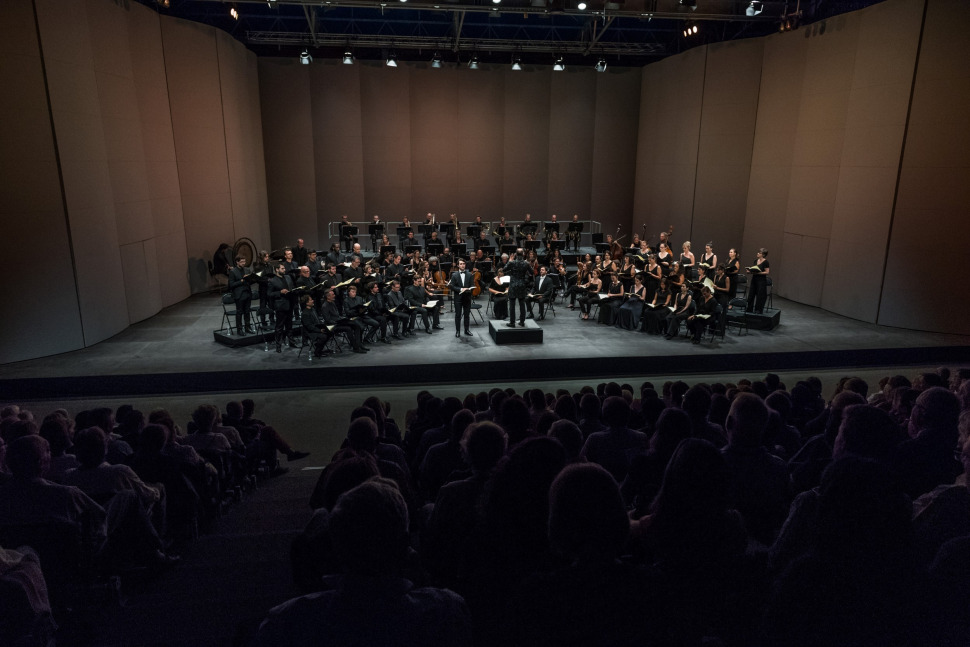
“Le Credo est l’occasion d’entendre le jeune baryton-basse russe Mikhail Timoshenko. Ses graves, ici fort sollicités, sont beaux mais manquent de corps. La lutte avec le son des instrumentistes est alors inégale et ne permet pas d’apprécier pleinement la sensibilité de son interprétation. … Dans l’Offertoire, Mikhail Timoshenko sollicite davantage ses registres médium et aigu, et semble ainsi plus à l’aise. Malgré les exigences de la partition, le chœur ne manifeste aucune fatigue et poursuit aisément avec le Sanctus et le O salutaris…”
https://www.olyrix.com/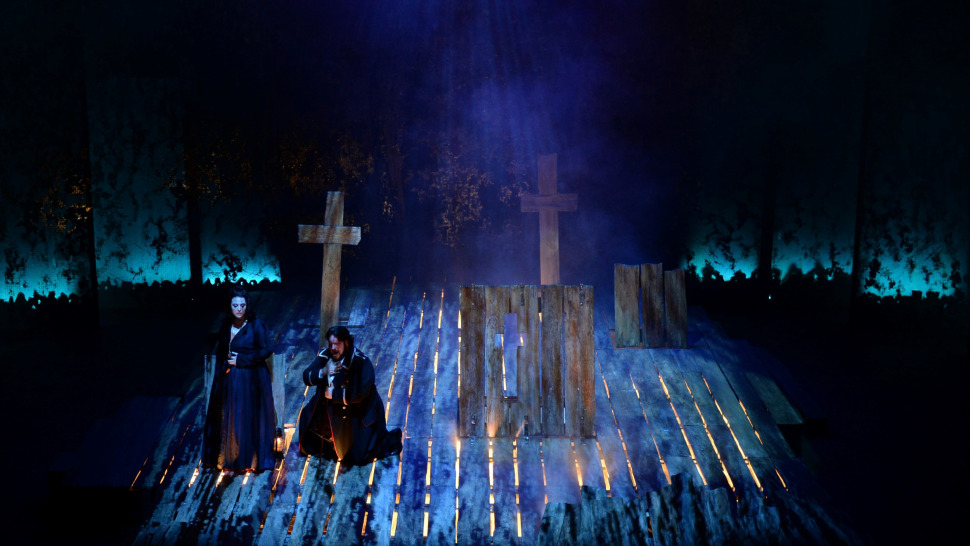
“Sa scène de folie où le monstre se fissure sous des accents pathétiques est un moment particulièrement intense et son duo avec le père Moser, étonnamment en retrait, de Mikhail Timoshenko, nous porte sur les mêmes cimes que la confrontation entre Philippe II et le Grand Inquisiteur de Don Carlo.”
https://www.resmusica.com/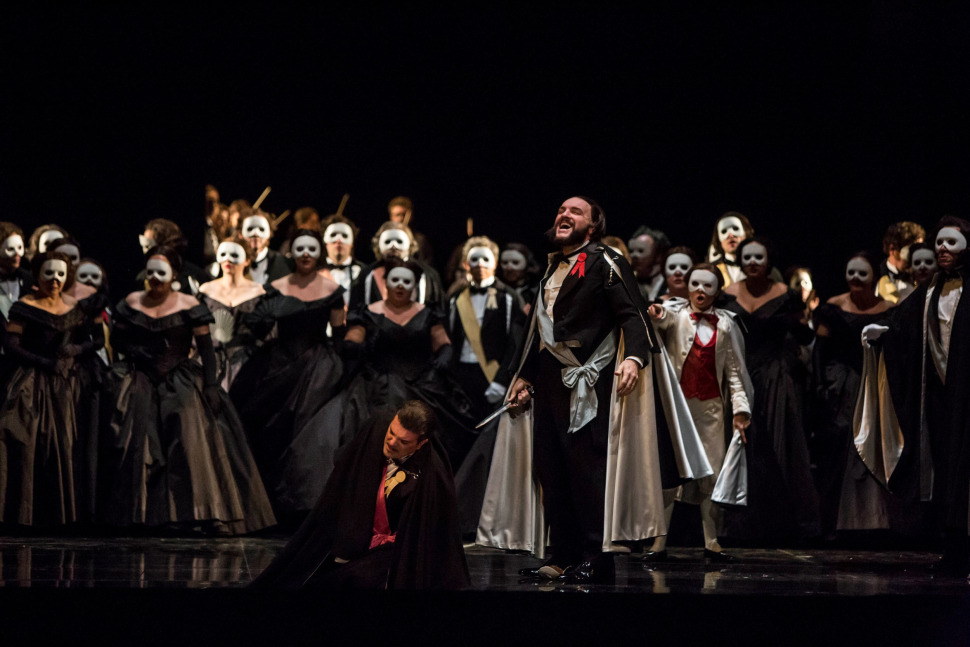
“Ancien membre de l’Académie de l’Opéra et popularisé par le documentaire L’Opéra dans lequel il apparaît, Mikhail Timoshenko dispose déjà, à 24 ans, d’admirateurs ovationnant sa courte mais très sérieuse intervention. Sa voix assurée porte, y compris dans des graves profonds et intenses...”
https://www.olyrix.com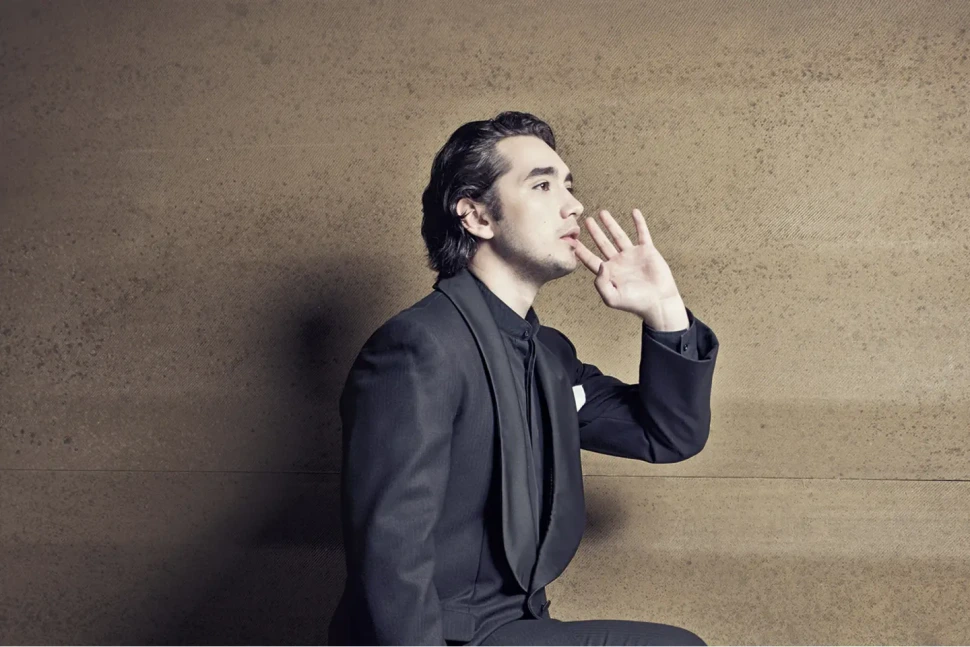
“The sophisticated style of The Paris Opera, whilst weaving stories of mundane occupations with the artistic highlights of this world, turns the documentary itself into an opera. The story, which follows the classic formula of the backstage picture by taking place in a theatrical setting where the dramatic moments develop behind the scenes, reveals a distinctive personality. Although it may display the canons of the so loved structure, Jean-Stéphane Bron brings to it an original composition. The strength of the film lies in its complete unison with the musical score, which has more to do with tone and atmosphere than soundtrack. The music is an obvious character in the film as much as the performances, but how this film becomes operatic is in the use of the score as a whole that gives a rhythm to the unfolding of events. There are distinctive acts that bring the story to the fore and the arias that punctuate the narration with beautiful solos from the protagonists. One of them is the new promising star, the young baritone Mikhail Timoshenko, whose audition and arrival at the Opera unfold with tenderness and fill us with hope and indulge us with moments of awkwardness when at first, with limited French, he tries to connect and with attempted conversations shows an eager talent trying to find his way...”
https://filmint.nu“The crew readies a 2,000-pound bull for the premiere of “Moses und Aron” in a scene from a new documentary that offers a look backstage at the celebrated musical institution. The poster for "The Paris Opera" declares that "the drama starts before the curtain rises." Unfortunately, that's not entirely true. The French documentary follows the hallowed institution through its 2015-2016 season, the first under director Stéphane Lissner. Filmmaker Jean-Stéphane Bron takes a cinéma-vérité approach, hanging back and letting the audience observe the happenings, without commentary. Although the action of the film is chronological, Bron hops around from place to place — boardroom, dressing room, practice room — and from subject to subject, so quickly that, without guidance, it's nearly impossible to place anything in context. The fragments never quite coalesce into a full picture. There are some exceptions: We meet Mikhail Timoshenko, a Russian bass-baritone, at his first audition for the company...”
https://www.washingtonpost.com/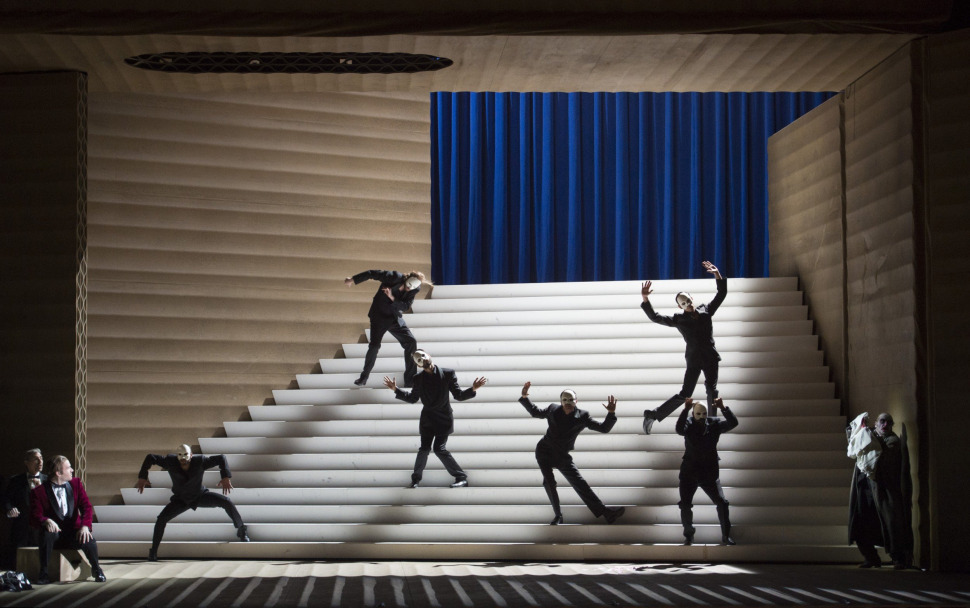
“Les chœurs, très présents dans l’œuvre, offrent une prestation visuelle toute chorégraphiée mais semblant amoindrir quelque peu leur habituelle capacité à inspirer une certaine cohésion d’ensemble. S’en détachant, le jeune Mikhail Timoshenko (Il Conte di Ceprano) laisse entendre une voix suave et une diction toute contrôlée...”
https://bachtrack.com/“Thomas Lebrun – director, set designer and choreographer – has opted for a decidedly modern production. The sets are stylised – they work in their own right, and could do without the distracting video-projected backgrounds. The three sections of the opera-ballet are separated by colour, underlining Rameau’s tenuous linking of them by means of a light framing device; at the same time, Lebrun uses ballet to bring out every connecting thread to great effect...Among the singers, Laure Poissonnier as Cupid, Adriana Gonzales as Sappho and Iphise, and Mikhail Timoshenko as Hymas and Tyrtaeus, stood out for their sumptuous voices, with remarkable command over their vocal ranges and with convincing acting...”
https://valeriavescina.com/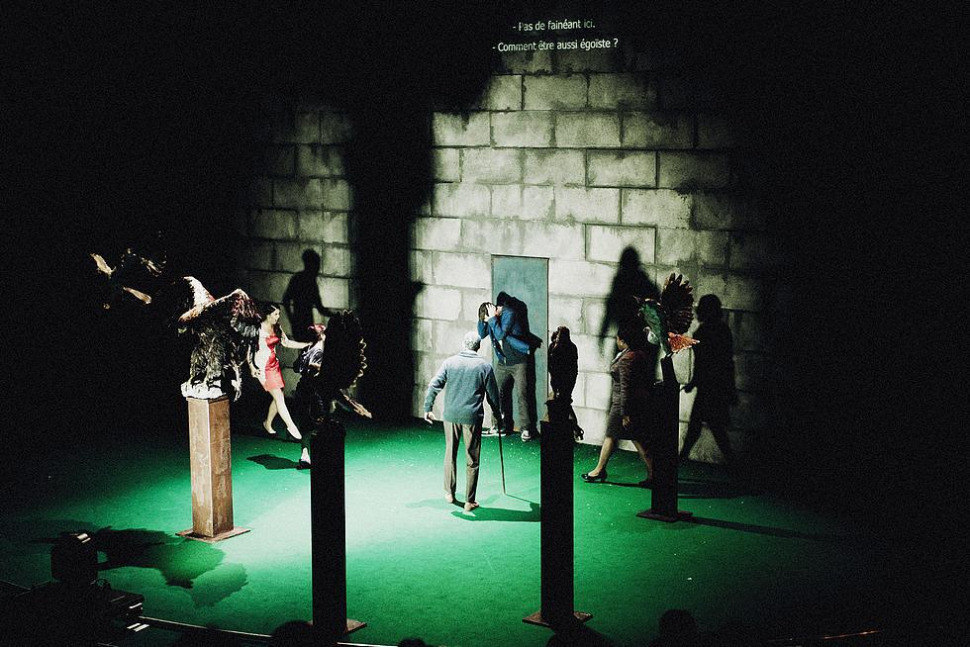
“Pur se in posizione defilata, su uno spicchio laterale della cavea dell’anfiteatro, Higgins gestisce con grande disinvoltura e facilità gli equilibri sonori con i cantanti, dei quali mette in luce un pregevole lavoro di scavo sulla parola, lo stretto rapporto tra una prosodia sempre intelligibile e limpida e le atmosfere rarefatte e sospese, in cui è immerso il dramma. E la medesima partecipazione è dato riscontrare nel manipolo di giovani artisti, che hanno strenuamente difeso ruoli in cui si ritrovano perfettamente calati. Sin dalla prima scena, infatti, è possibile apprezzare la grana pastosa, il manto vellutato e rassicurante di Mikhail Timošenko, nei panni dell’istruttore dell’Accademia militare, Spencer Coyle”
https://www.connessiallopera.it/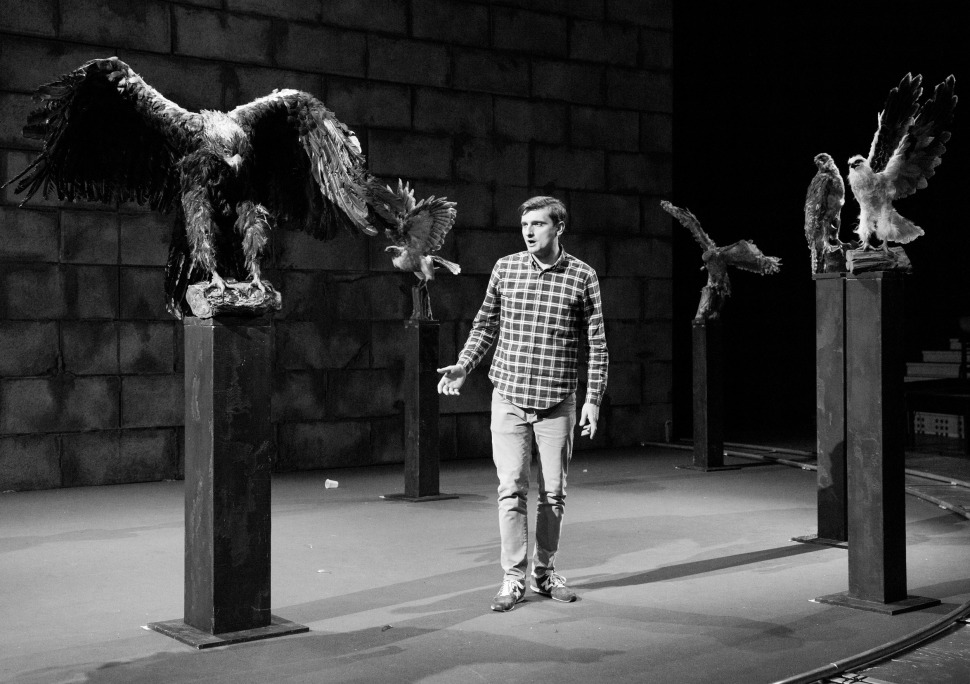
“Le baryton Mikhail Timoshenko, très expressif et semblant soucieux de restituer le texte de la manière la plus limpide possible, dispose d’un timbre propre à associer chaleur et profondeur, et son médium plutôt consistant rend justice à son personnage, militaire initiant Owen et Lechmere à la tactique de combat...”
https://bachtrack.com/